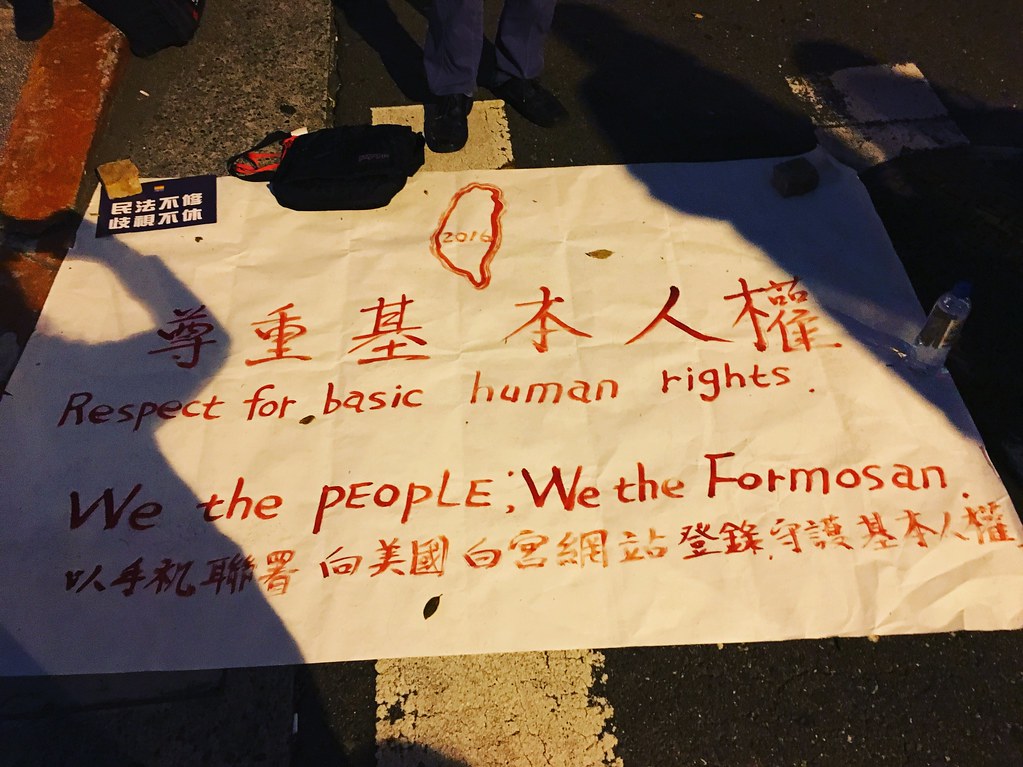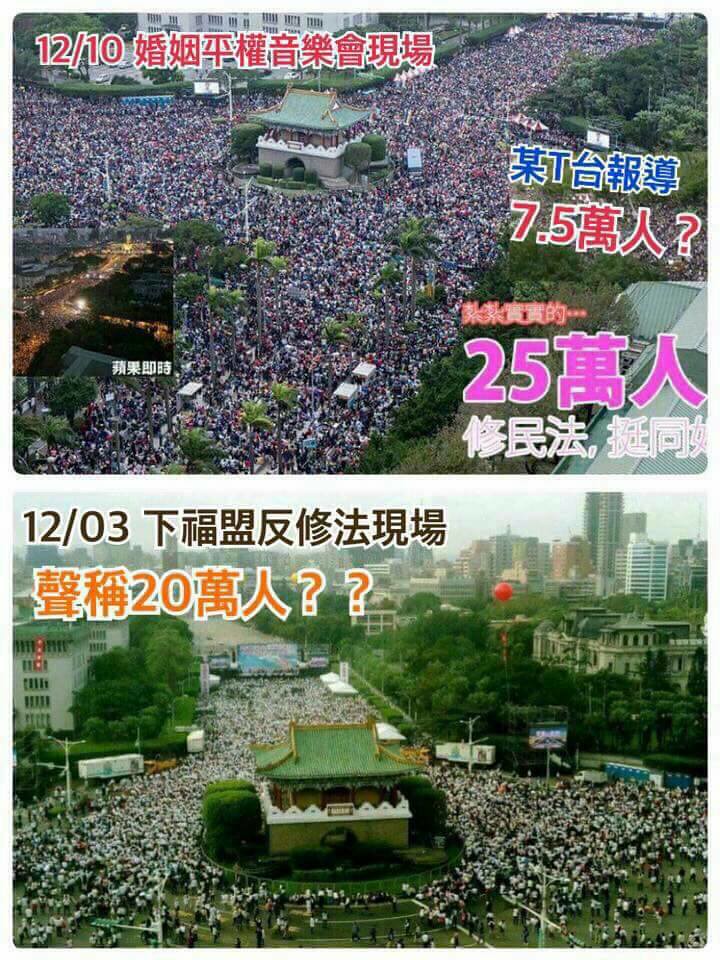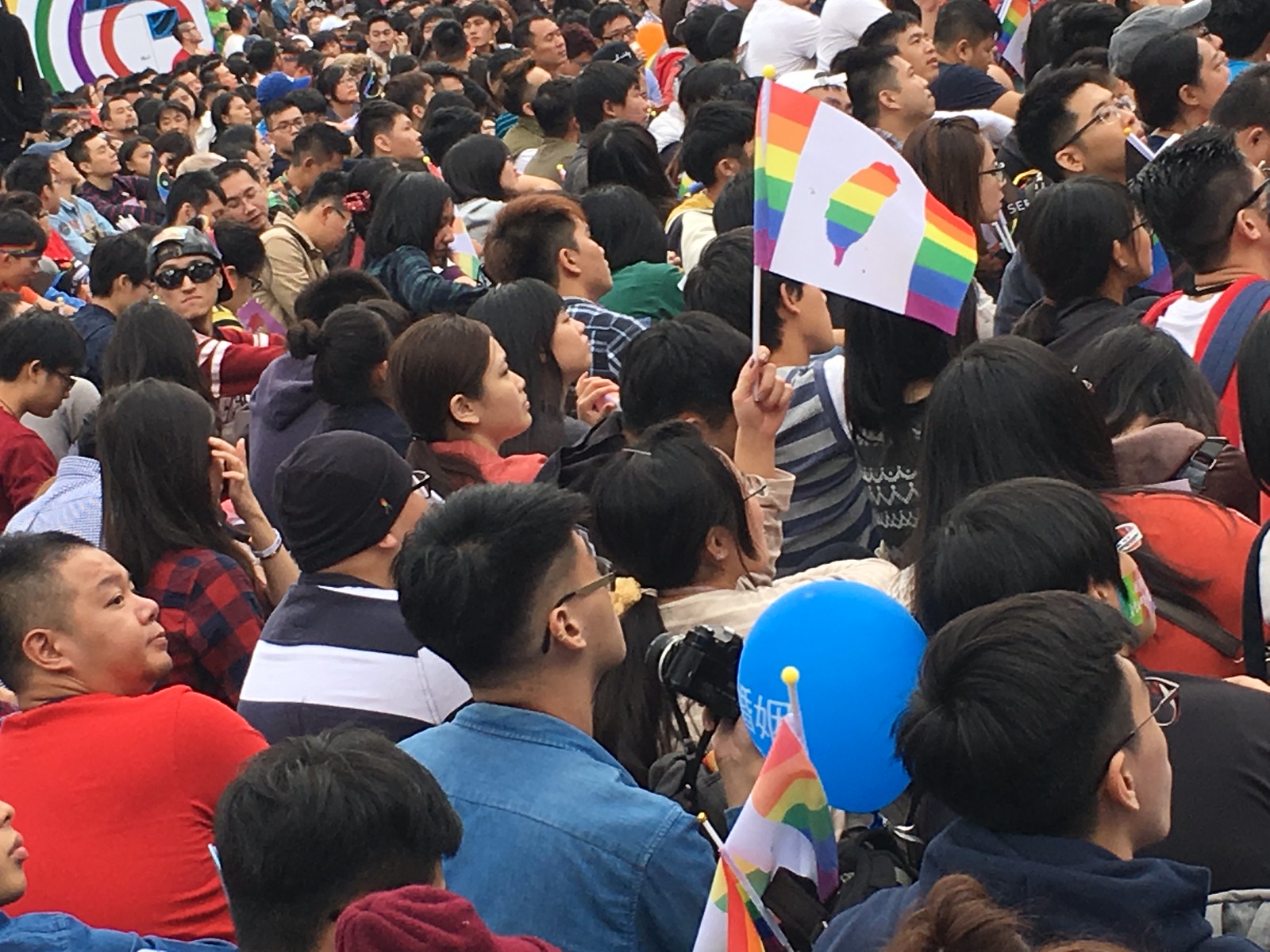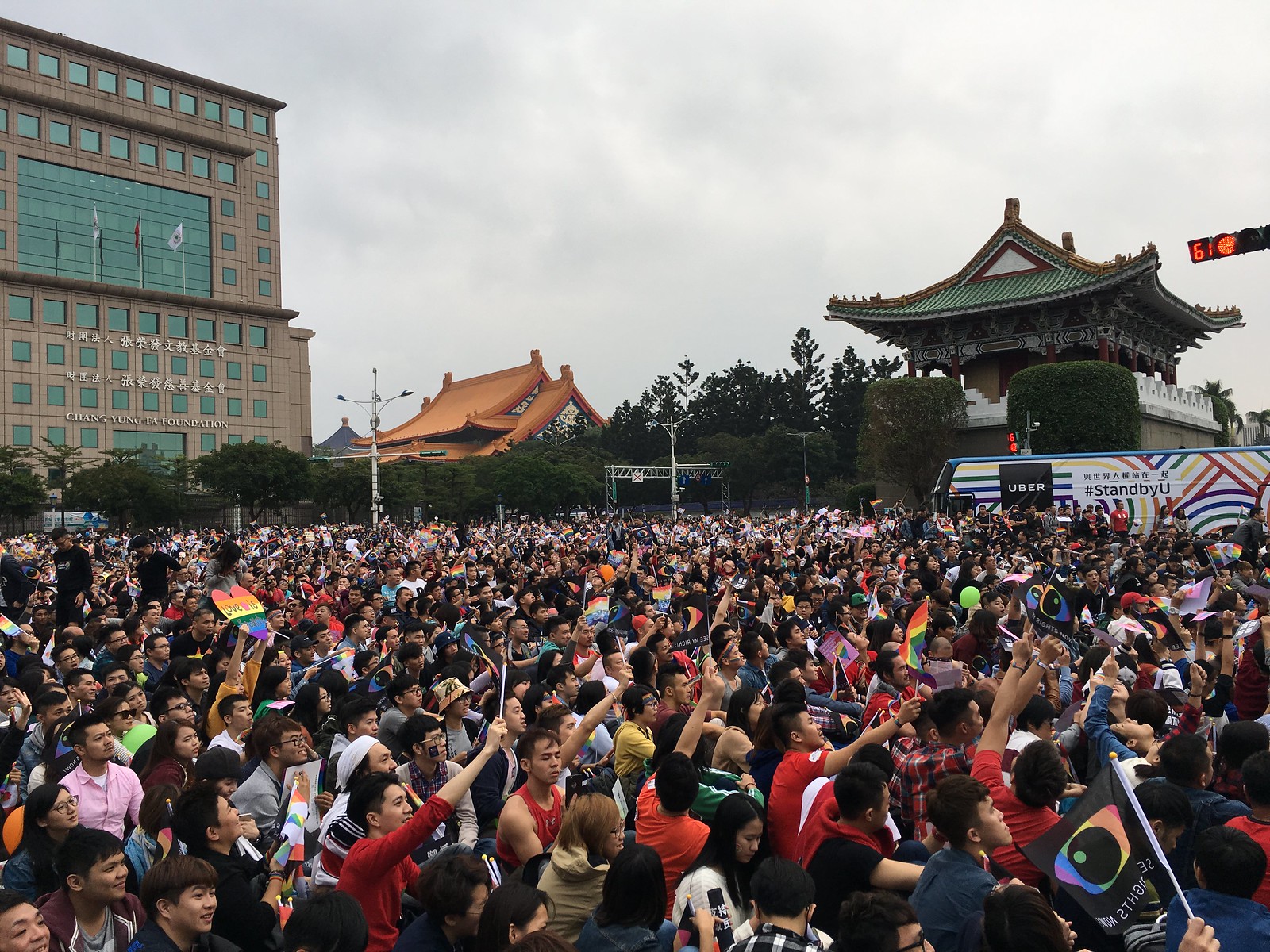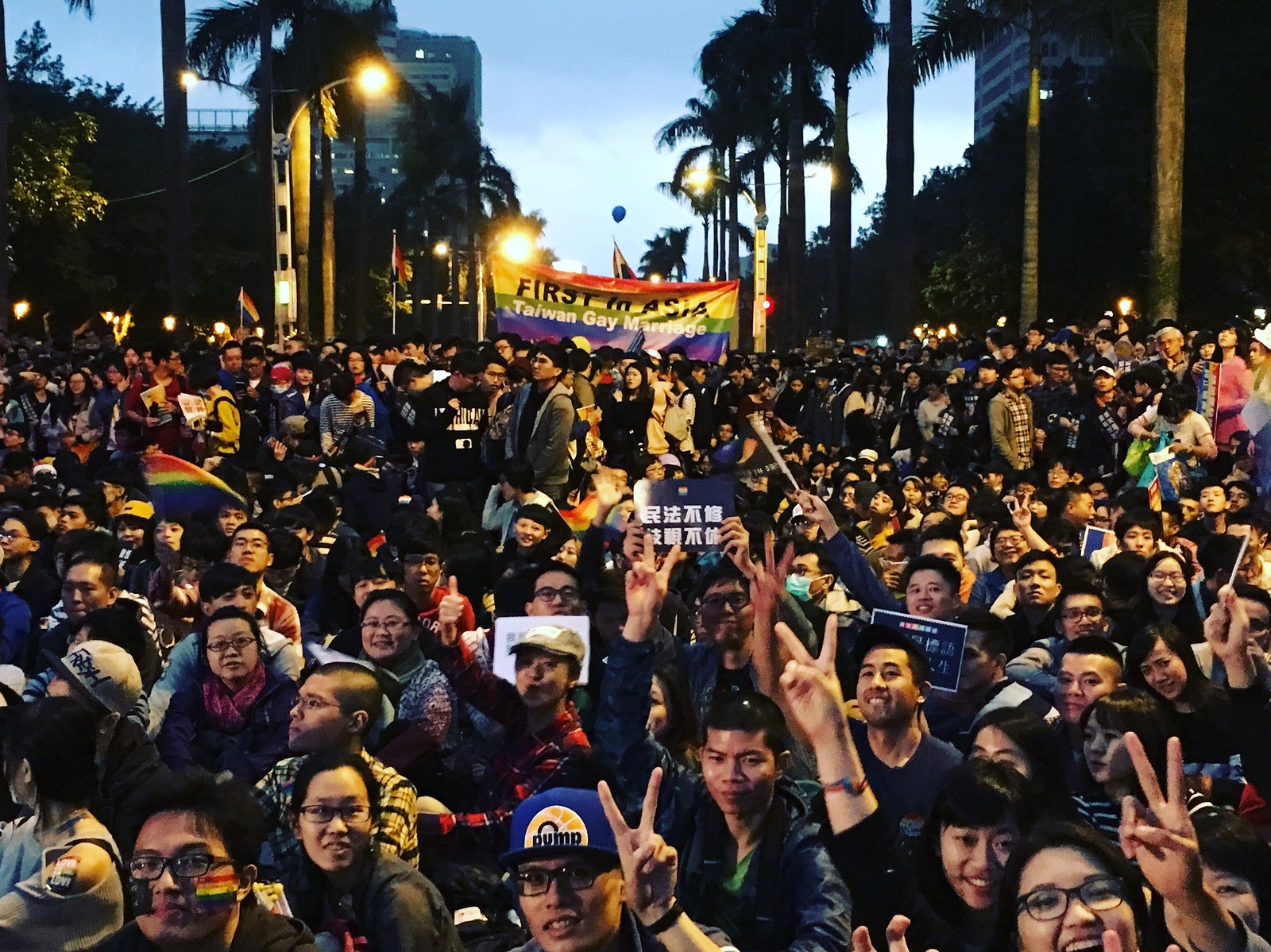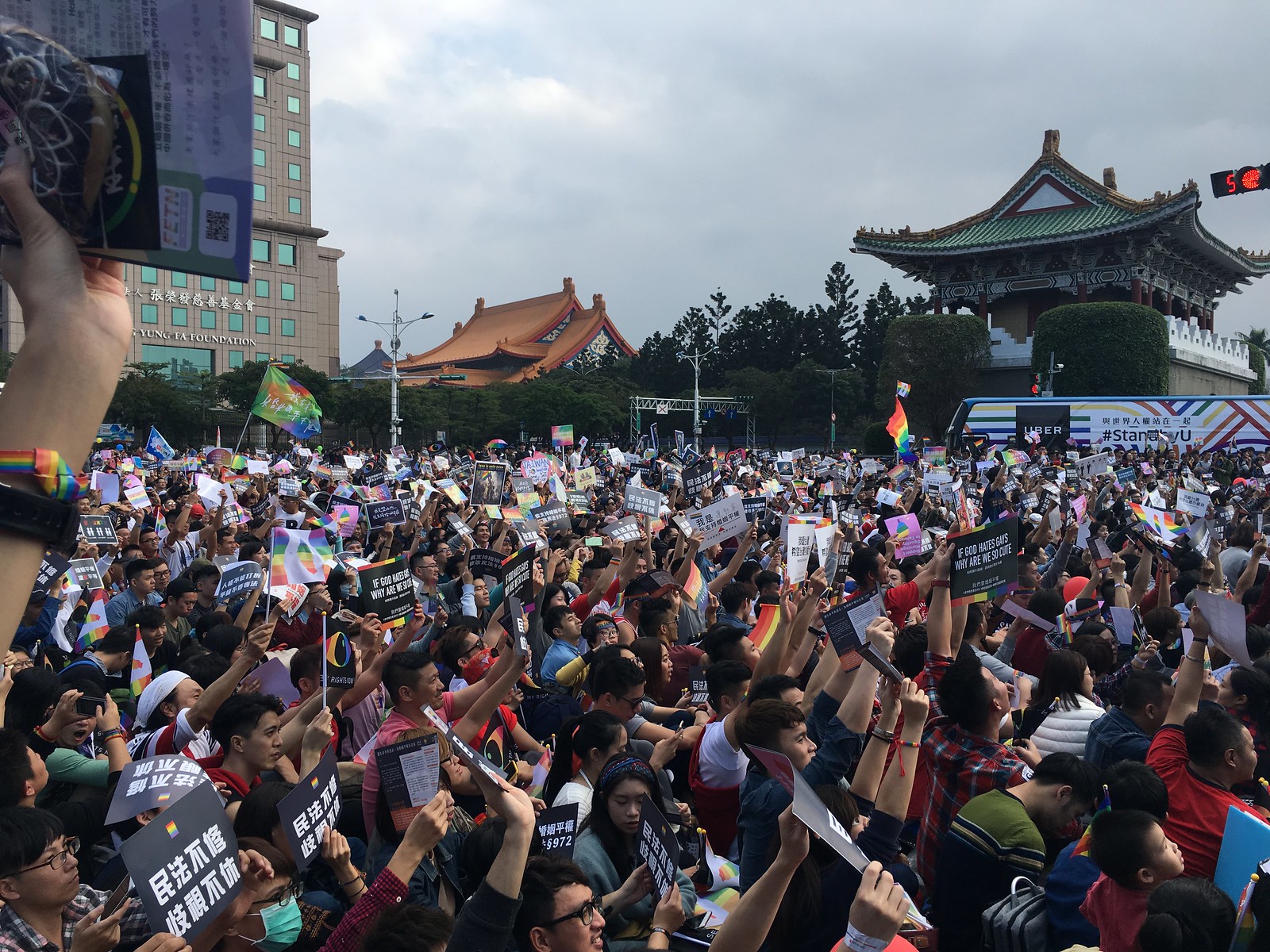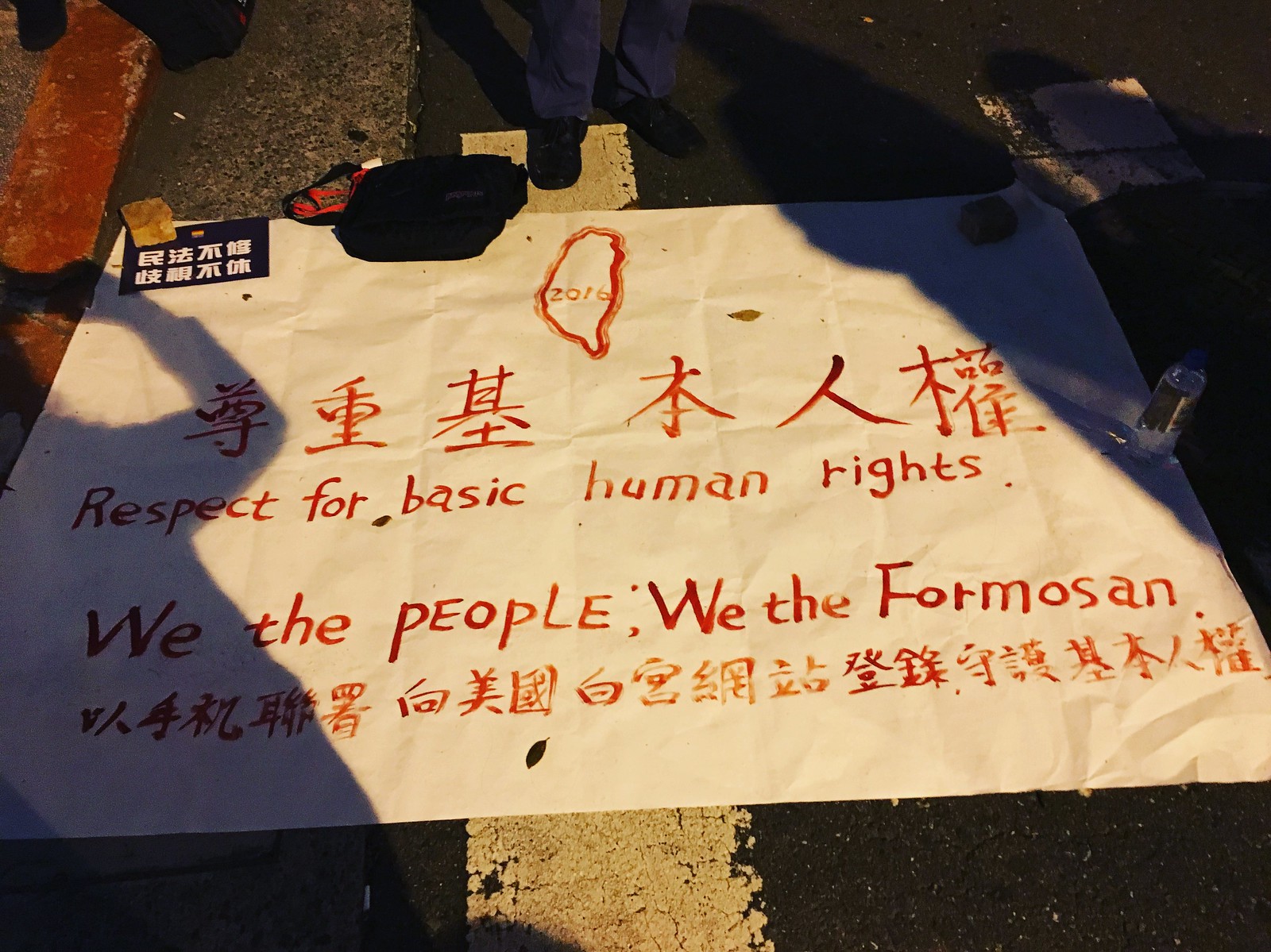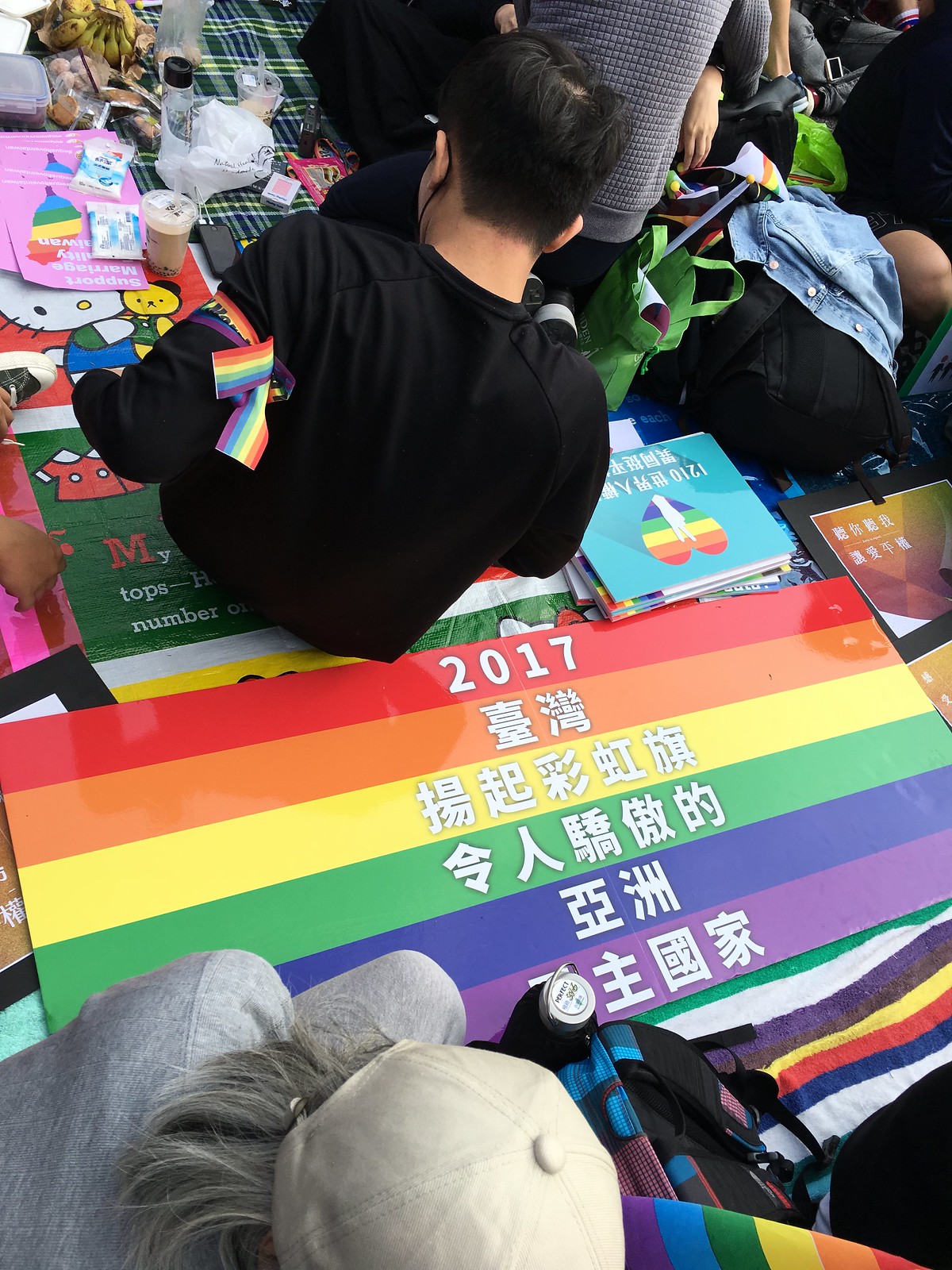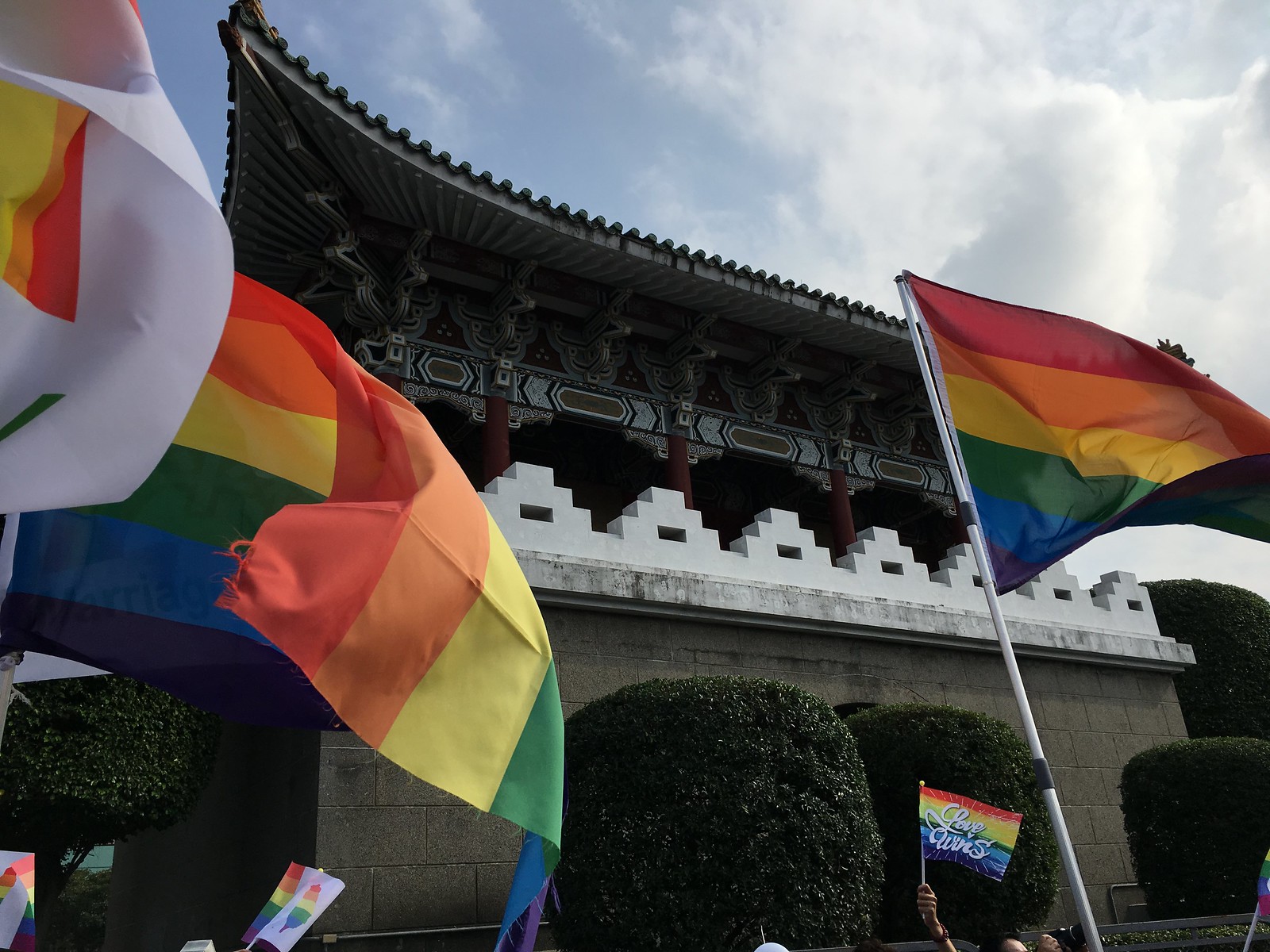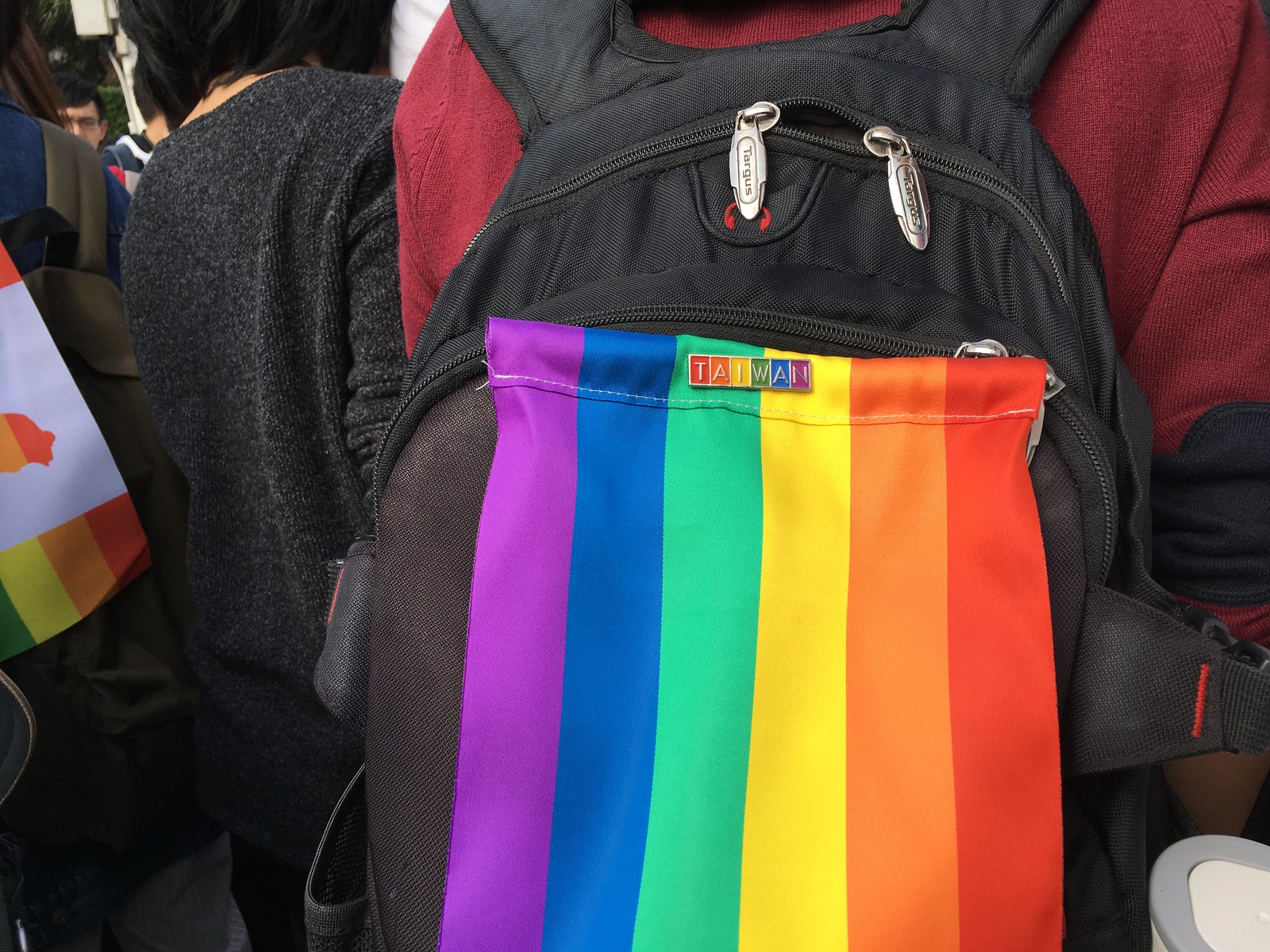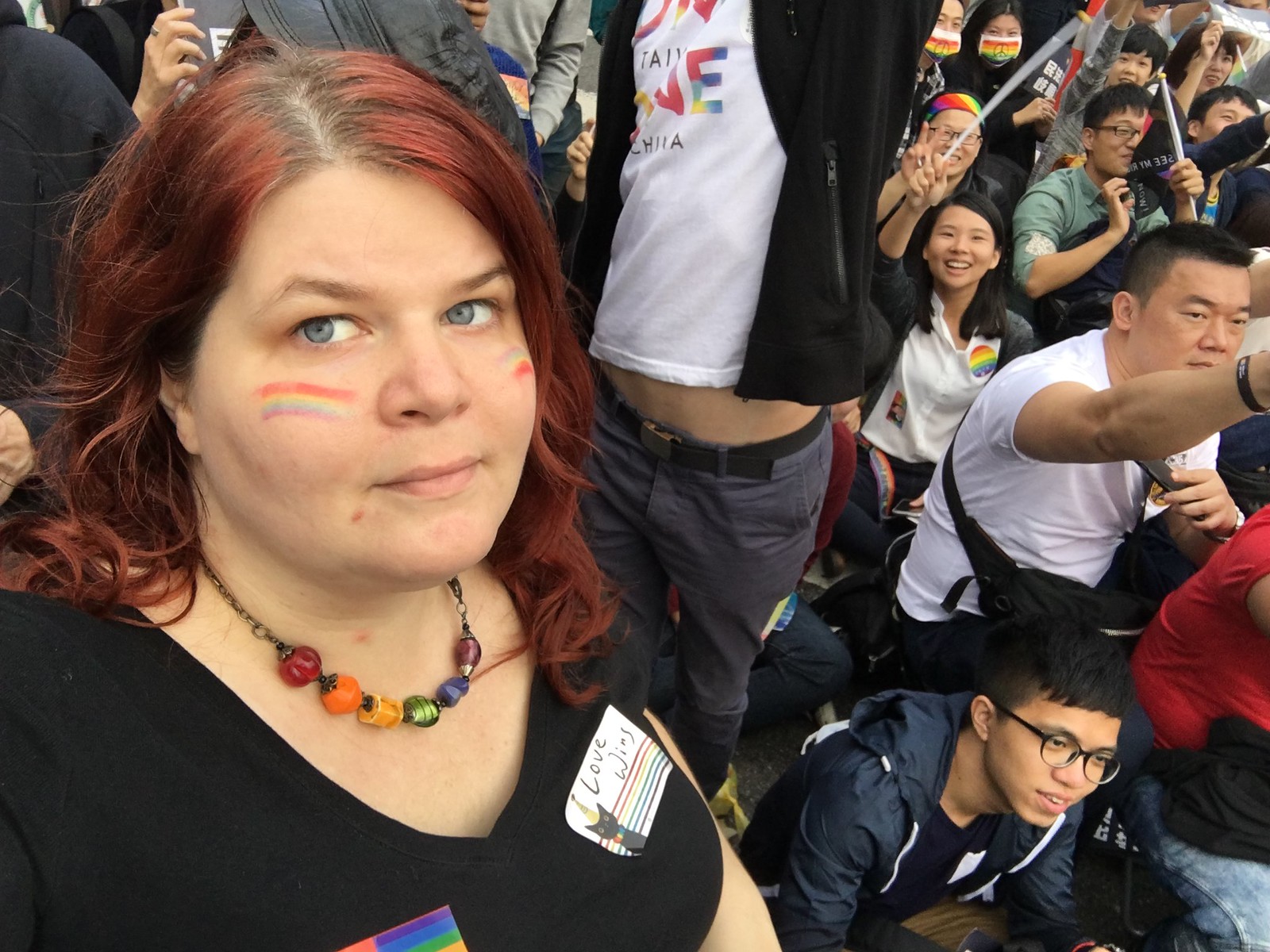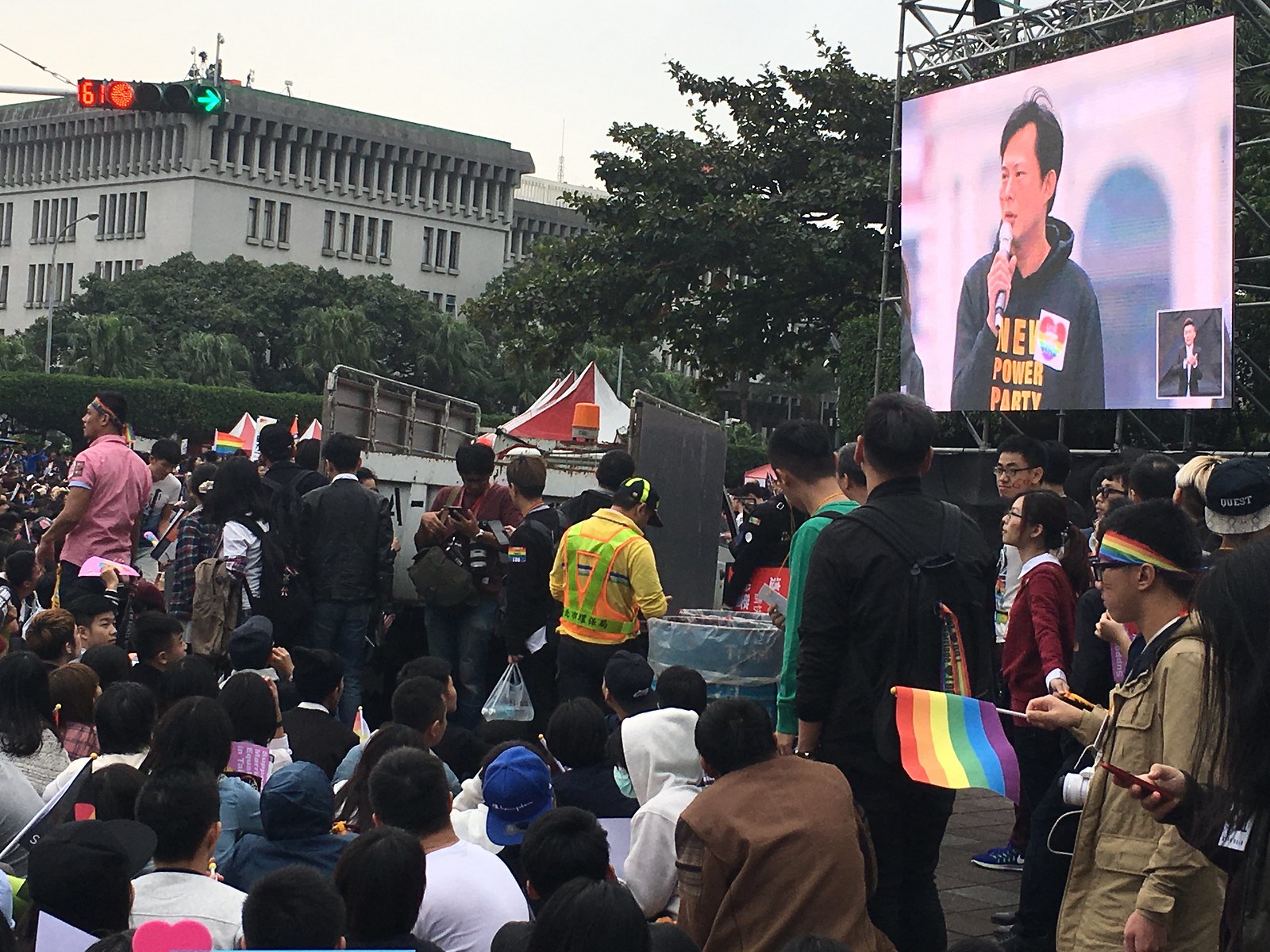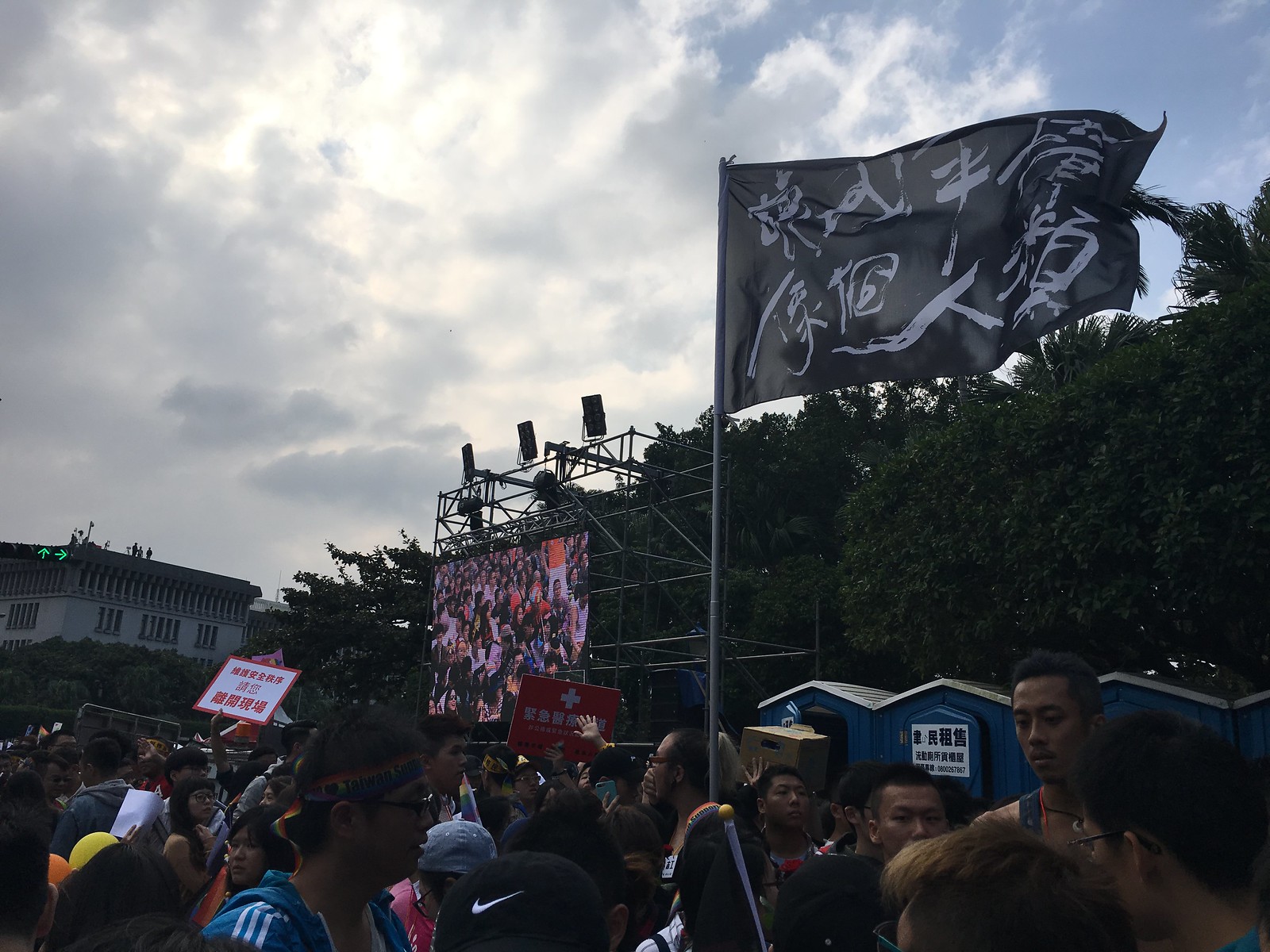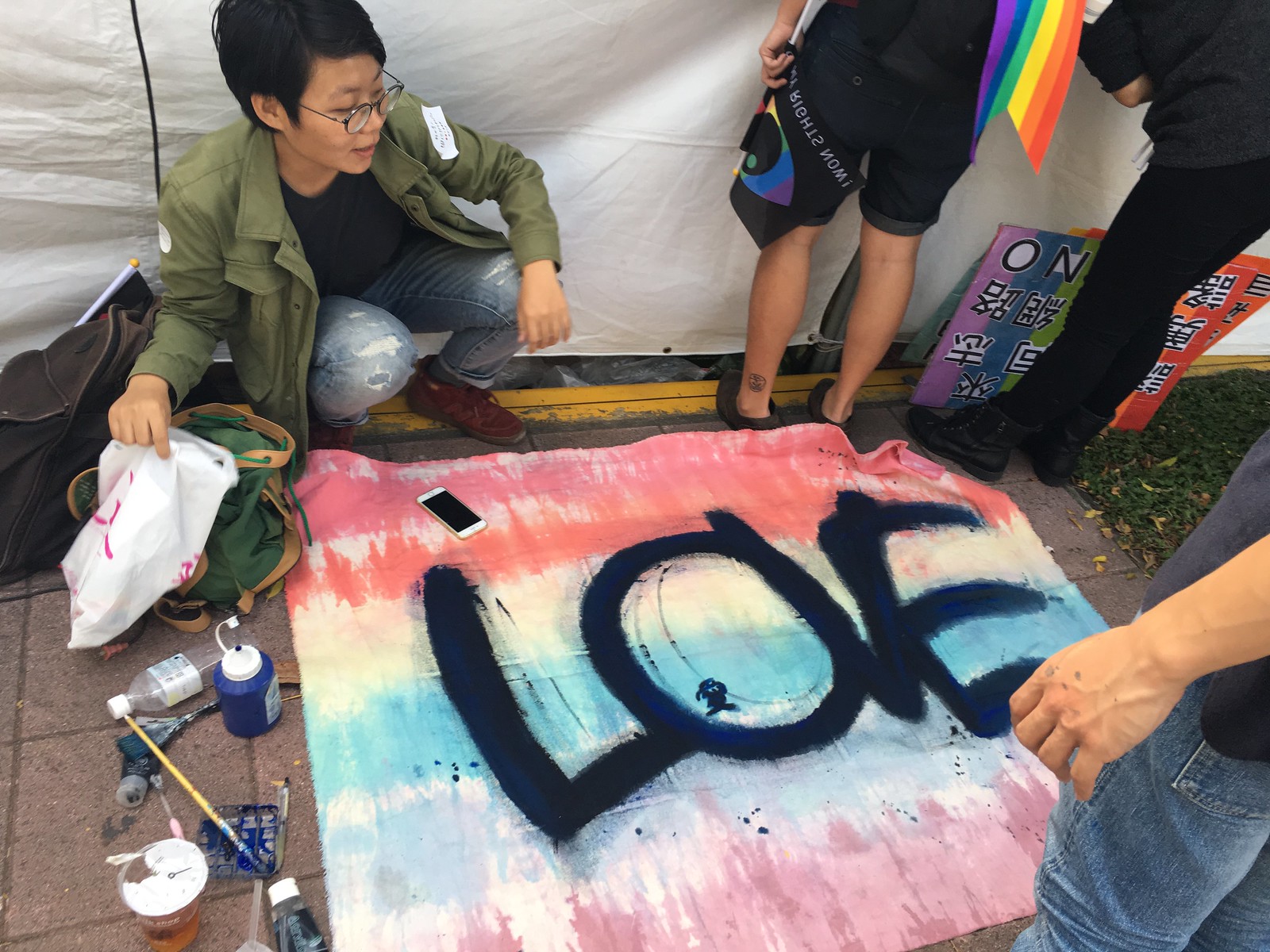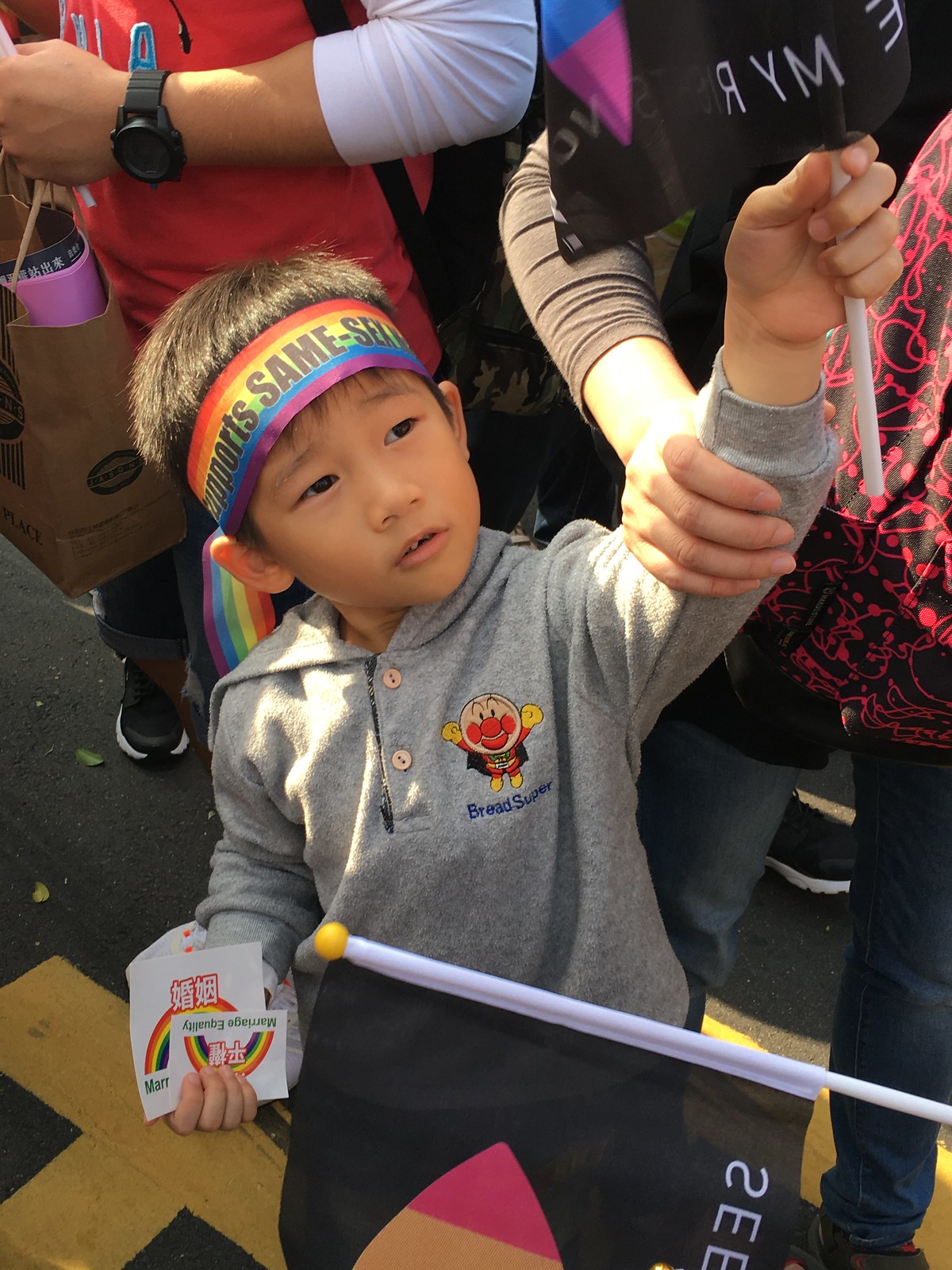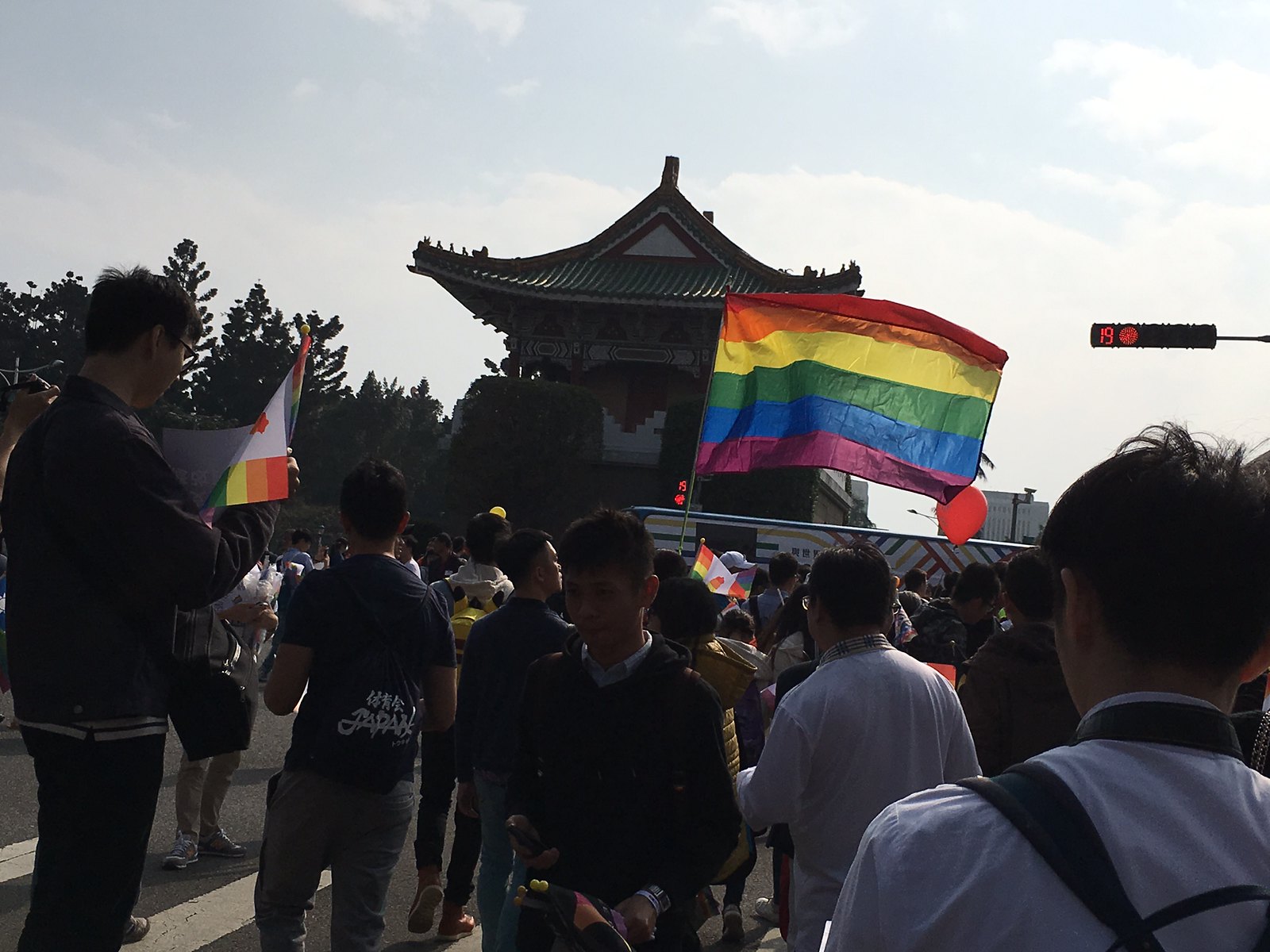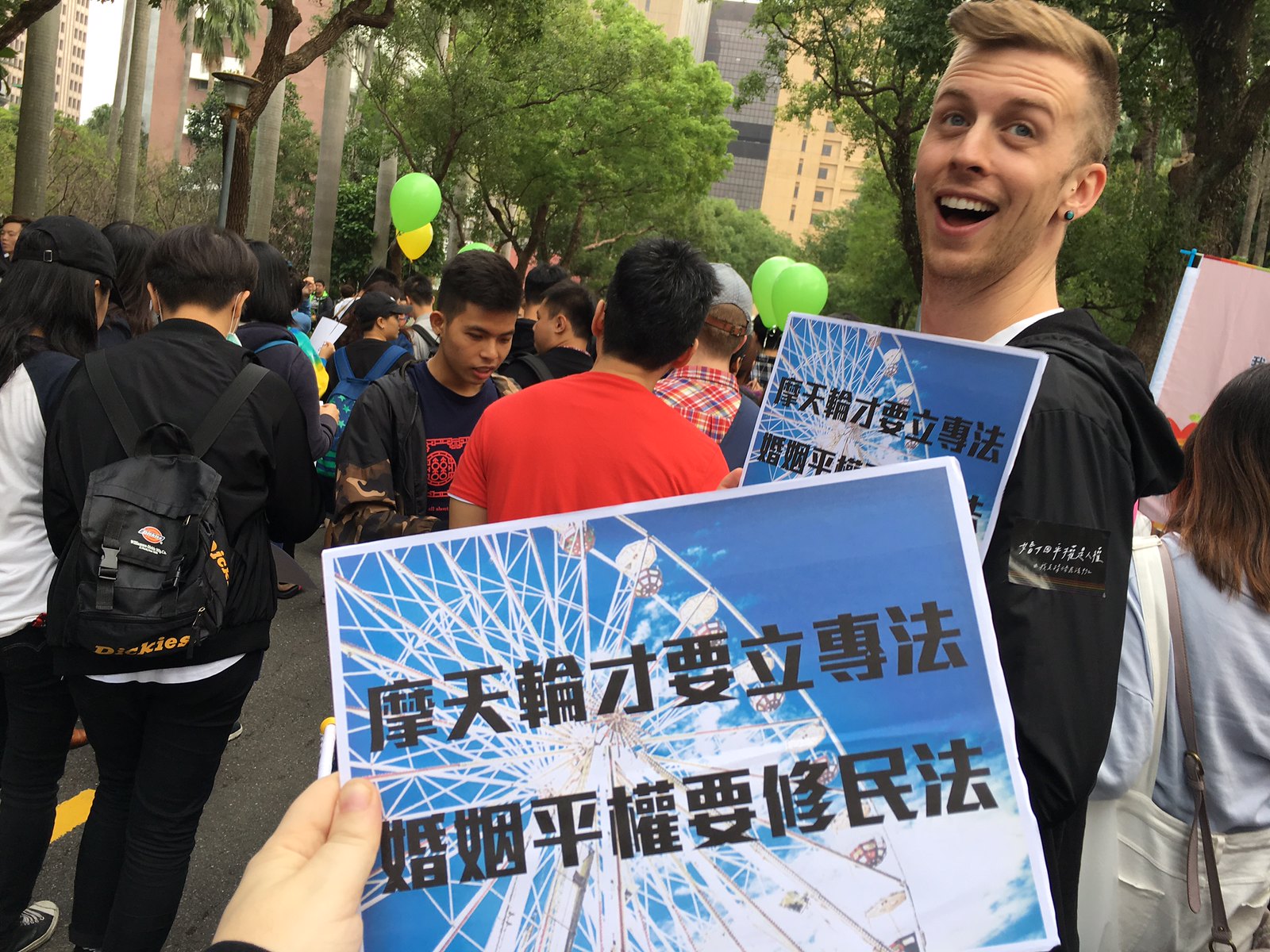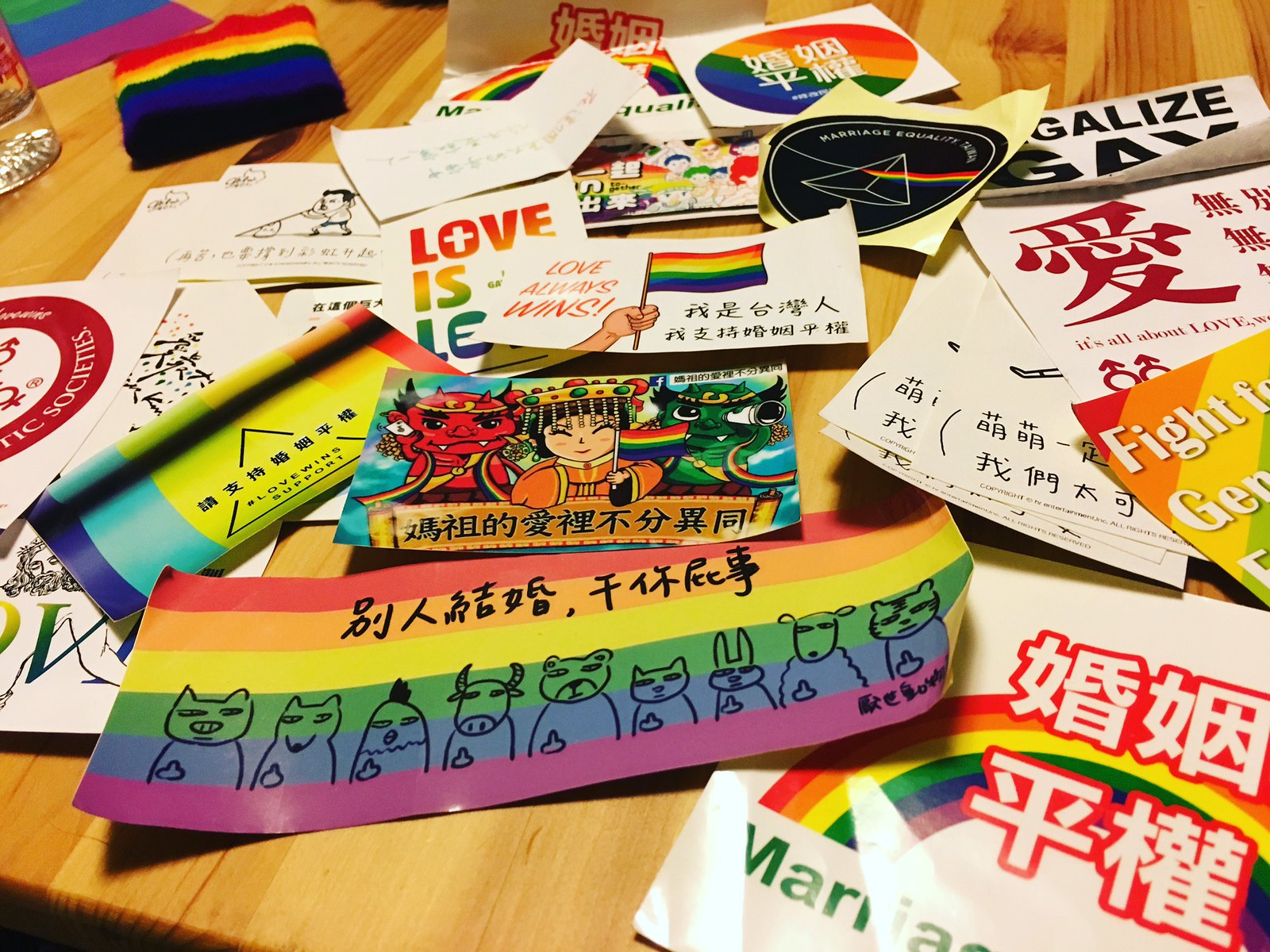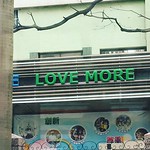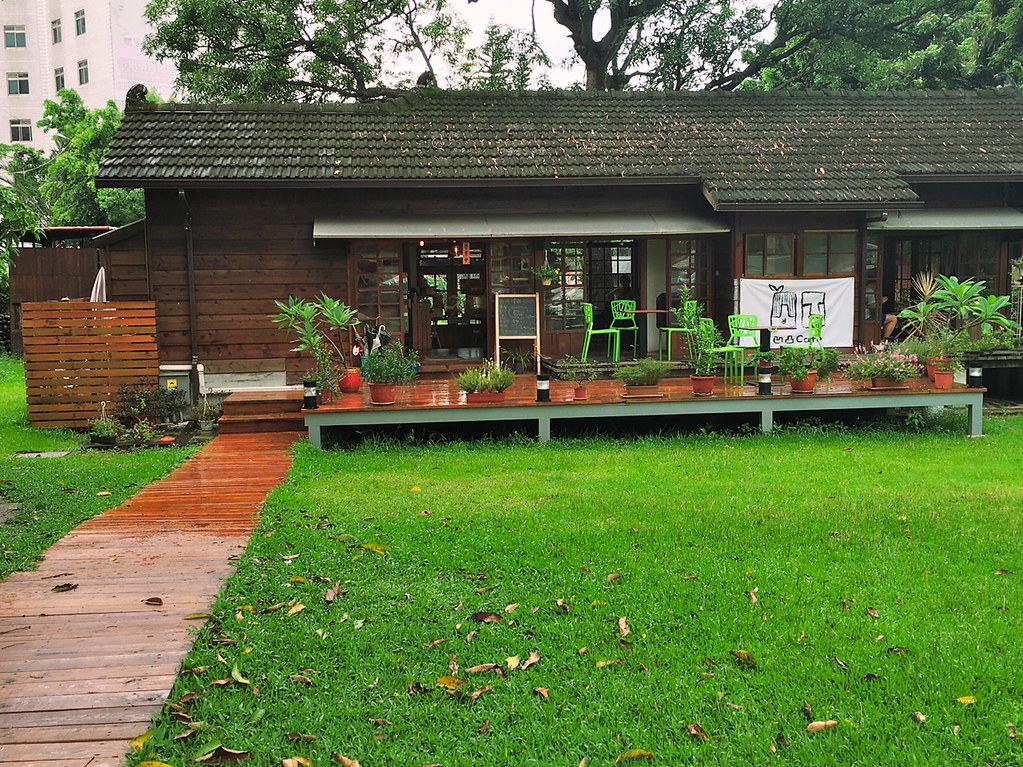 |
| Ao Tu (凹凸) Cafe in Douliu - probably the loveliest cafe in an old Japanese home I've been to in Taiwan |
Over the summer Brendan and I traveled quite a bit in Taiwan - I had some work to do in the south, and we decided to explore an oft-ignored corner of the west coast: the rural county of Yunlin, sandwiched between Zhanghua and Chiayi. It seemed like a good time to go, as Yunlin recently got its own HSR station - no need to hop a bus from some other county with a larger city transport hub (Yunlin itself has no city large enough to realistically be called a 'transport hub').
I have a lot of great things to say about this trip! First, the food is cheap, tasty and local. Second, the towns themselves are small enough and centralized enough to mostly be walkable, though without your own vehicle exploring, say, old farmhouses and mansions in the countryside is not possible (perhaps with a bike, but not on foot). Each town has fairly good public transportation to the other towns around it - we felt no need at any point to rent a car, which to me is an important benchmark for a good trip. If you read this blog you know how strongly I criticize the idea that one should have to be a comfortable driver to explore Taiwan, or be willing to drive in the urban craziness that often characterizes even mid-size cities here with scooter drivers who, quite frankly, could stand to take a few drivers' ed classes. We were not surprised by the friendliness of locals - that was basically a given - but were quite taken with how much easier it is compared to, say, a decade ago when I arrived in Taiwan to get a cup of coffee in a nice cafe in towns that many consider to be backwaters.
There is no specific reason to go to Yunlin, though if you are interested in Japanese-era architecture and Matsu temples you will find quite a bit, but for me that's a part of what made it worth going to. We had no specific tourist itinerary to tick off - we just rolled up in this or that town and saw what it had to offer.
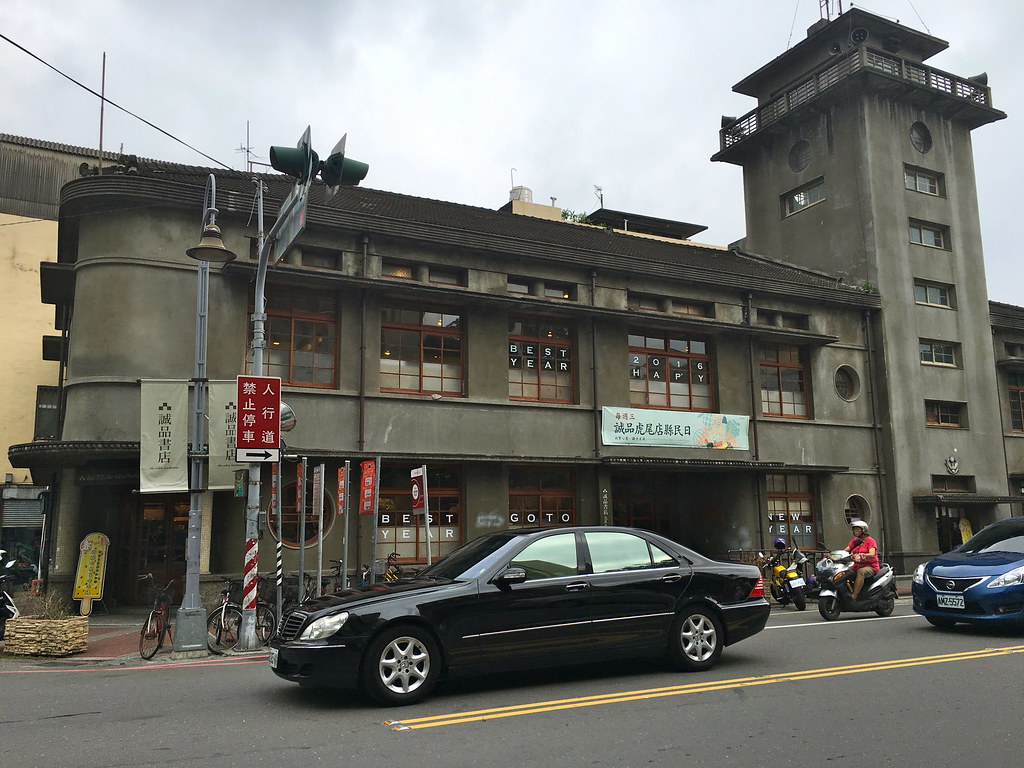 |
| The Eslite in a funky old building in Huwei - surely someone more knowledgeable than I knows what this used to be? |
Beigang
Atmospheric back streets, a temple in a flood plain (no guarantee you'll actually get to see it), gorgeous Chaotian temple and an old theater, some Japanese-era architecture and old street that are of mild interest. Surprisingly, the best Vietnamese food I've had in Taiwan as well. Also, they have a long-standing rivalry with Xingang (below) over the route of the annual Matsu pilgrimage, which I have been to the kick-off of.
Xiluo
A long, lovely old street, part of which is developed for tourism and part of which still retains that old-school Taiwan flavor, Fuxing temple (hope of yet another well-known Matsu shrine), soy sauce, a creepy abandoned theater
Huwei
Taiwanese puppetry museum, a few old buildings scattered about (at least one was visible from the puppetry museum, where we waited for a bus to Beigang - unfortunately we did not have time to spend much time there), a small eslite in a cool, weird old Japanese-era building
Douliu
A long old street full of well-preserved Japanese shophouse architecture that has not been developed for tourism, "famous" local squid soup, a temple that's Daoist in the front and Confucian in the back, some old Japanese wooden houses and several very good coffeeshops. Excellent night market once a week, usually Saturdays
Gukeng
Coffee and a waterfall (we did not get to visit) - you probably need a car to get to the waterfall
Xingang (technically just over the border in Chiayi) - we didn't get to go here but apparently there are a few tiger temples worth checking out as well as the destination temple for the Matsu pilgrimage (well, technically the mid-point - this is where Matsu stops and heads back to Dajia)
Getting to and around Yunlin
I would honestly recommend just taking the HSR, though there are buses from Taipei and other major cities. The HSR station is outside of Huwei, with frequent buses into town and to other towns (but not Beigang, you have to connect in Huwei for that at an ill-defined stop near the puppetry museum). Towns generally have buses running between them but for some smaller towns, you may have to wait awhile (we had a 1.5-hour wait for a Beigang to Xiluo bus).
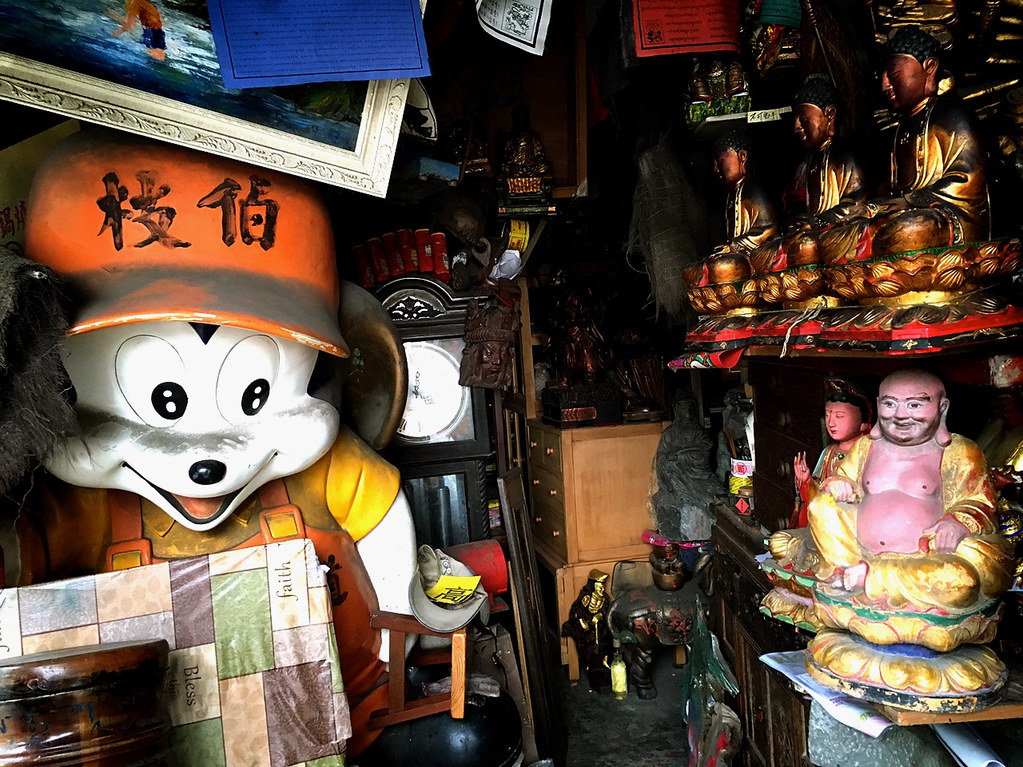 |
| A weird...shop? Home? in Huwei. The friendly folks hanging out there gave me tea. |
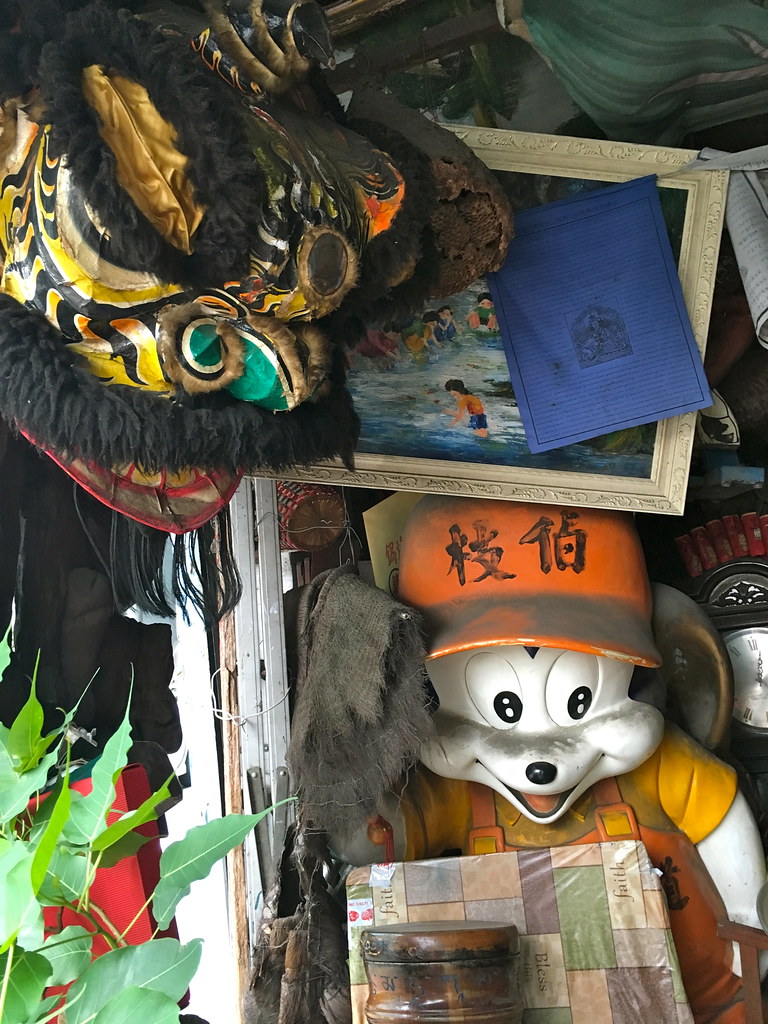
Accommodation
All of these towns have standard third-rate "business hotels" for local businessmen - these hotels tend to be a bit run-down and depressing, but clean enough. I suggest avoiding them and staying at airbnbs whenever possible, especially if you speak Chinese. The only town that didn't seem to have an airbnb option was Beigang. In that case, spend a bit of extra money and stay in the "nicest hotel in town" which is...fine. It's also above a pasta restaurant. We were happy with all of our accommodation.
I won't list where we actually stayed as I think airbnb is technically illegal in Taiwan, but they shouldn't be too hard to find.
Beigang - "Good Stay Homestay/'Nine Long' Pasta" (好住民宿/九久PASTA - don't even bother with the English name) - a bit expensive though we were given the 'honeymoon suite', but undeniably centrally located and the best hotel in town. They are used to foreign guests but I am not at all sure they speak English.
Xiluo - a clean room with a private bathroom owned by a nice family on Fuxing Street, a bit far from Yanping Old Street but walkable - you'll mostly deal with their son who is very friendly. The shop on the first floor sells temple accoutrements (incense, paper offerings etc) in the front and has a local-style beauty salon (threading, eyelashes, back massage etc) in the back. If the son is free he'll pick you up at the bus station. Best if you speak Chinese or Taiwanese. A little far from Yanping Old Street but a pleasant enough walk.
Douliu - this one has an interesting title to their airbnb page, but book here and you'll get to stay in a really interesting house in a small cul-de-sac community with an old-school feel and very friendly dog (I seriously love that dog and still miss him). The parents may speak English - I don't know, we never used it - their son definitely does, but he may be away for work. The parents are super nice and if they like you will make you lots of tea. A short enough walk to everything, including a very good cafe close by.
Our trip
We started from the HSR station, where we hopped a bus to Huwei and connected in town to Beigang (the "bus stop" is a bit of roadside outside of a municipal-looking building next to the puppetry museum, which I'd love to return and check out someday), arriving in Beigang in the early evening. Huwei looked interesting and I wish I'd gotten a chance to explore it more. The road to Beigang led through some very rural farmland, and as we approached town we noted quite a few picturesque old farmhouses and rural mansions. With a car or bike, it would be worth it to head out and try to find them.
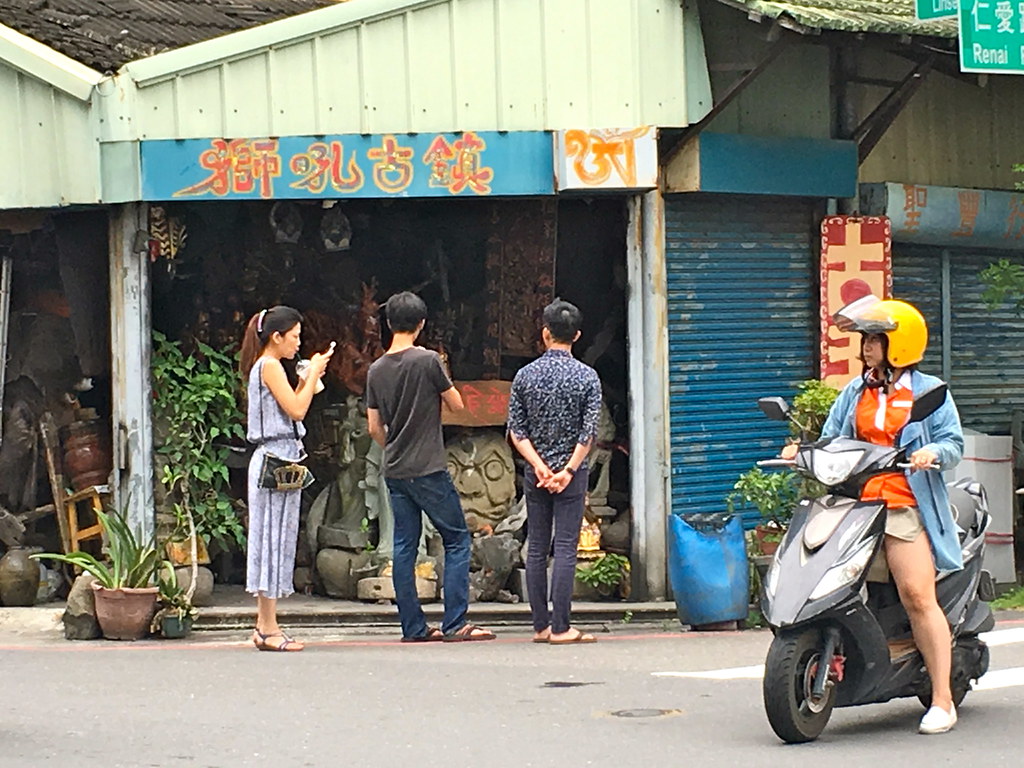 |
| I was not the only one that found the weird shop in Huwei to be of interest. |
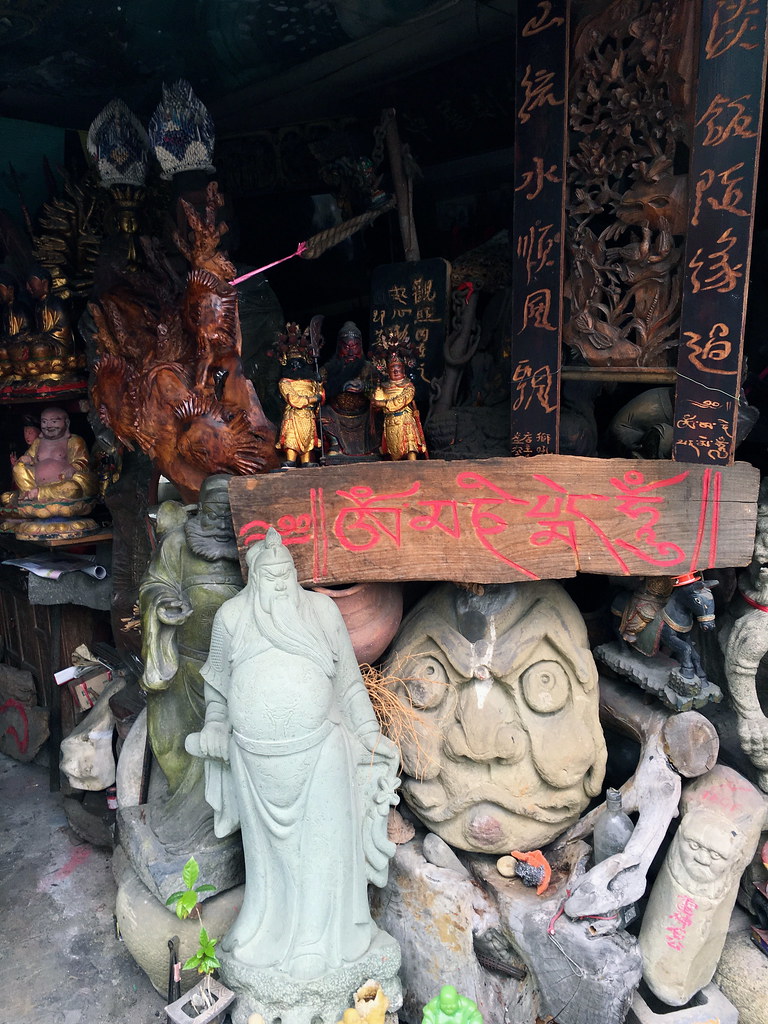
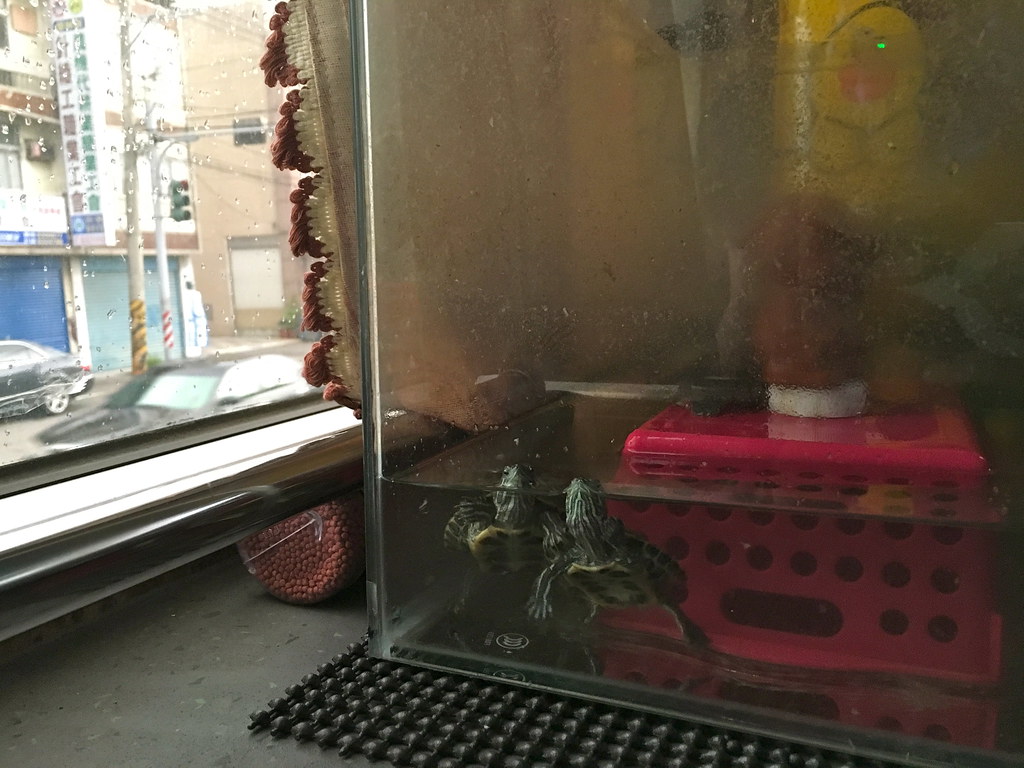 |
| Turtles on the bus |
I noted with some glee - and a little sadness - that the bus driver drove around with his pet turtles in an aquarium. Cute and quirky but probably not that much fun for the turtles. Anyway, I'd be interested to know if anyone heading that way ends up on the Turtle Bus.
We checked into our hotel in Beigang, enjoying the atmospheric back streets, before heading to Chaotian temple just before sundown.
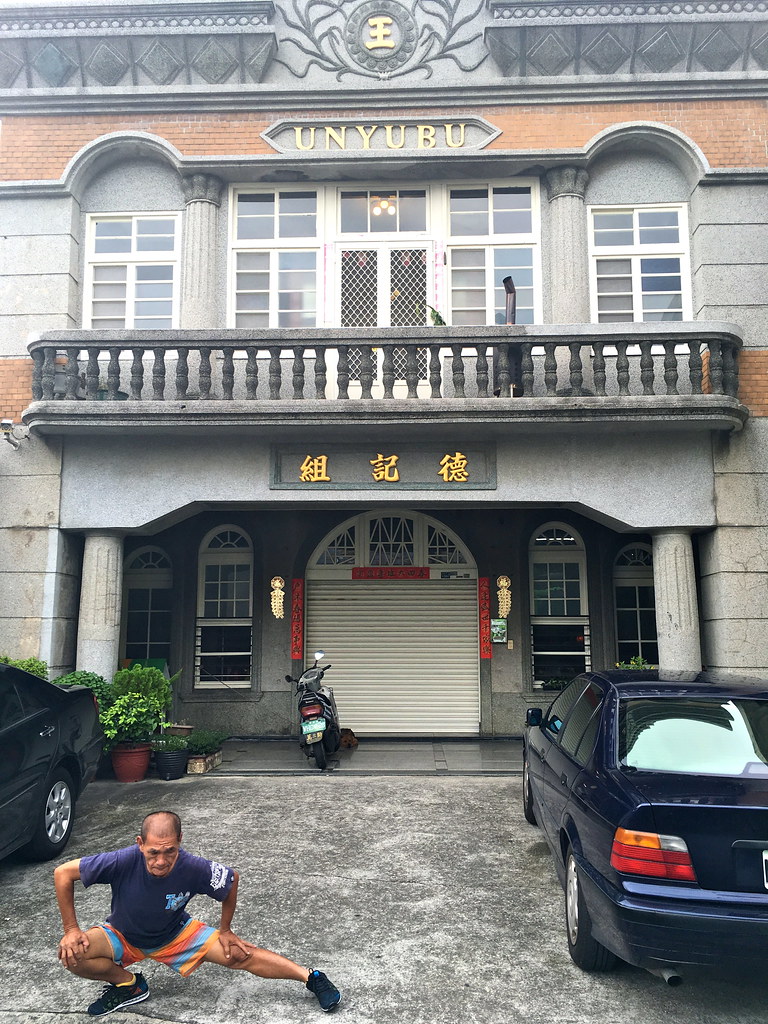 |
| I didn't intend for this guy to be in my photo, but there he is. |
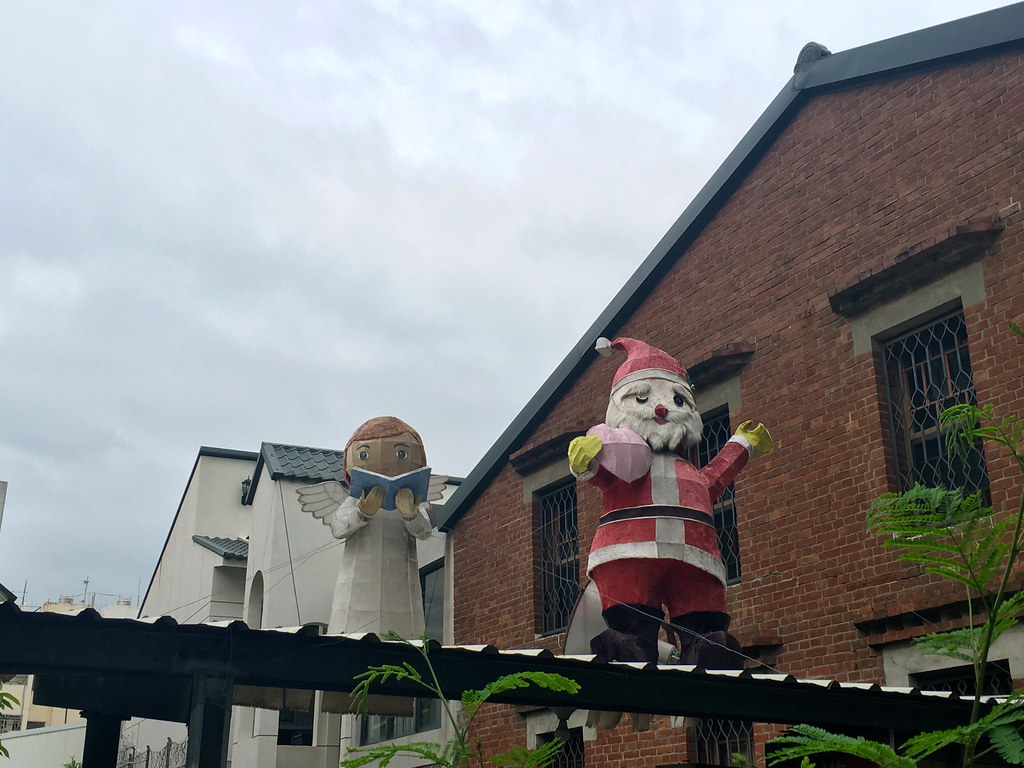 |
| This isn't any less creepy after dark |
Chaotian temple, founded in 1694 but renovated and expanded several times up through the 20th century, really is lovely. Many doors bear placards bequeathed by various Taiwan notable people, including several former presidents. Notably, although it is one of the most well-known temples in this part of Taiwan - and even known across the country - it is not the temple where the internationally-known Matsu pilgrimage ends. That's just over the county line in Xingang, and if you think the two temples must have some sort of rivalry over this, you would be absolutely right.
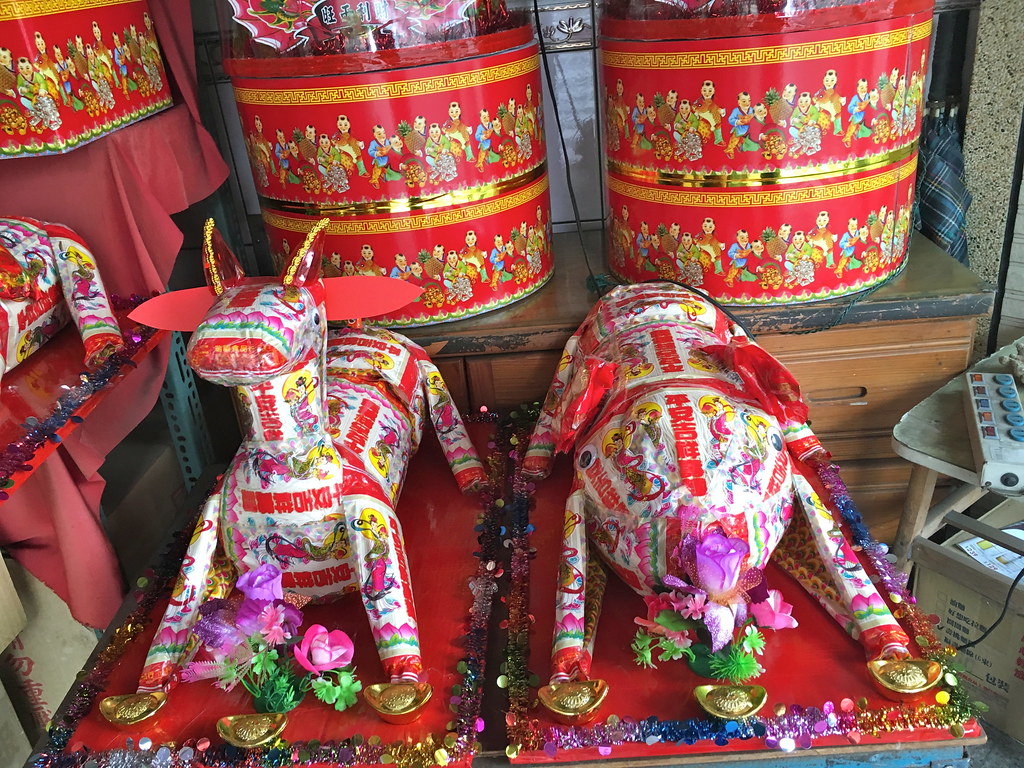
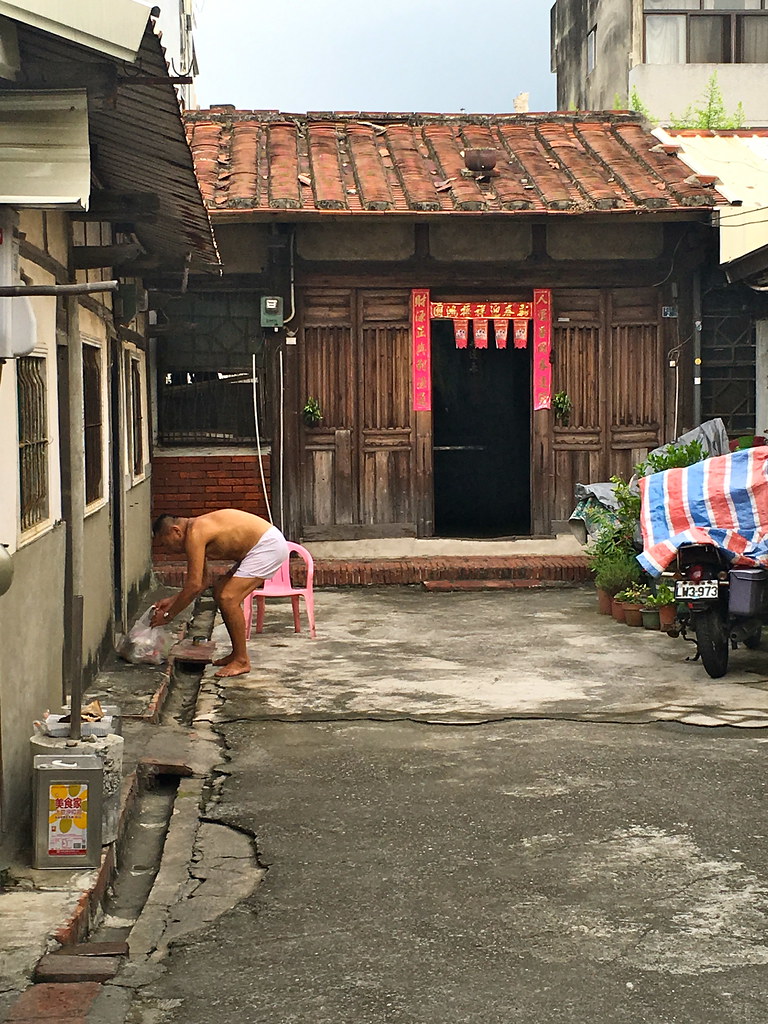 |
| A (likely) Japanese-era wooden house in Beigang |
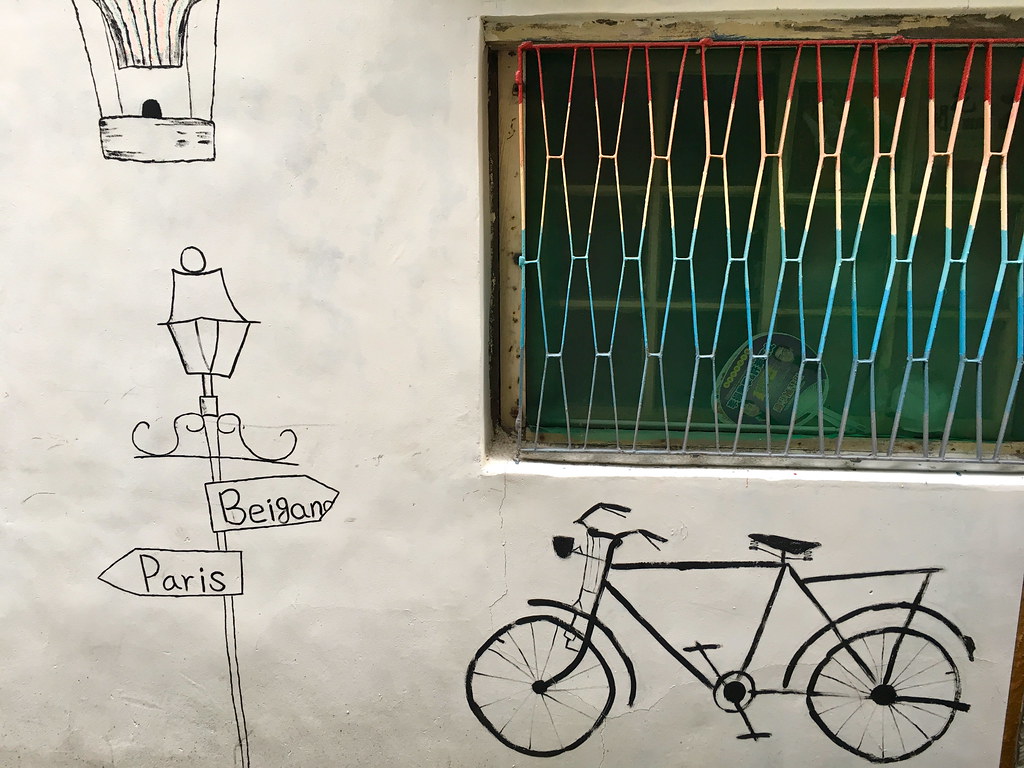 |
| Perhaps they are setting their sights a little unrealistically high comparing Beigang to Paris |
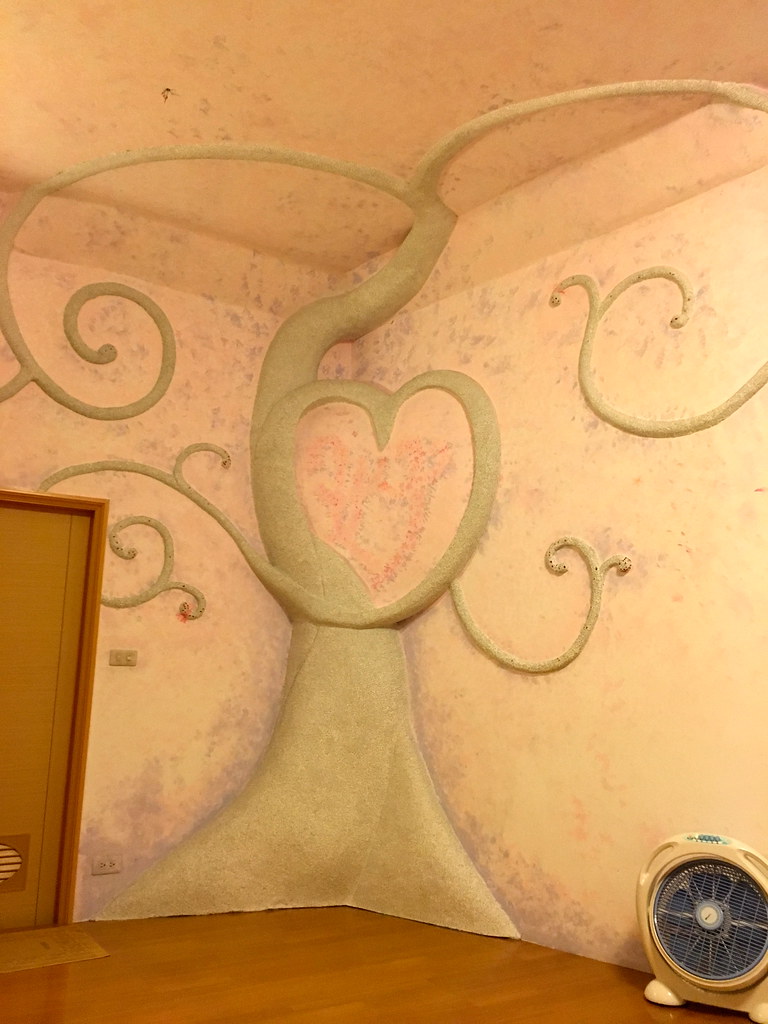 |
| The "honeymoon room" at our hotel in Beigang |
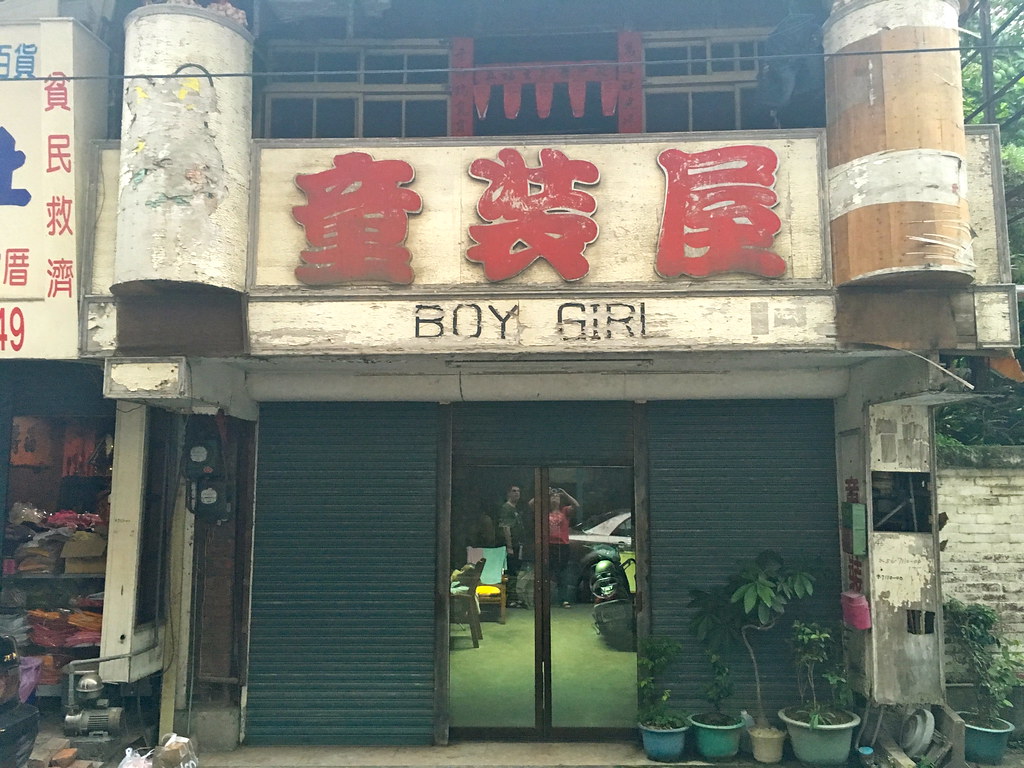 |
| Not a clue. |
I won't bother to describe Chaotian in words. Enjoy some photos.
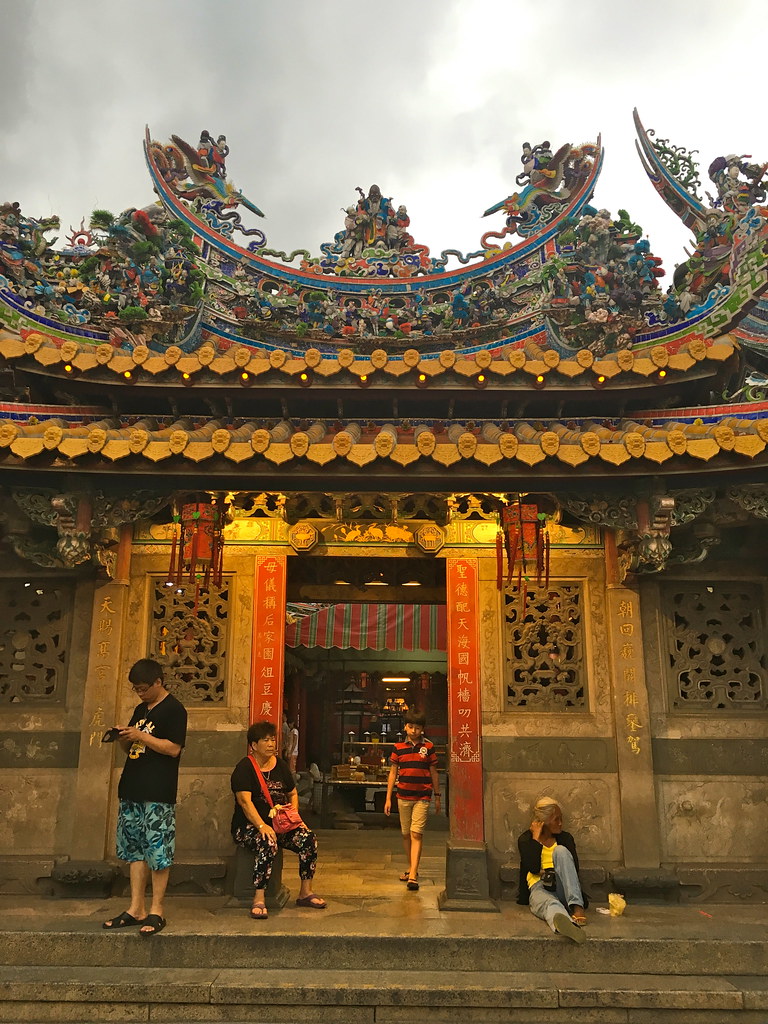
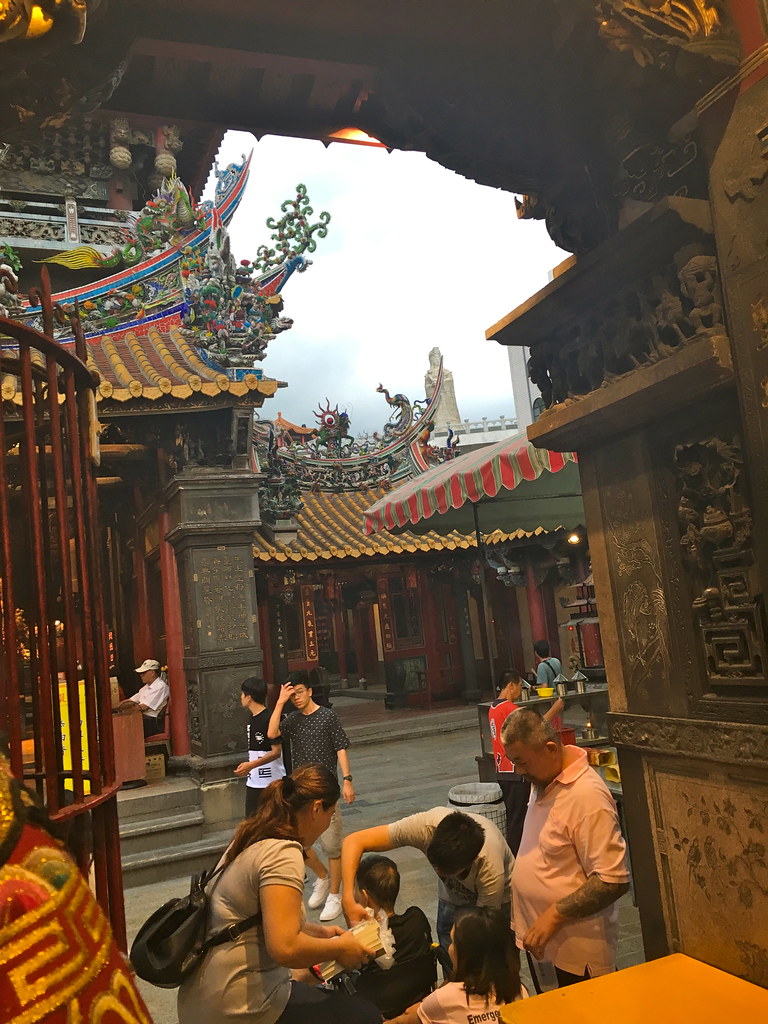
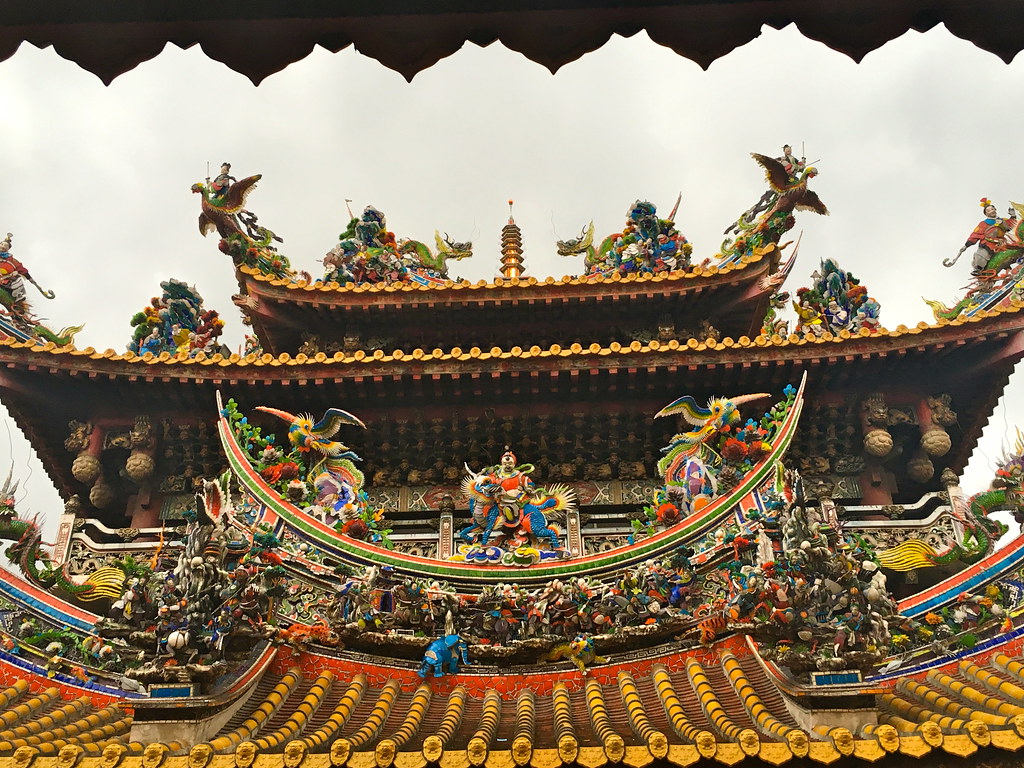
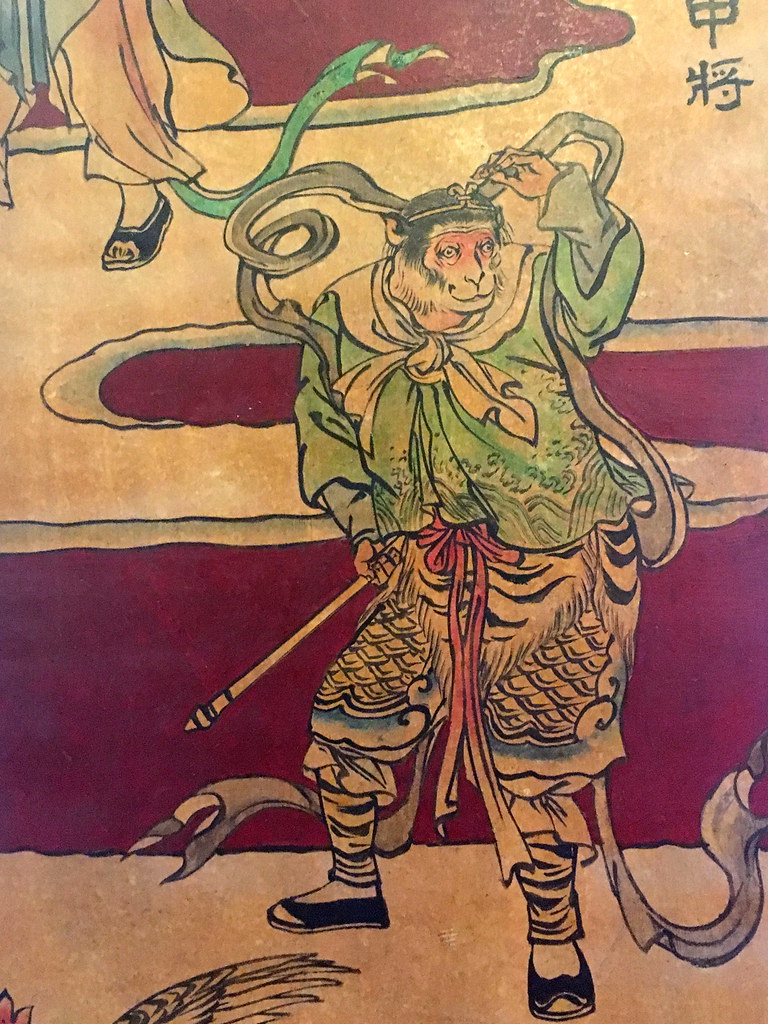
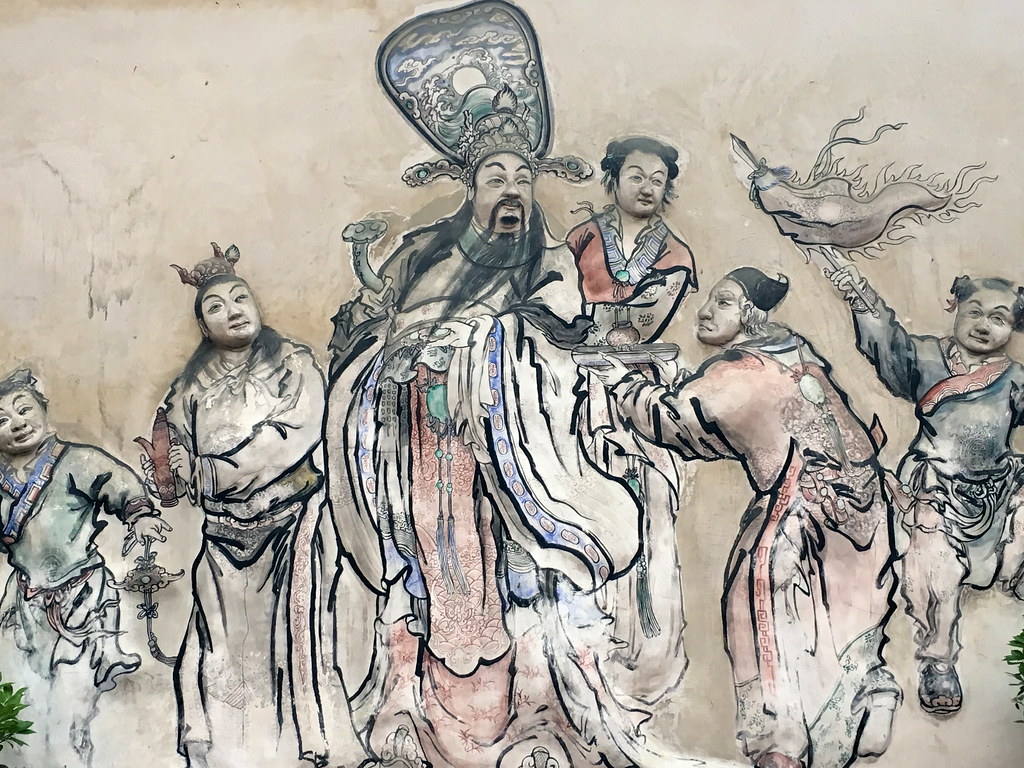
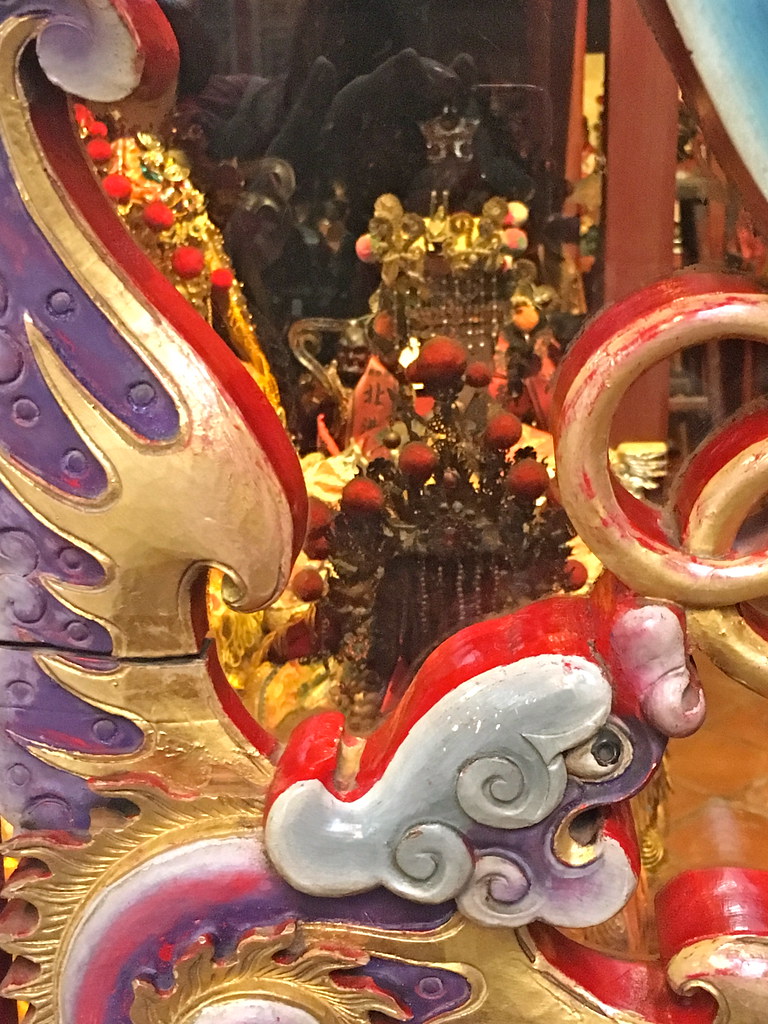
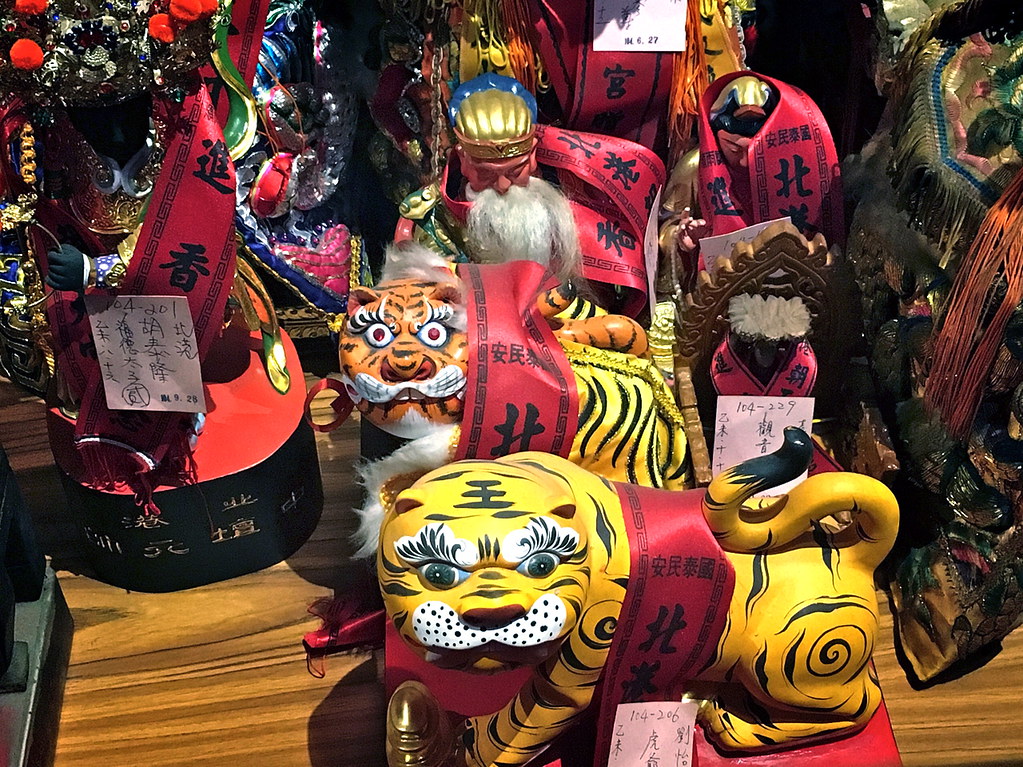
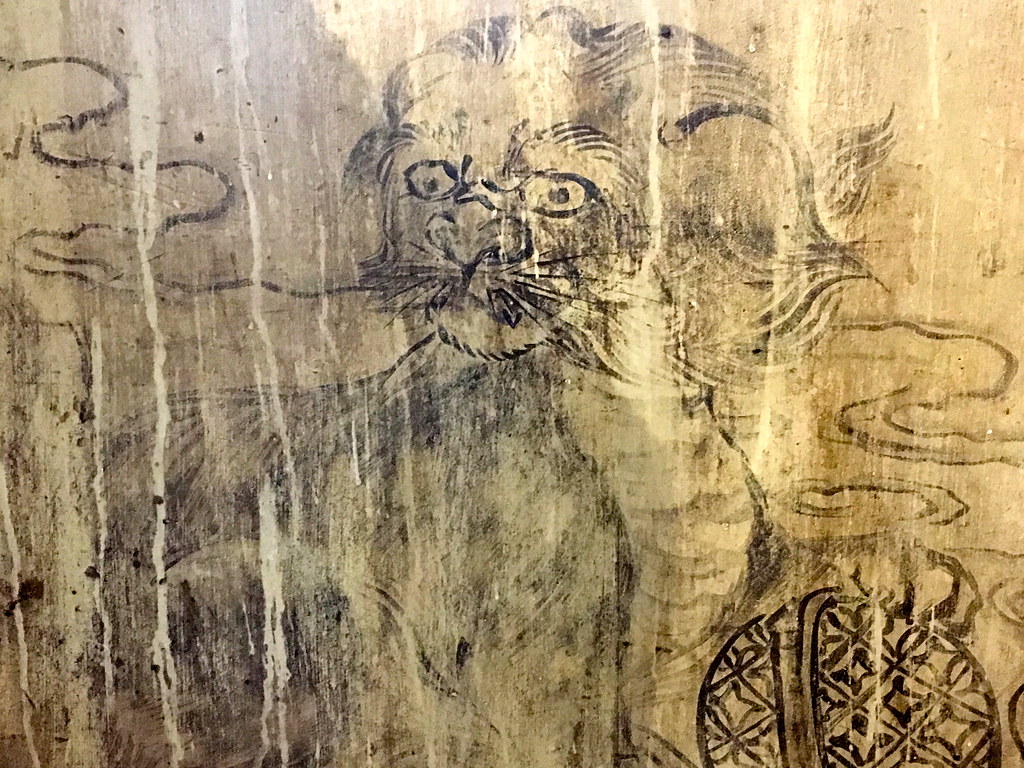
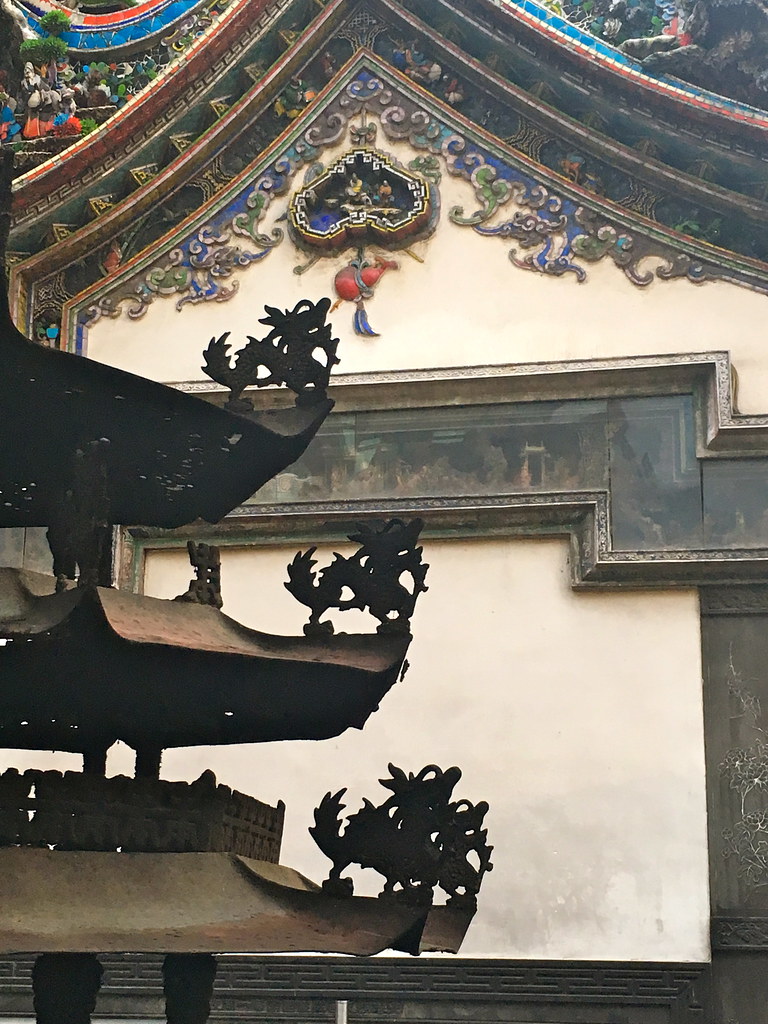
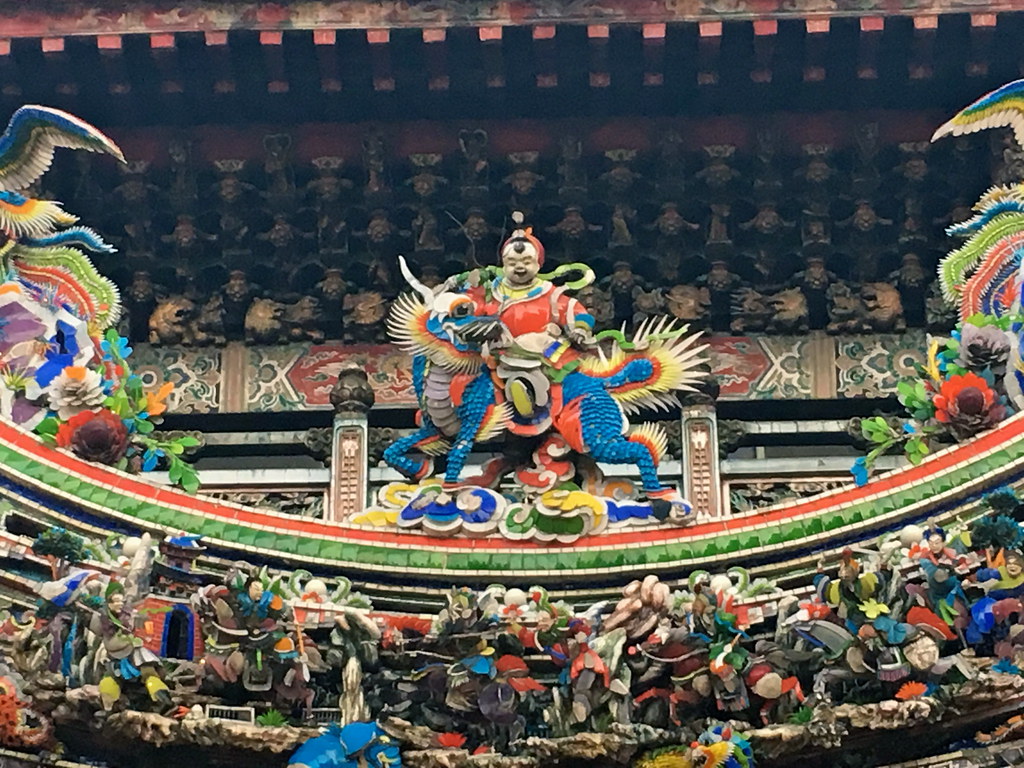
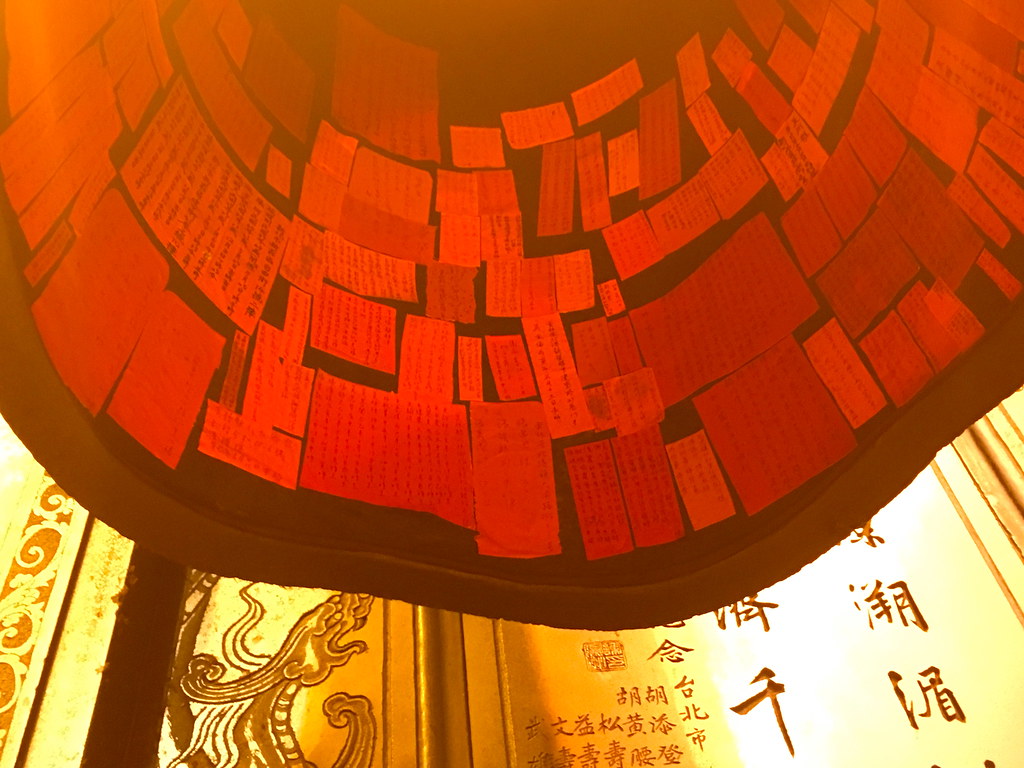
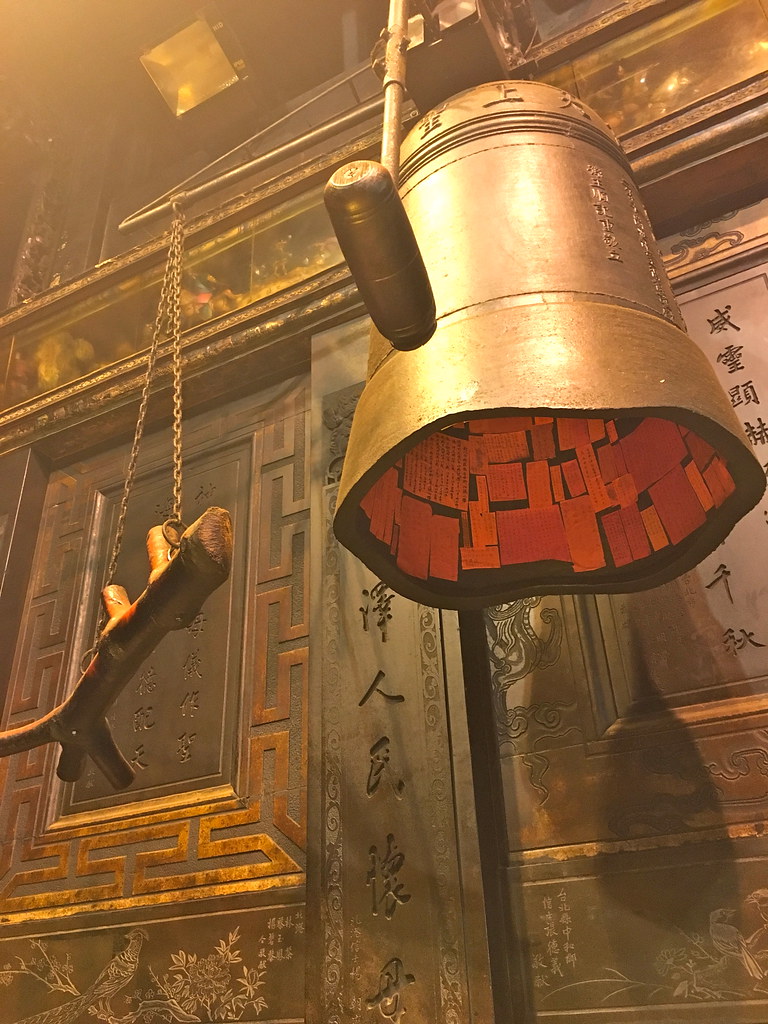
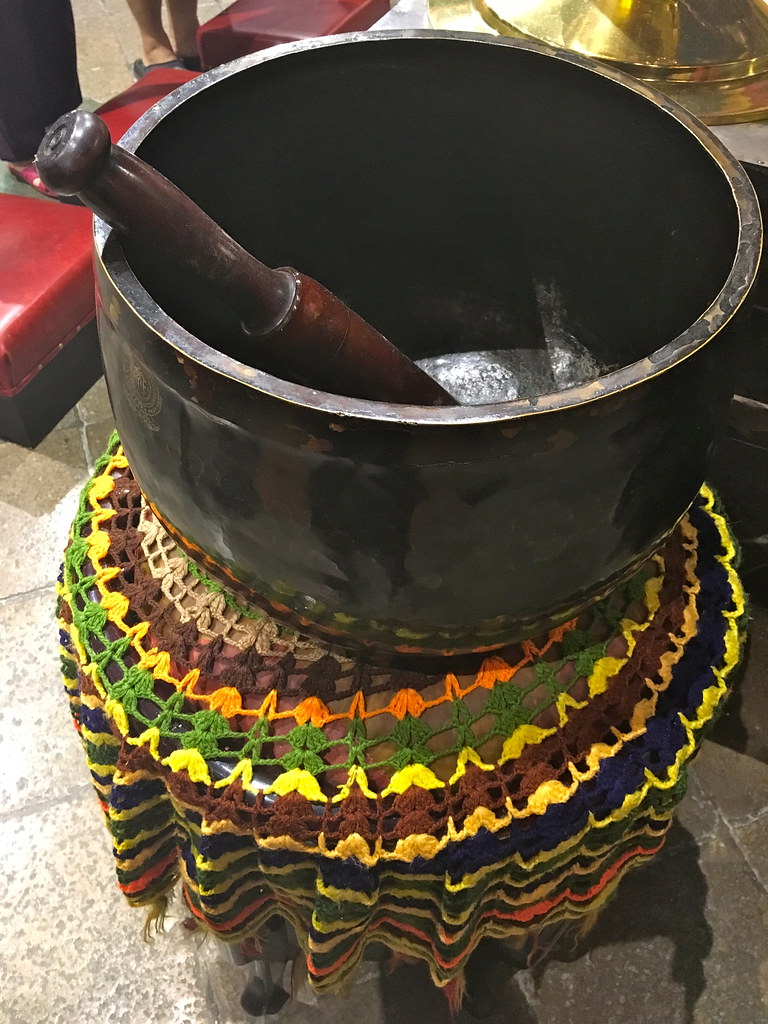 |
| I love the antimacassar-style colorful crochet work here |
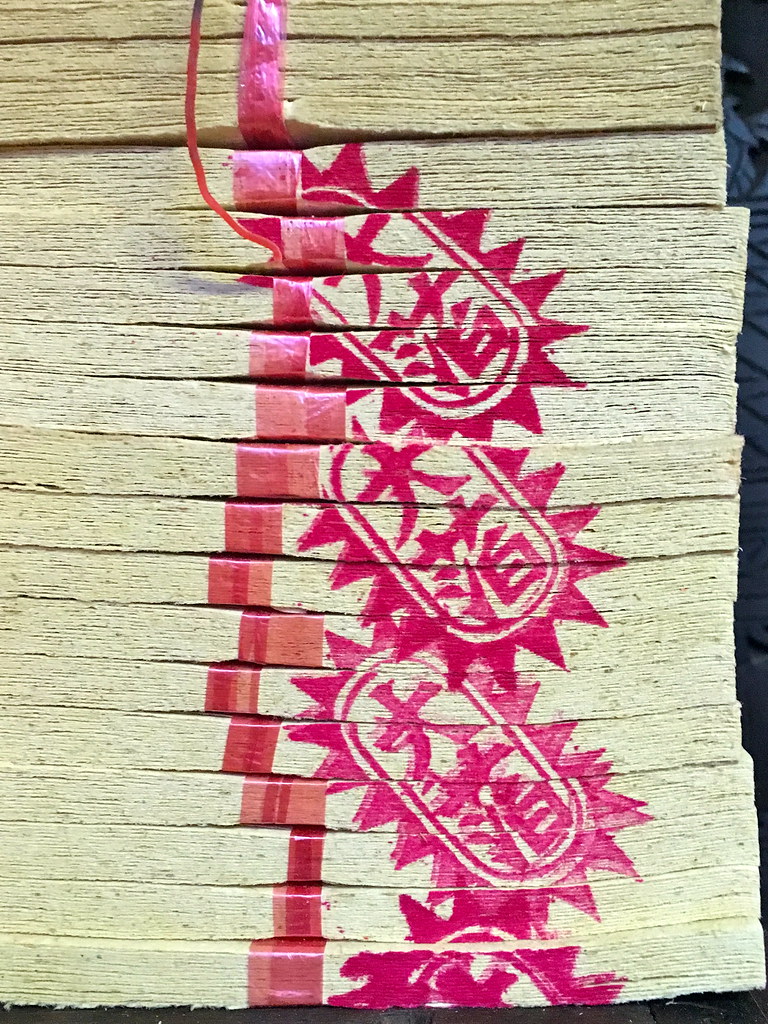
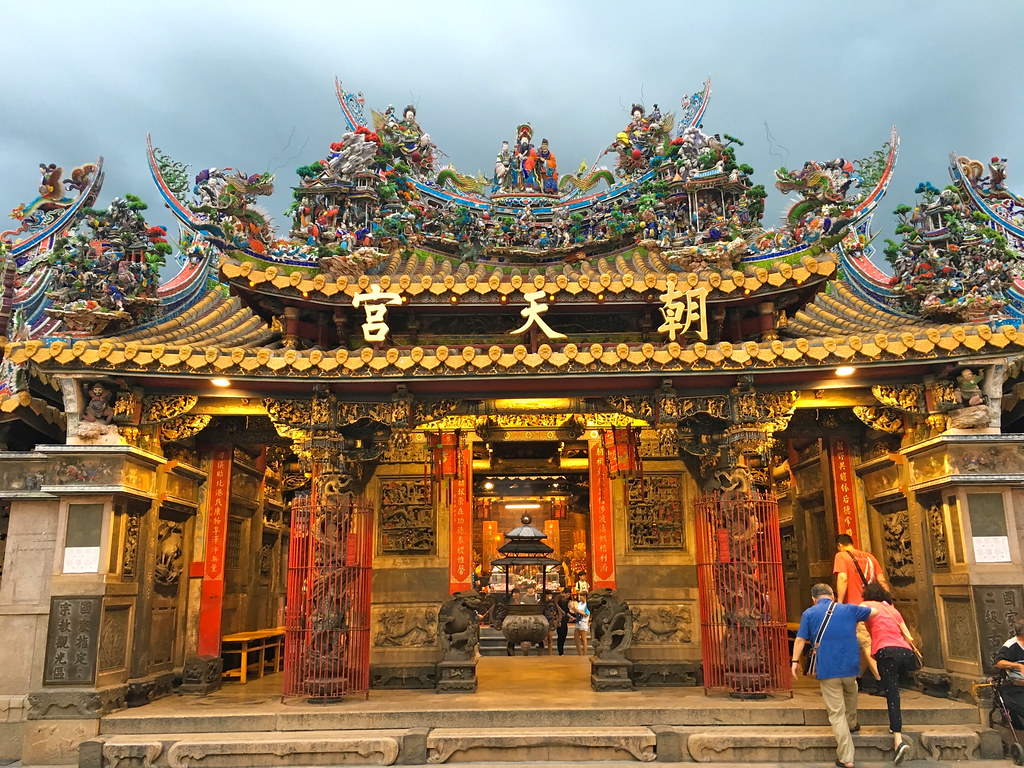
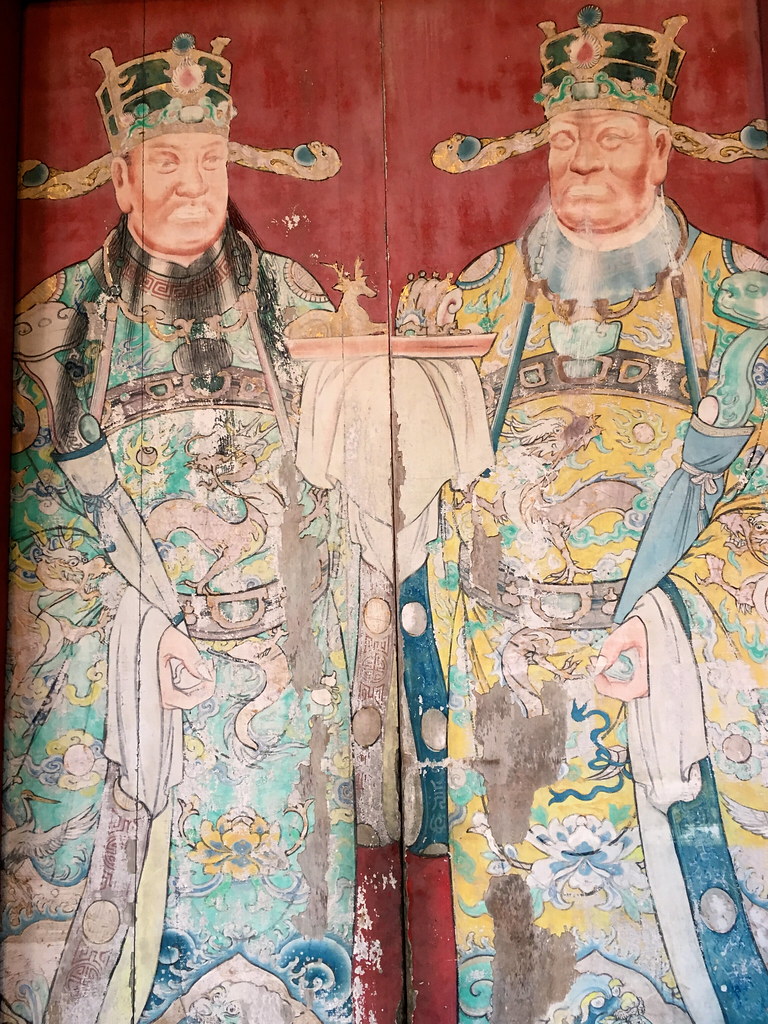
After walking a bit and noting not only the giant Matsu sculpture we could never seem to actually get to (I think it was at the top of a building we couldn't access), we noted that if the ugly shopping mall across from the temple were open, there would seem to be some sort of cafe in it, we wandered back past the hotel, towards the bus stop where we were dropped off. On our walk downtown we'd passed what looked like a re chao (熱炒) place where the food is good and the beer is cheap and plentiful and decided it was as good a place as any for dinner.
瓠仔貴燒烤熱炒 - I can't even begin to translate the restaurant's name into real English
北港市中華路103號
Zhonghua Road #103 (intersection of Zhonghua and Taishun roads)
Along the way we got a bonus sight - a cute little church with a seriously creepy Christmas display at precisely the wrong time of year.
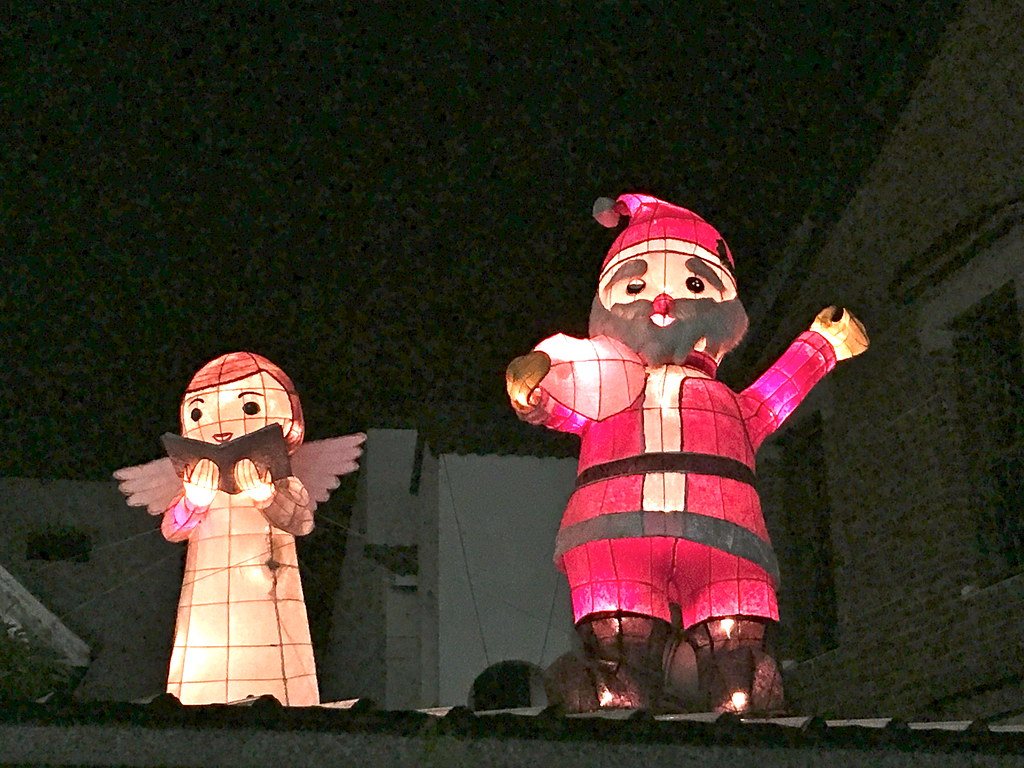 |
| I TOLD YOU IT WASN'T ANY LESS CREEPY AT NIGHT |
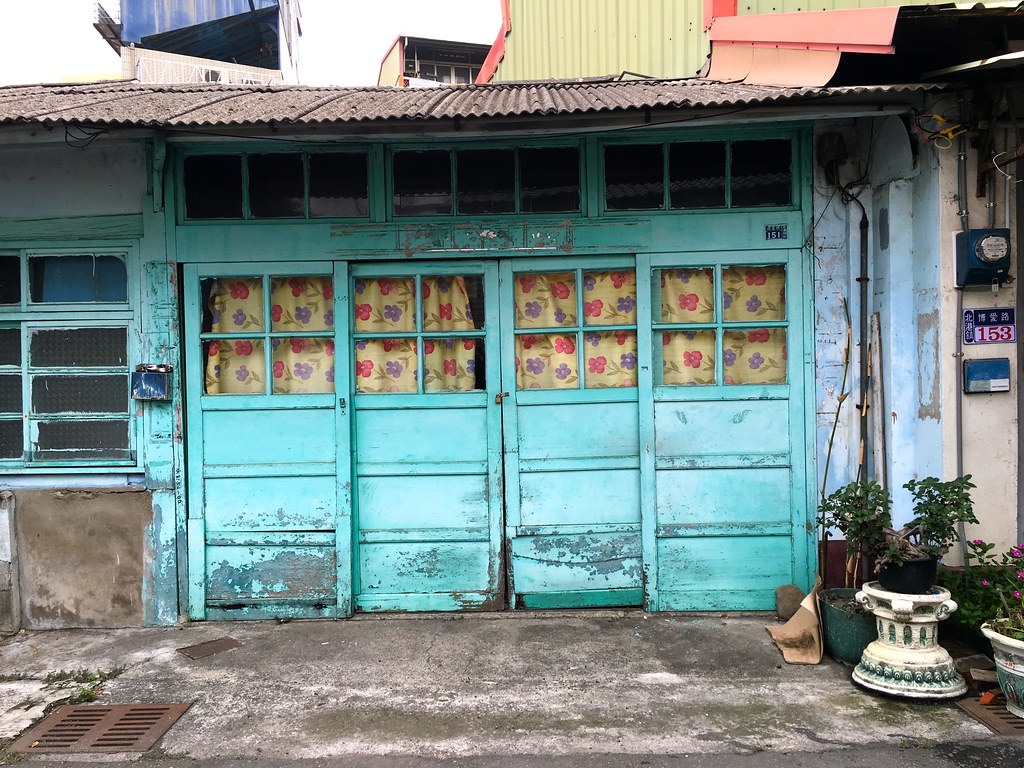
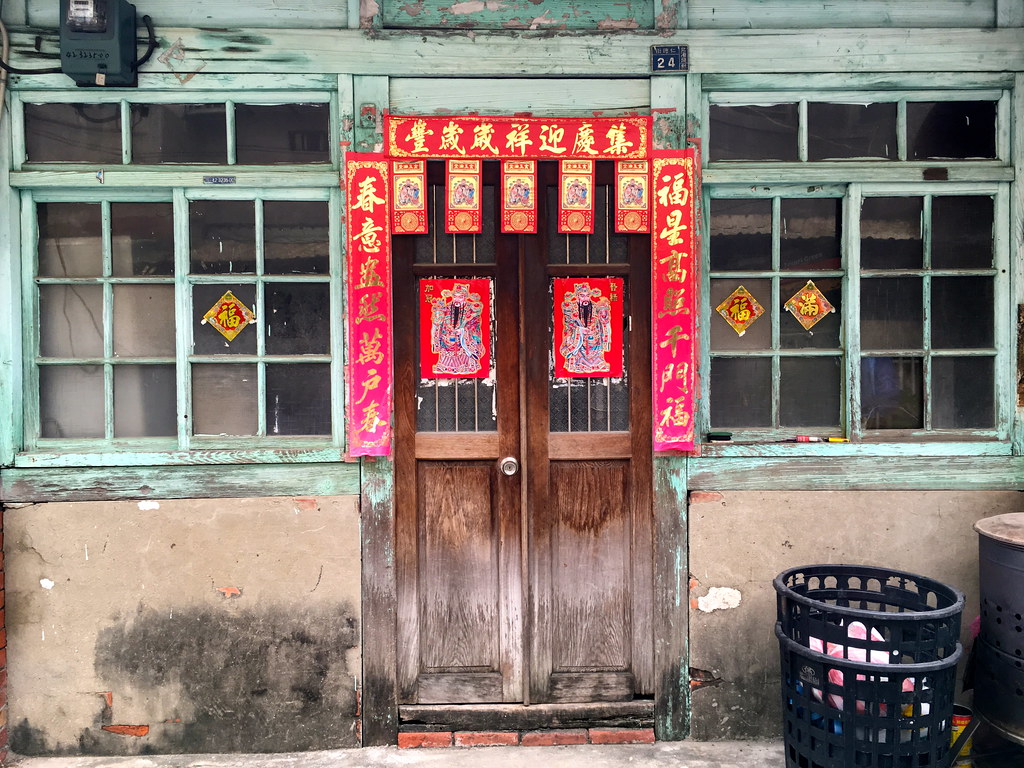
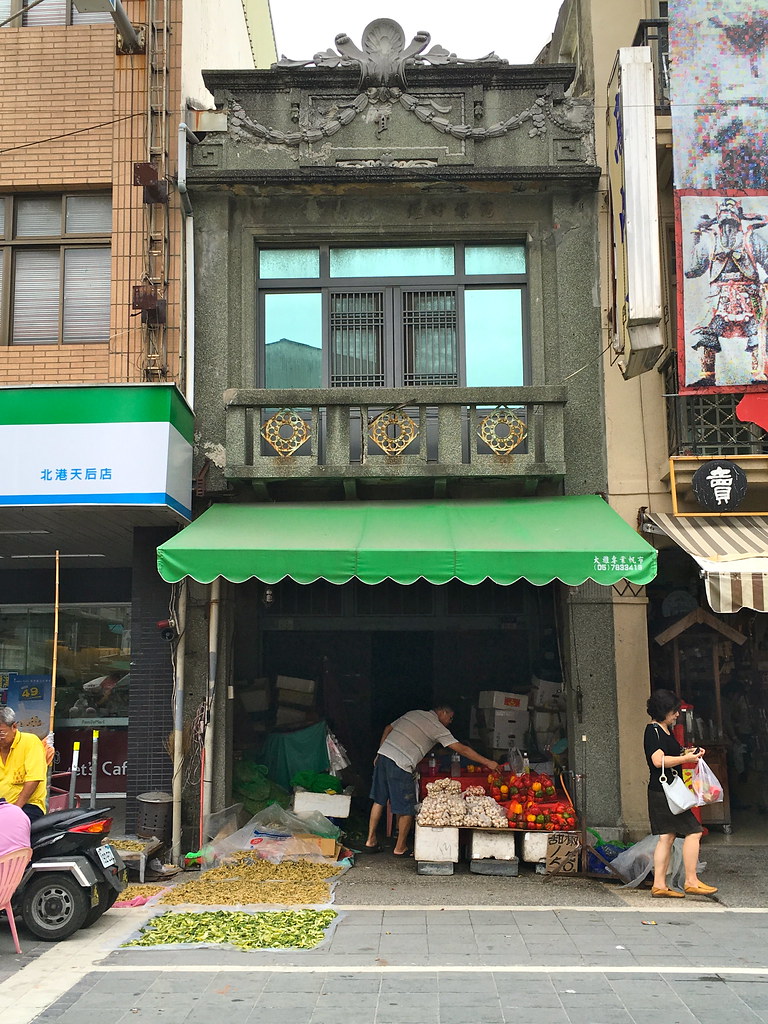
What I enjoyed about this stretch of road was coming across some sort of religious ceremony with a spirit medium. I've shown this to a few students but nobody seems to know what ceremony is being performed or why.
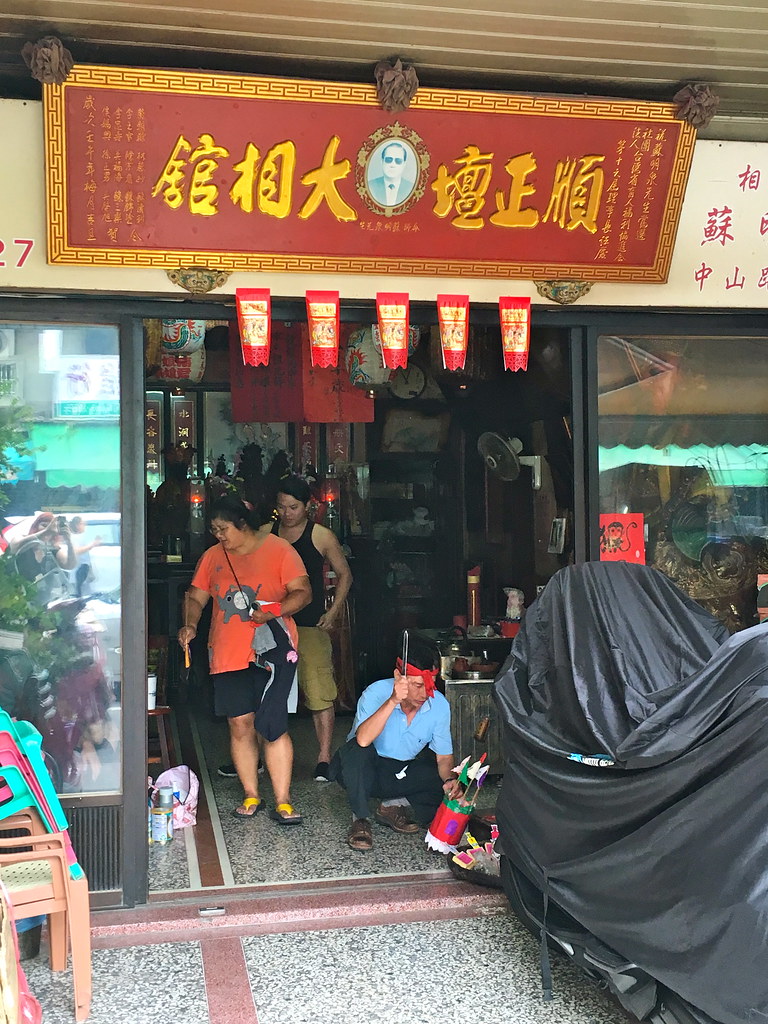
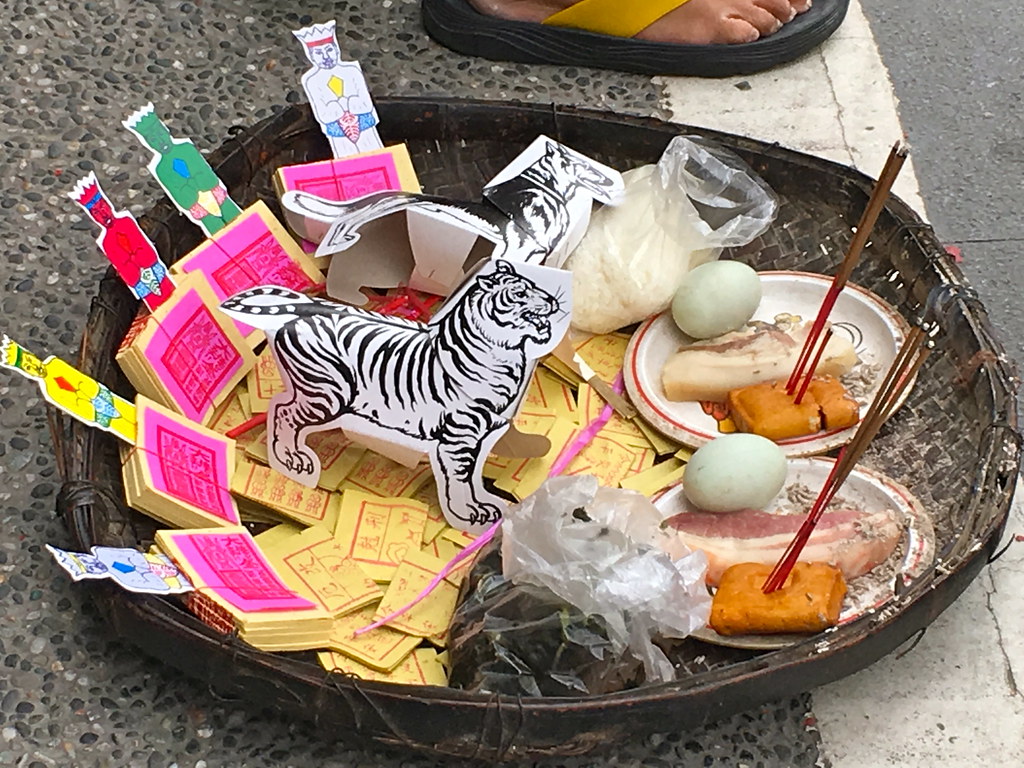
We did cross the bridge to Chiayi County (Beigang is nestled in a bend in the river that separates Yunlin and Chiayi), which is completely unremarkable. There is a cute but nondescript temple at the other end, that's about it. If you're short on time, skip it. I didn't think it was that impressive, but not everyone agrees with me.
We didn't get to see this but apparently there is a recently-resurfaced temple in the riverbed that, if you can get there, would definitely be worth a look. (I'm searching for the information on that now, and having little success).
A bit more interesting are some of the old Japanese municipal works down a road to the left as you approach the bridge. You can find them on any Beigang tourist map - yes, such maps exist and they can be had in the pasta restaurant/hotel we stayed at. Most notably, the Beigang Waterway (Aqueduct?) Cultural Park (北港水道頭文化園區), which is worth swinging by, though I didn't take any photos good enough to include. Near it there is a puppet shop - the puppets clothing is mass-produced but the owner carves and paints the heads himself.
Around this time the sky began to darken, and we ended up in quite a rainstorm as we worked our way back up towards our hotel. Closer to the north end of downtown is a closed-down Art Deco theater. Worth a look if you are in town. I looked on Google Maps to try to find it again, but was unable to - if I ever figure out the exact location I'll come update. (In any case, you can't go inside).
And we enjoyed a few more old temples that are not as well-known as Chaotian Temple:
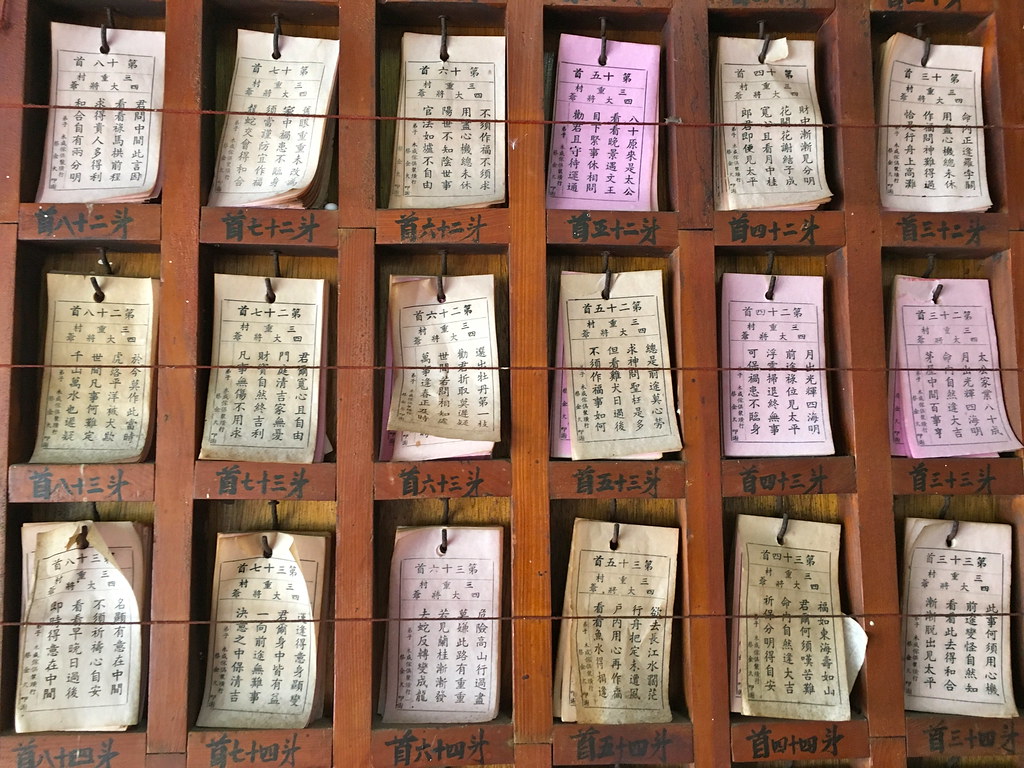
And this interesting home - the owner happily invited us in and showed us around.
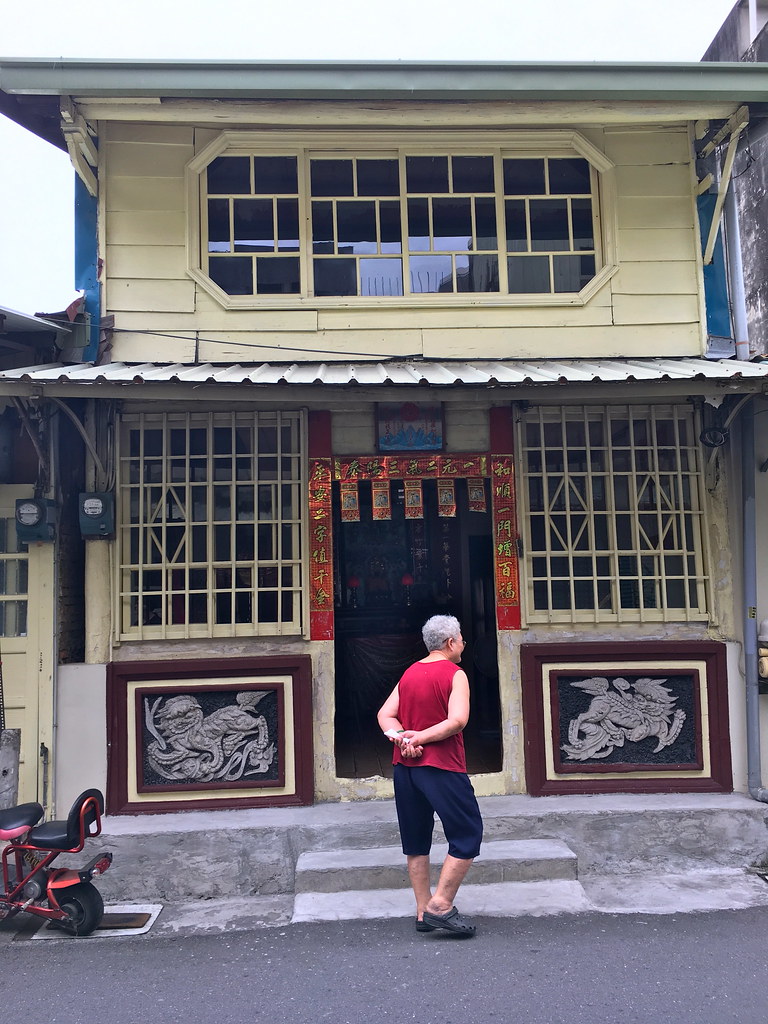
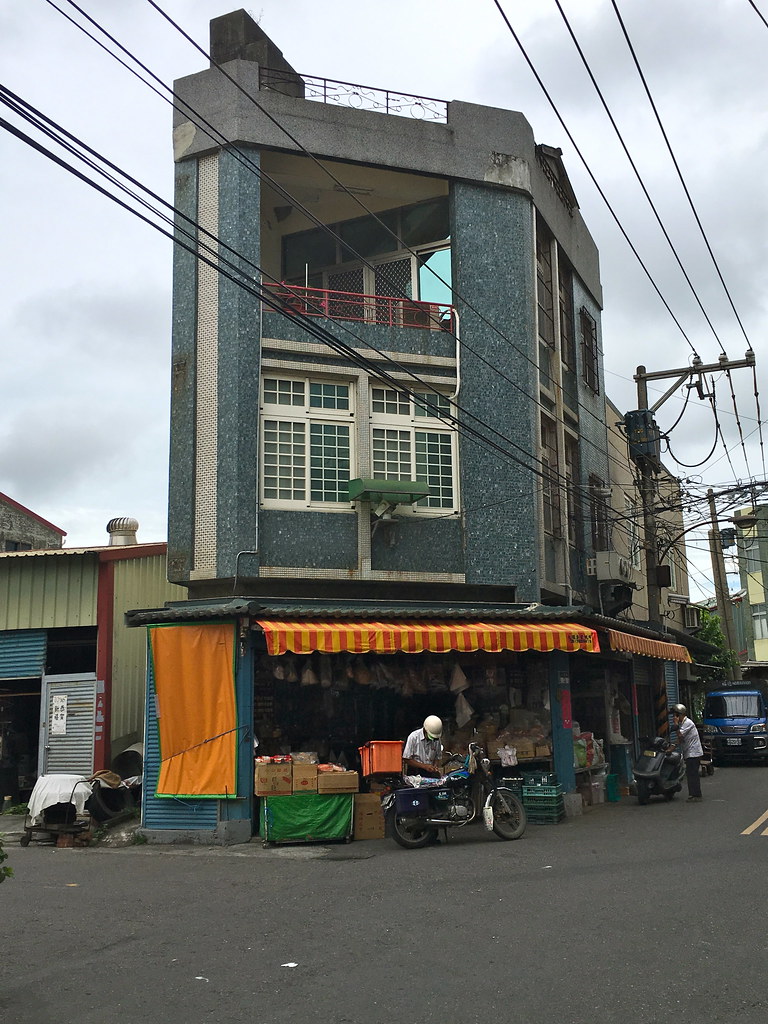 |
| I feel like something is missing here. |
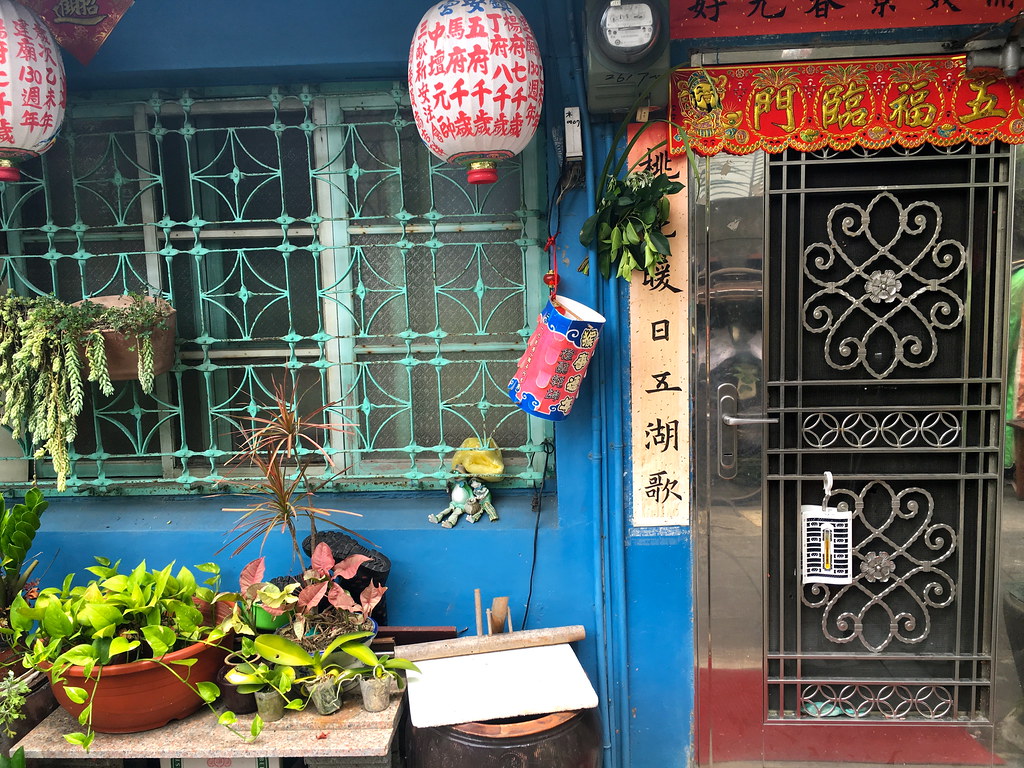
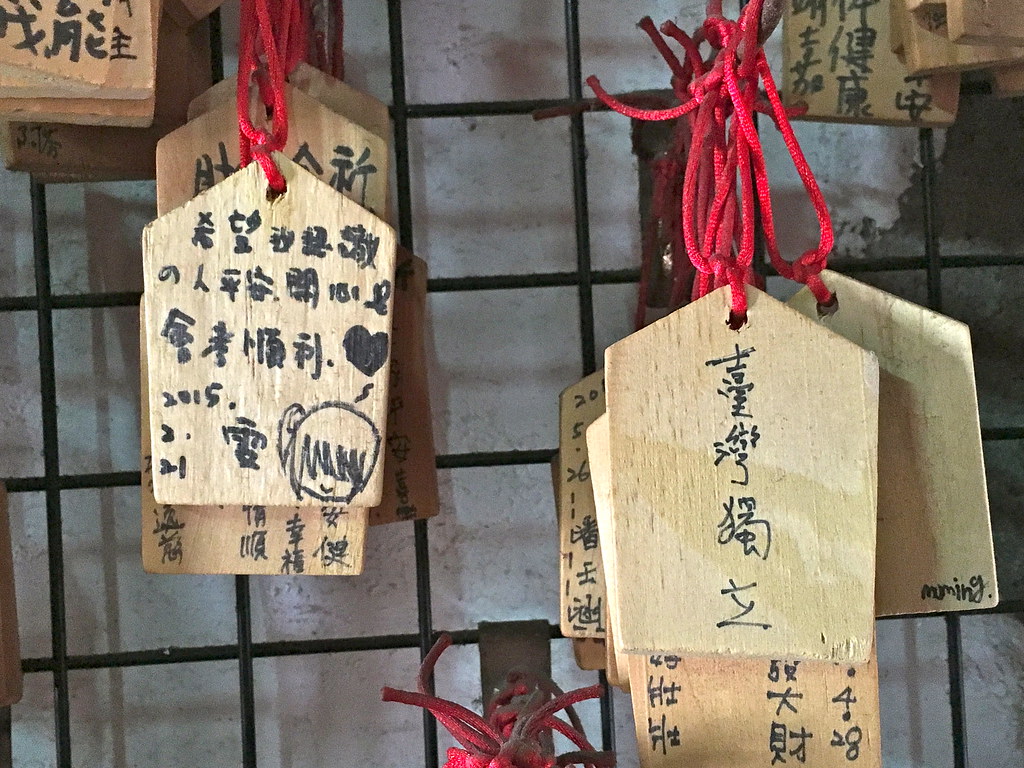 |
| Apparently I am not the only one who leaves this wish at every temple |
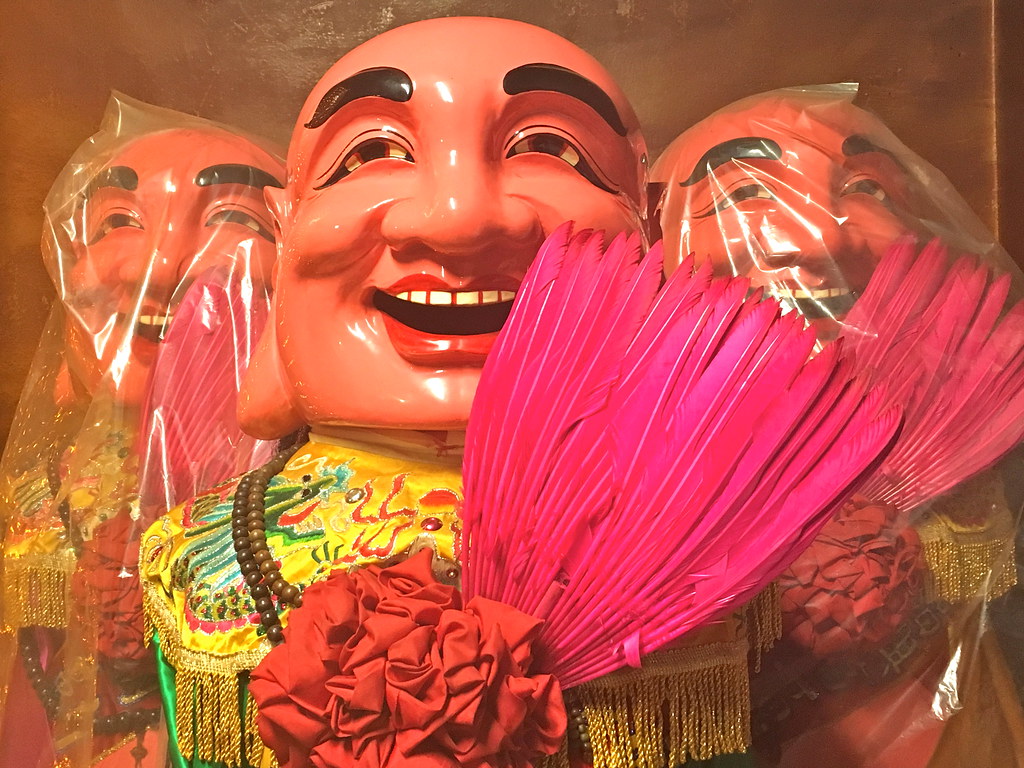
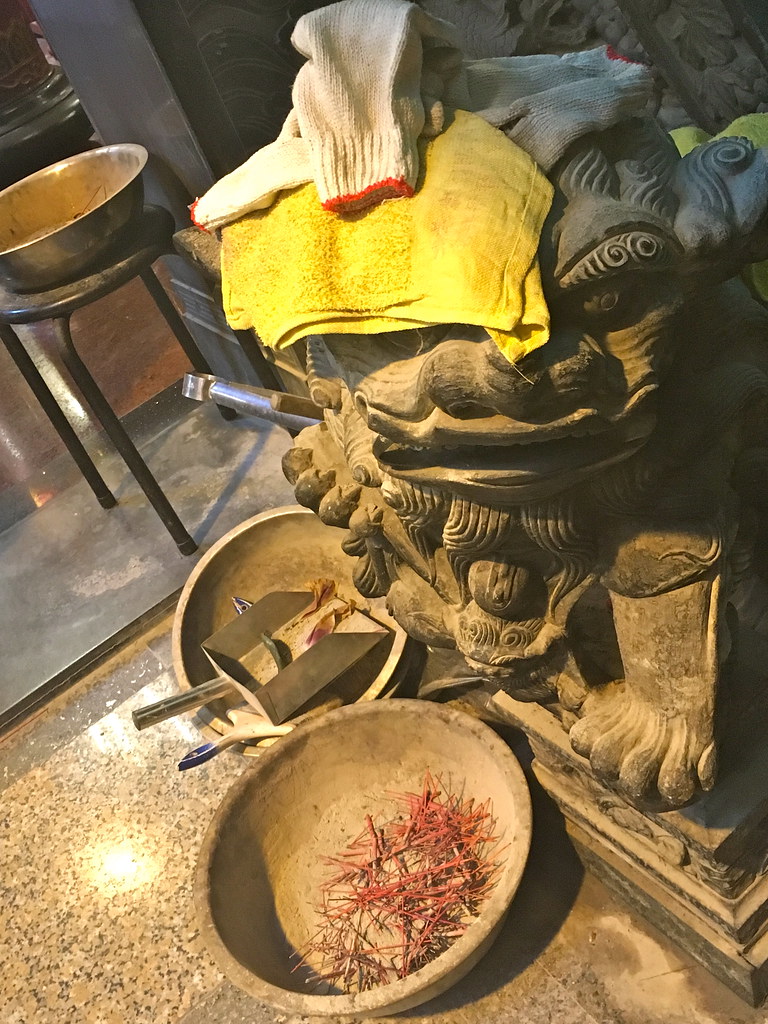
We then picked up our luggage and headed to Taixi Bus Company (台西客運) at #117 Zhongzheng Road, which is a bit south of the bus station - more like a parking lot - where we were dropped off. We learned that the next bus to Xiluo wouldn't leave for close to 2 hours, so we wandered next door where we'd noticed a Vietnamese restaurant.
And by god, it was amazing. We got a regular pho with clear but deeply flavorful, velvety broth and a more "curried" pho that was also delicious. On top of that, we got fried rolls with lettuce, a typical Vietnamese dish. It should be located at #115 Zhongzheng Road (北港市中正路115號).
I highly recommend planning to eat at this place for lunch by figuring out when your particular bus leaves and showing up early.
We finally hopped a bus to Xiluo, where our airbnb host was kind enough to pick us up (the airbnb is about a 1km walk from the bus station). It didn't take more than a half hour to get there - distances are not far and roads are flat.
There is so much Japanese-era architecture in Xiluo that you can't help but notice it on the bus into town.
We put our bags down and walked up to Fuxing temple, where we dallied until nearly sunset. This temple is right where Fuxing Road meets Yanping Road, and was built in the 1700s. It houses a famous Matsu idol called the "Taiping Matsu".
As dusk set in we walked down the non-touristy part of Yanping Road, where most of the intriguing architecture can be found. We also walked down to the touristy end, but night had fallen by then and everything was closed, including the cafes.
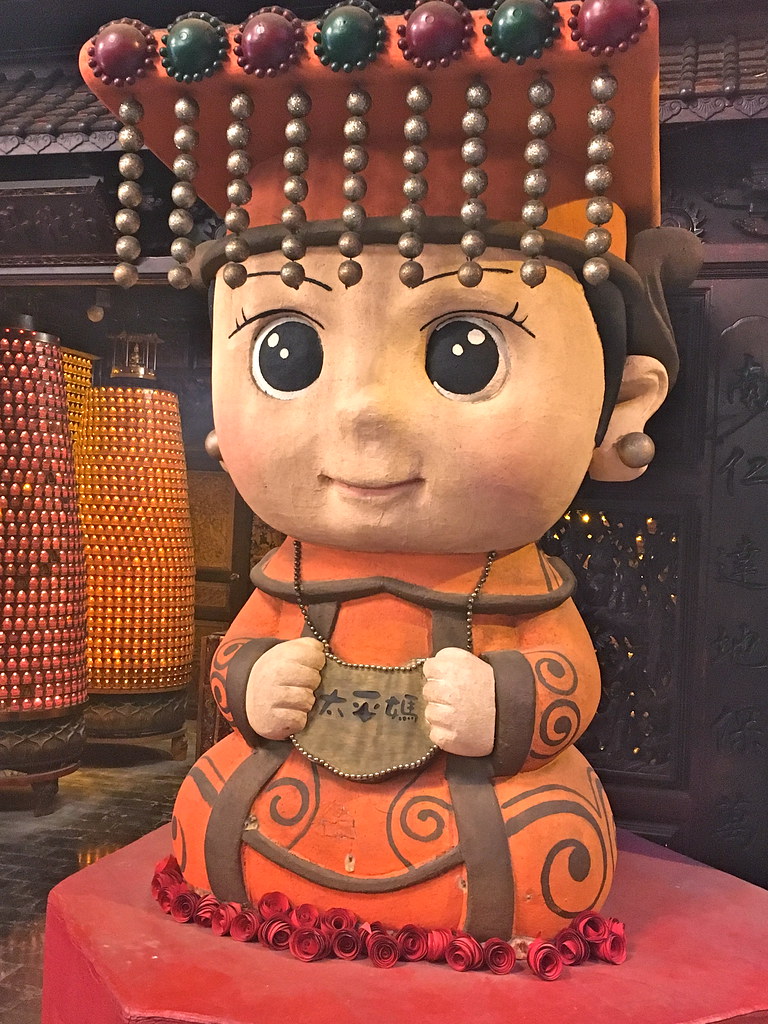
I had noticed more than a few goose restaurants, so we decided on goose noodles for dinner, choosing the place right across from the bus station near Cafe 85. name and address?
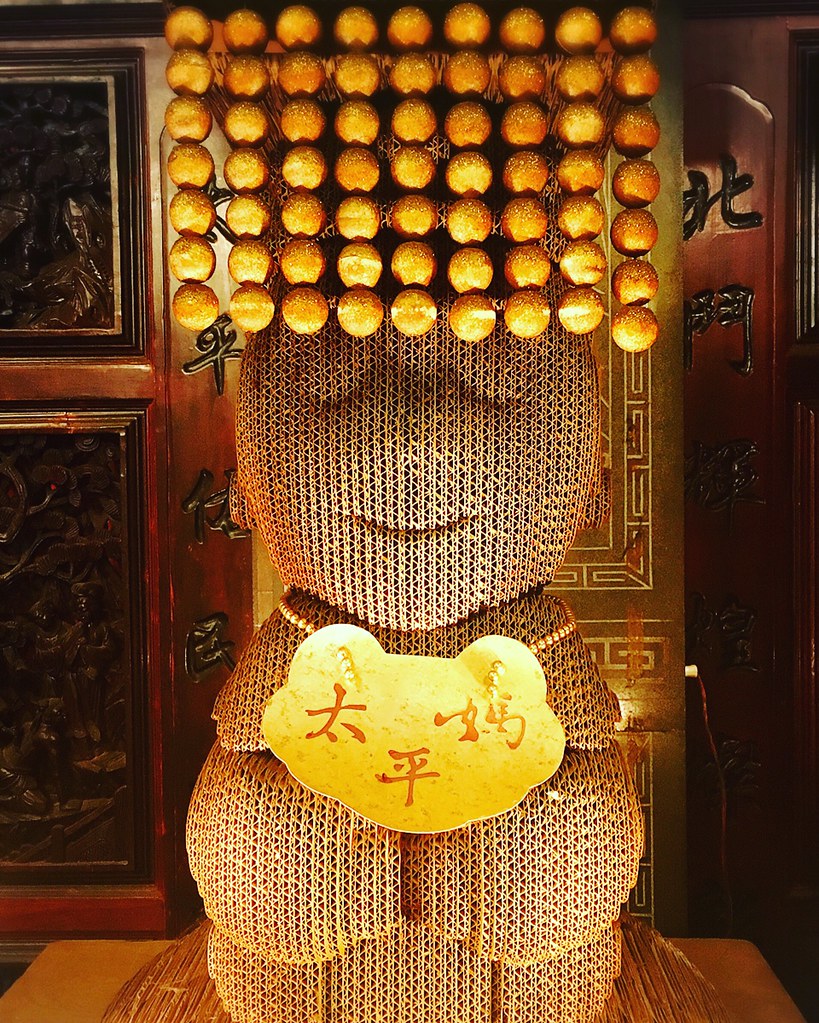
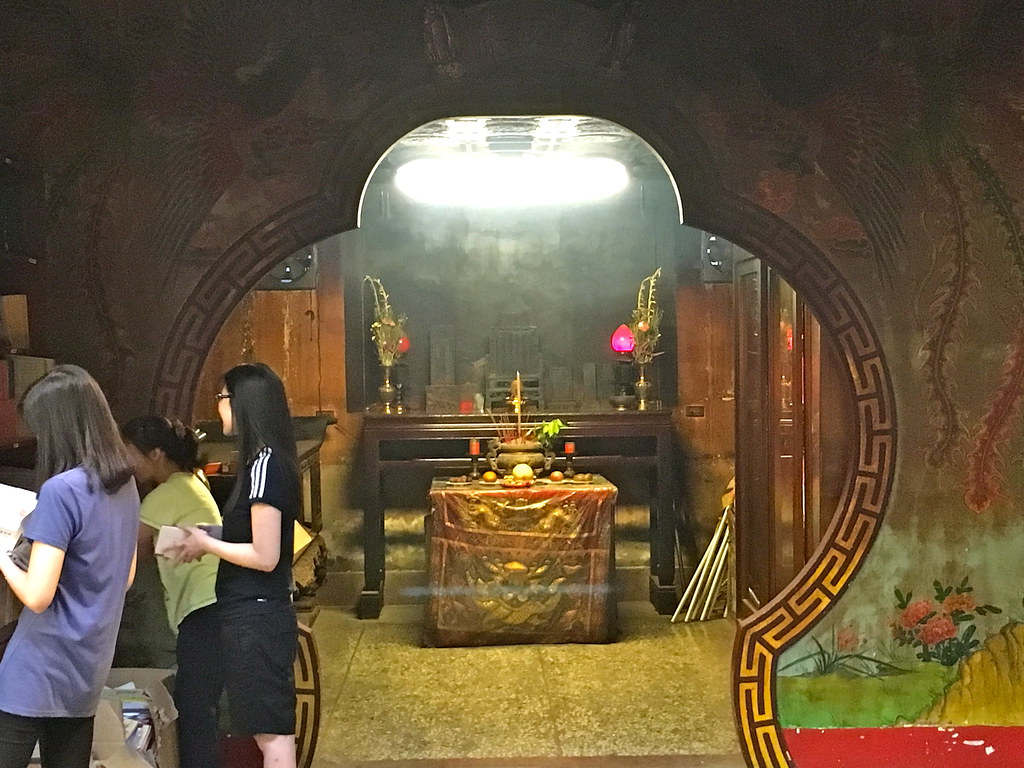
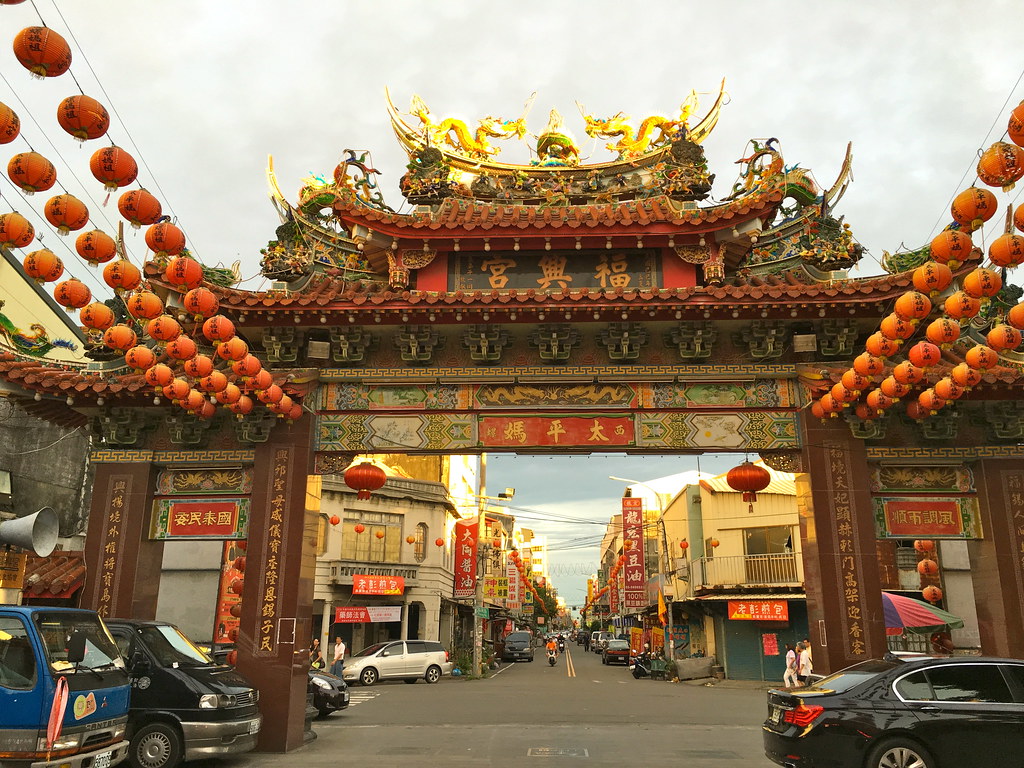
Here's the thing about our travels - we like to explore during the day, get dinner and rather than party at night, just find a nice cafe where we can sit, read and relax. If there is an especially good bar or lounge we might go, but really we're nerds who like to read. There are cafes in Xiluo, but they are on the old street and close early when the tourists leave.
Downtown Xiluo at night looked more lively than I would have expected. I honestly hoped we'd be able to find something. Even a Starbucks. Anything. We walked and walked.
Nope. Nothing.
So we ended up hanging out at Cafe 85, which is nobody's idea of fun. There is not a lot to do after dark in these small towns, so you can always be sure to get back to your accommodation earlyish - we liked this as it meant we might get to chat with the airbnb family, or at least ensure they didn't worry about us (if you're out past midnight in Xiluo something probably is very wrong).
Another tip for traveling in Yunlin: be smart, bring some of those filter coffee packets, the kind that have paper legs that sit on your cup and make a real cup of coffee, and a travel mug. Some creamer if you like that. You can always get hot water but getting coffee in the morning might entail a longer walk than you're used to.
The next day was a bit better. We got rained on, and how! But the Art Deco architecture on the touristy end of Yanping street really is unique, including these oft-photographed buildings:
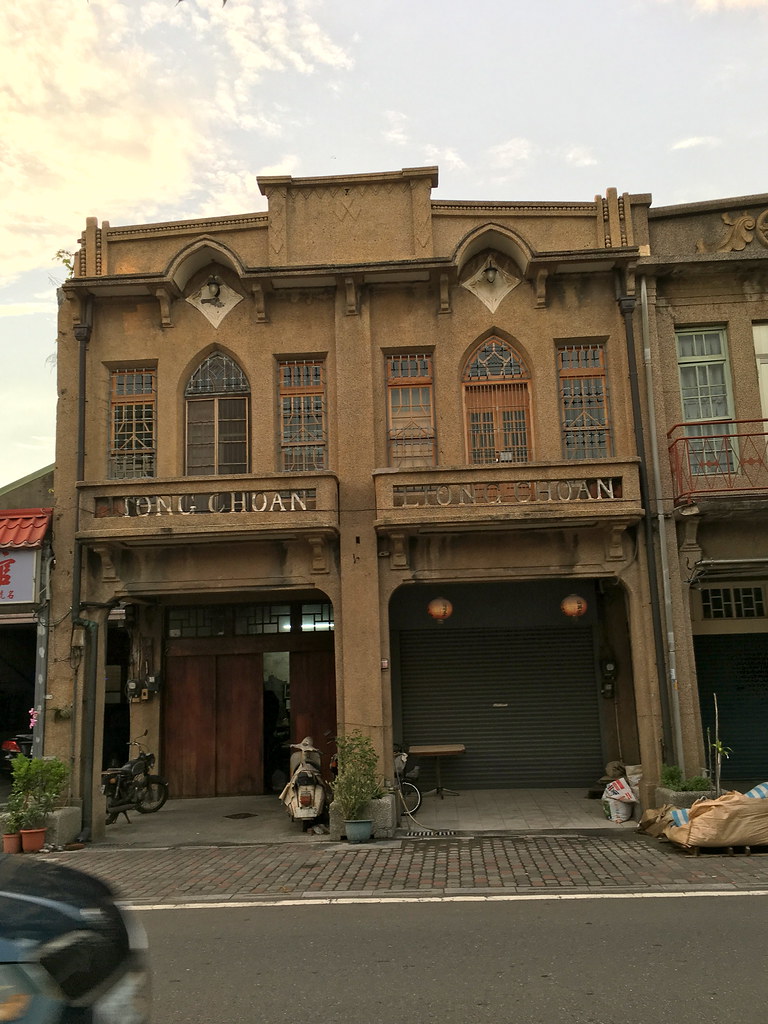
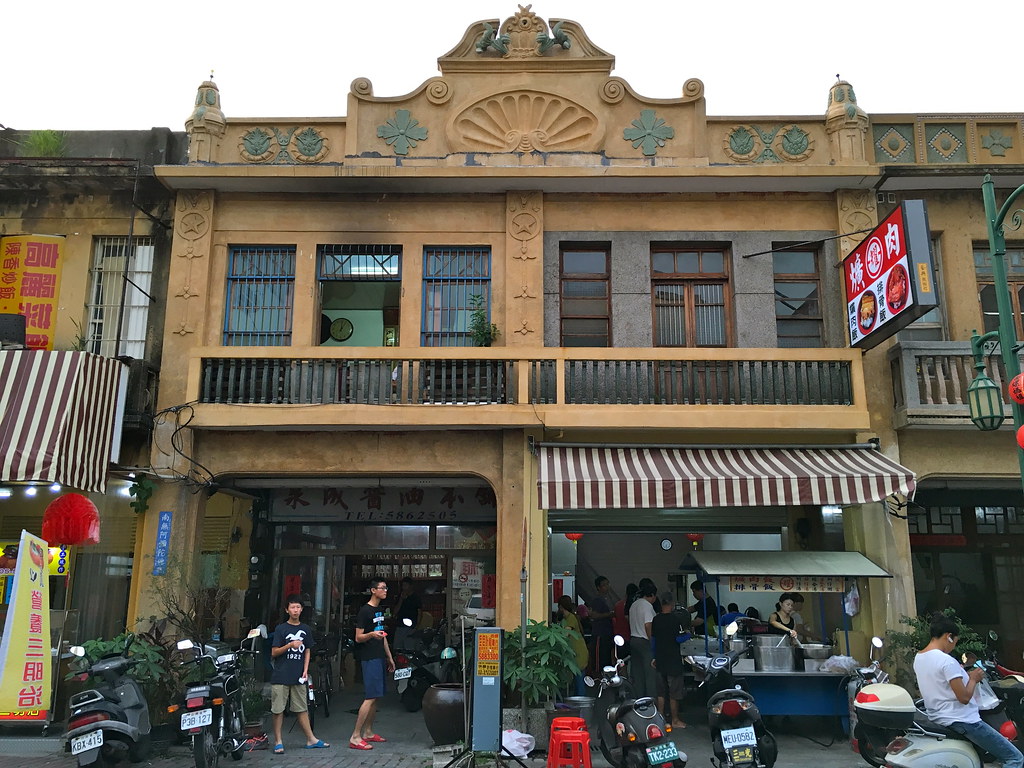
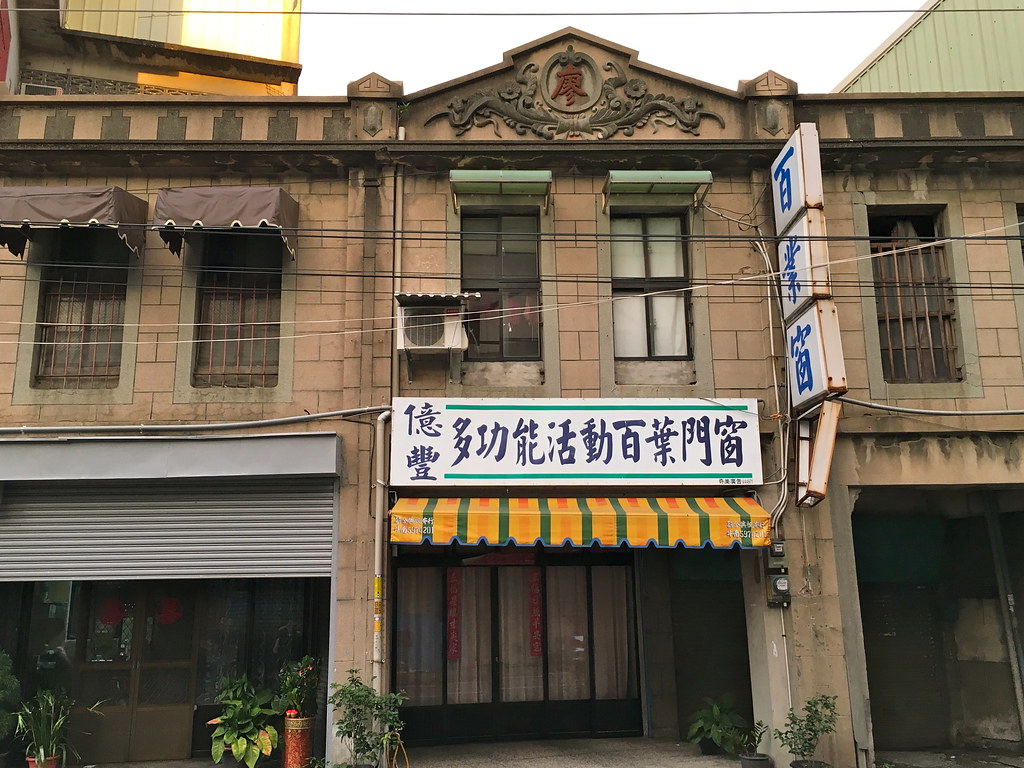
And while small, the little tourist-oriented market included a guy selling lychee liquor he'd made himself, which we bought. "Famous" Yunlin soy sauce was also available but I'm more interested in lychee liquor. There were a few small coffeeshops which was perfect, as it poured for some time. We sat and read books in one until the storm passed, before wandering down to the abandoned theater.
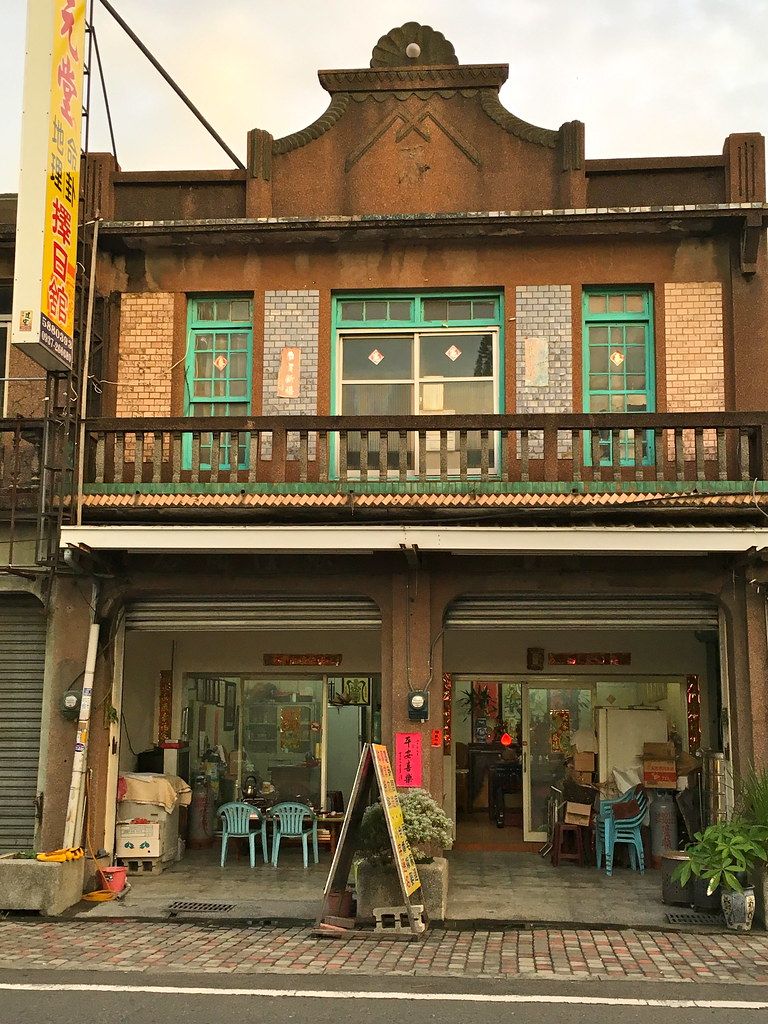
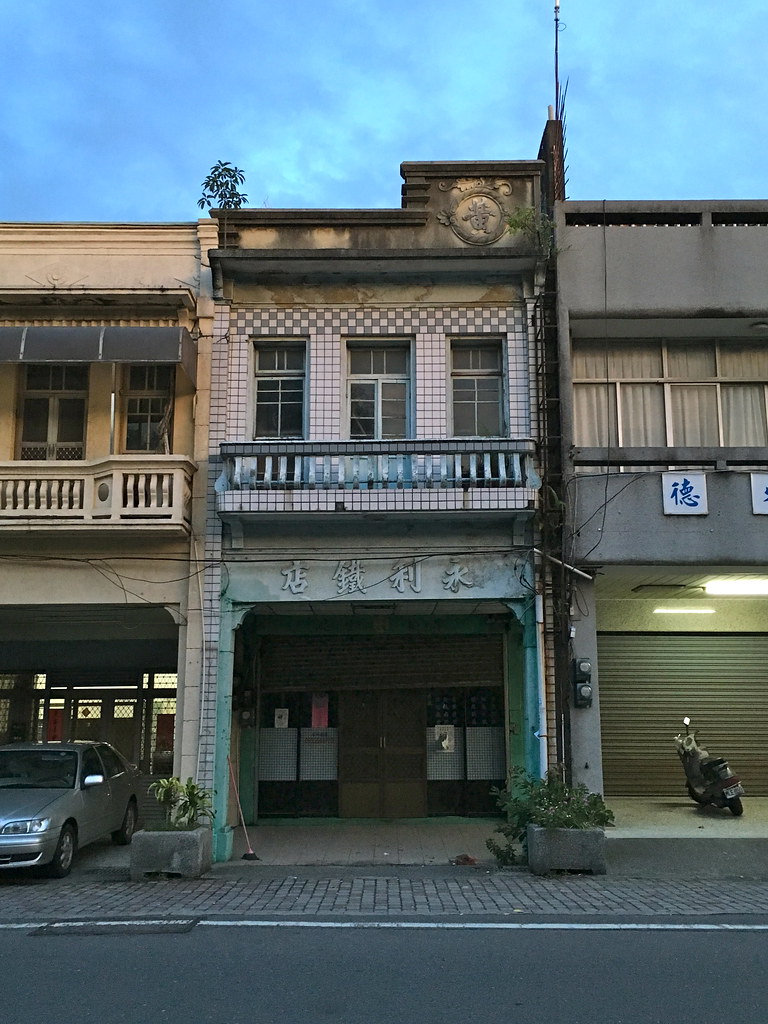
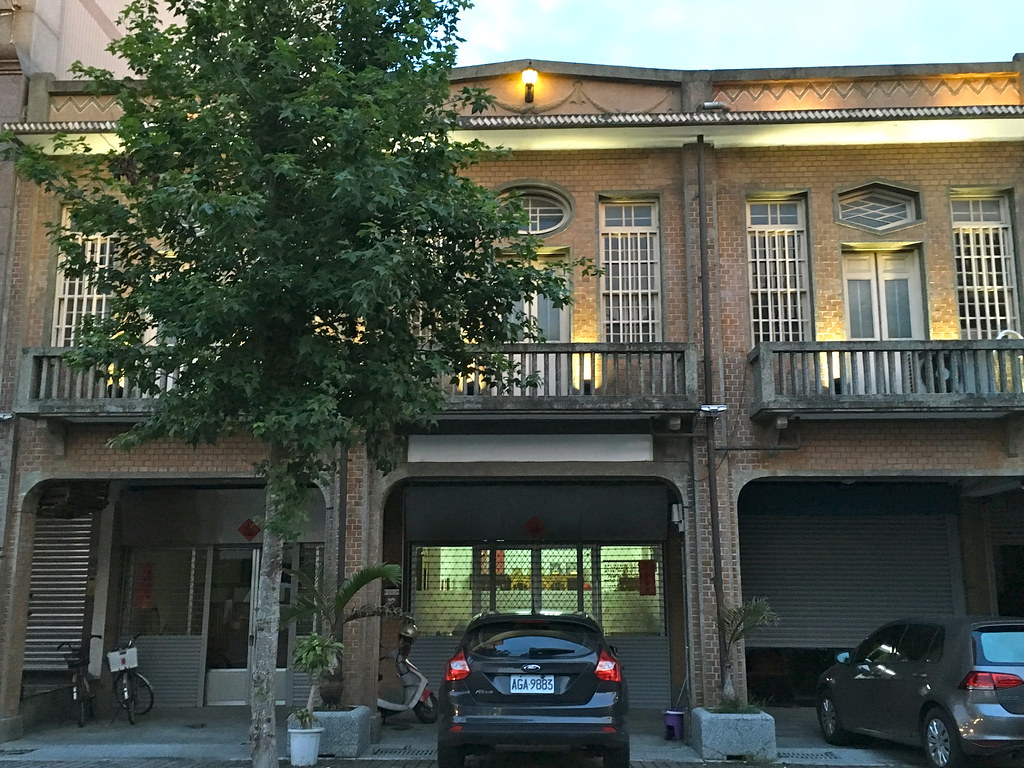
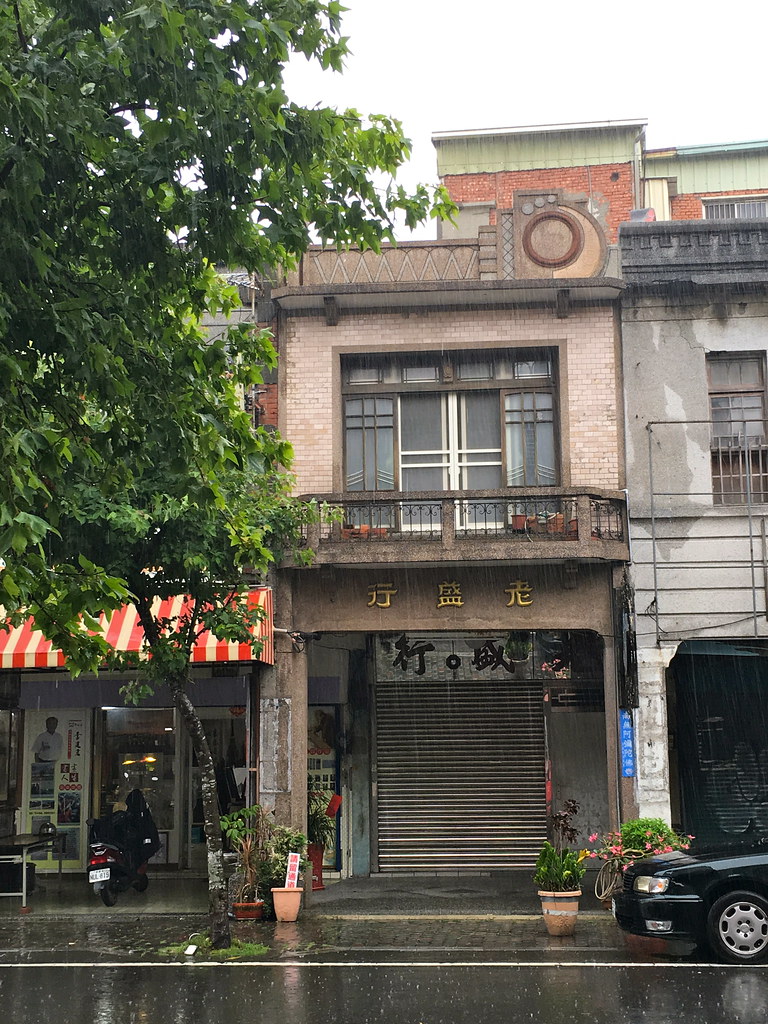
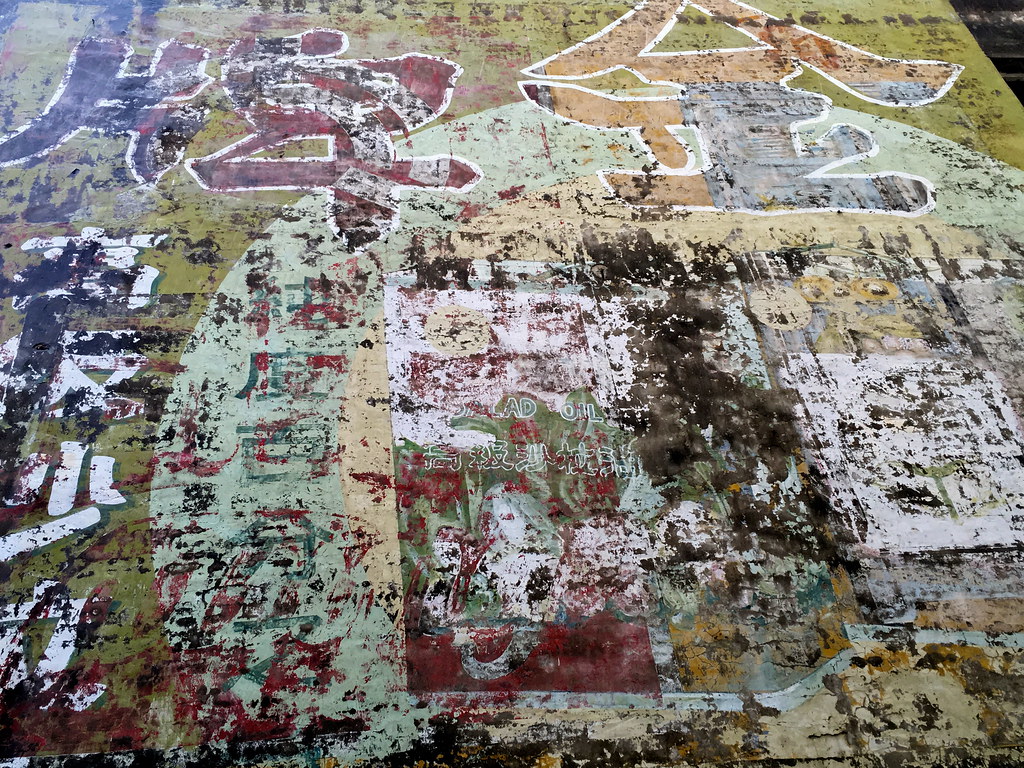
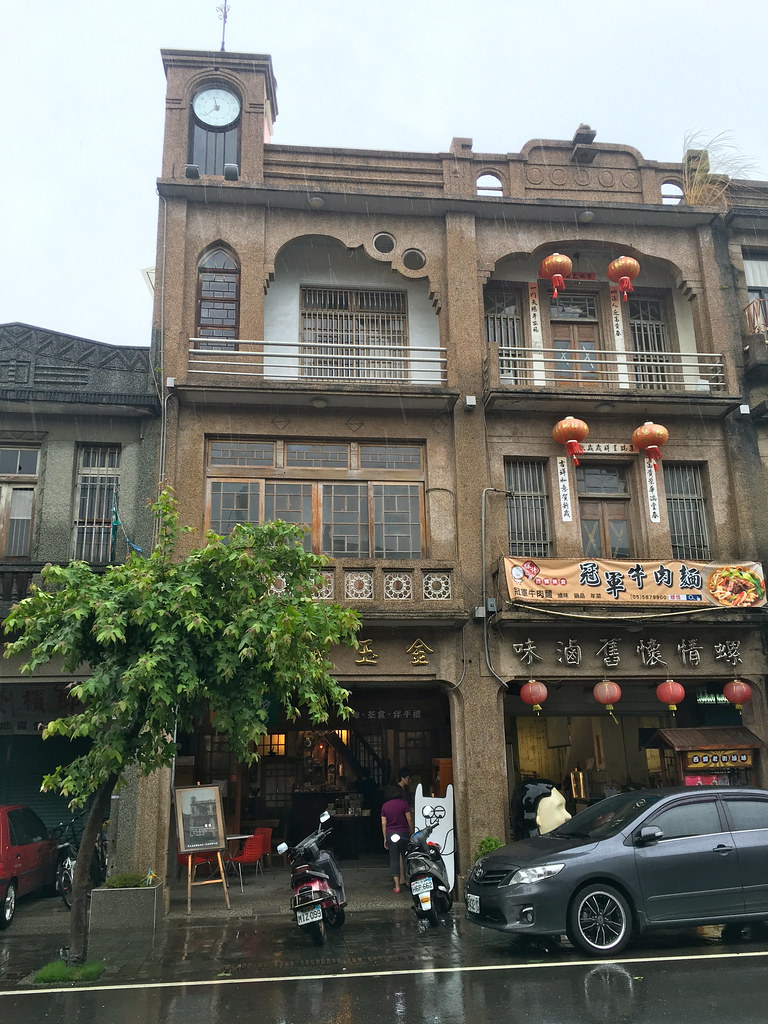
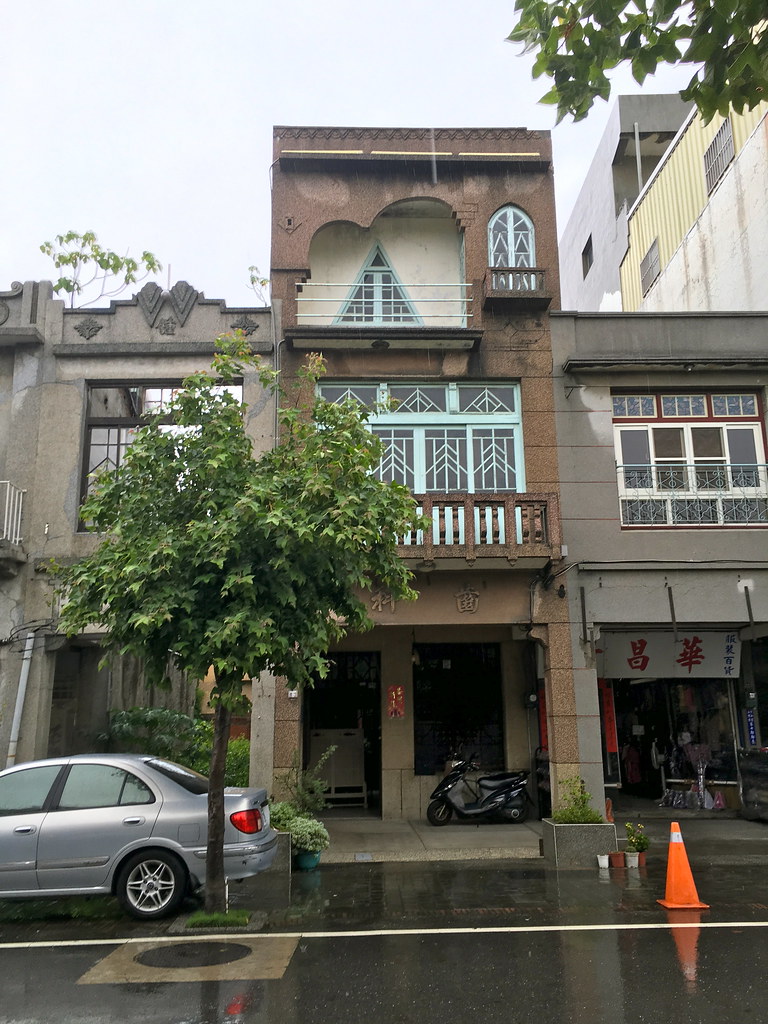
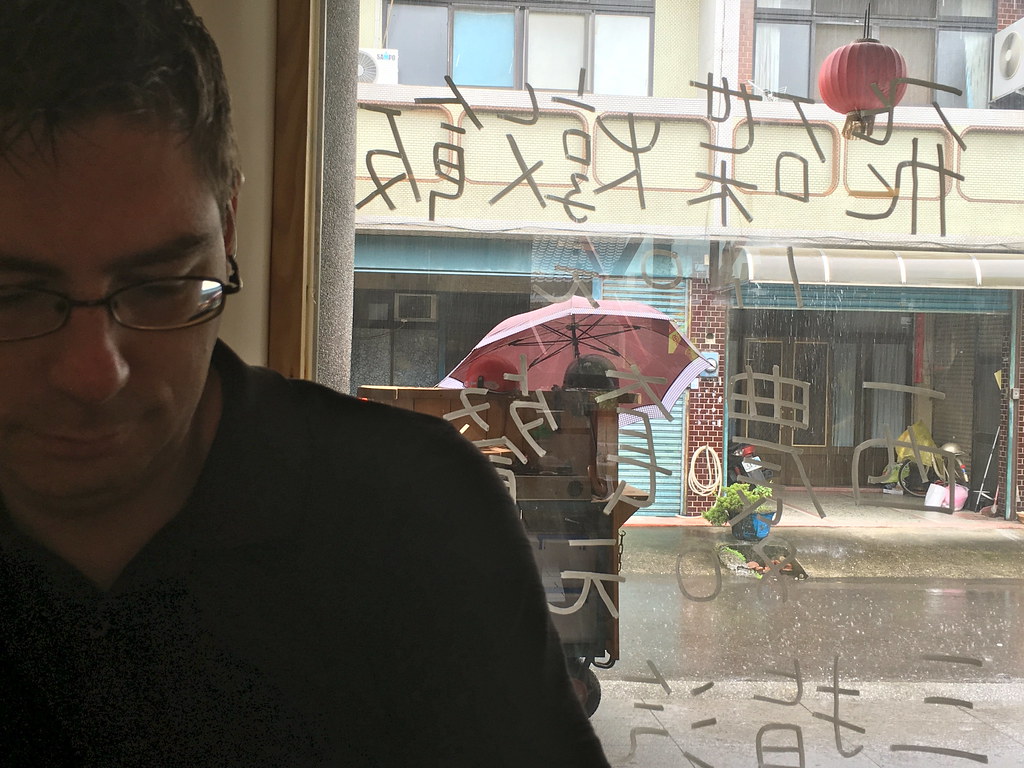
Anyway, enjoy some photos of the theater. Which, by the way, has an open door. You can go right in. Don't even worry about it. We are not major urban explorers or explorers of abandoned spaces and we never felt it was a problem, or particularly dangerous. If you are not hobbyists but want to dip your toe into creeping around abandoned spaces this is a great place to start, is what I'm trying to say.
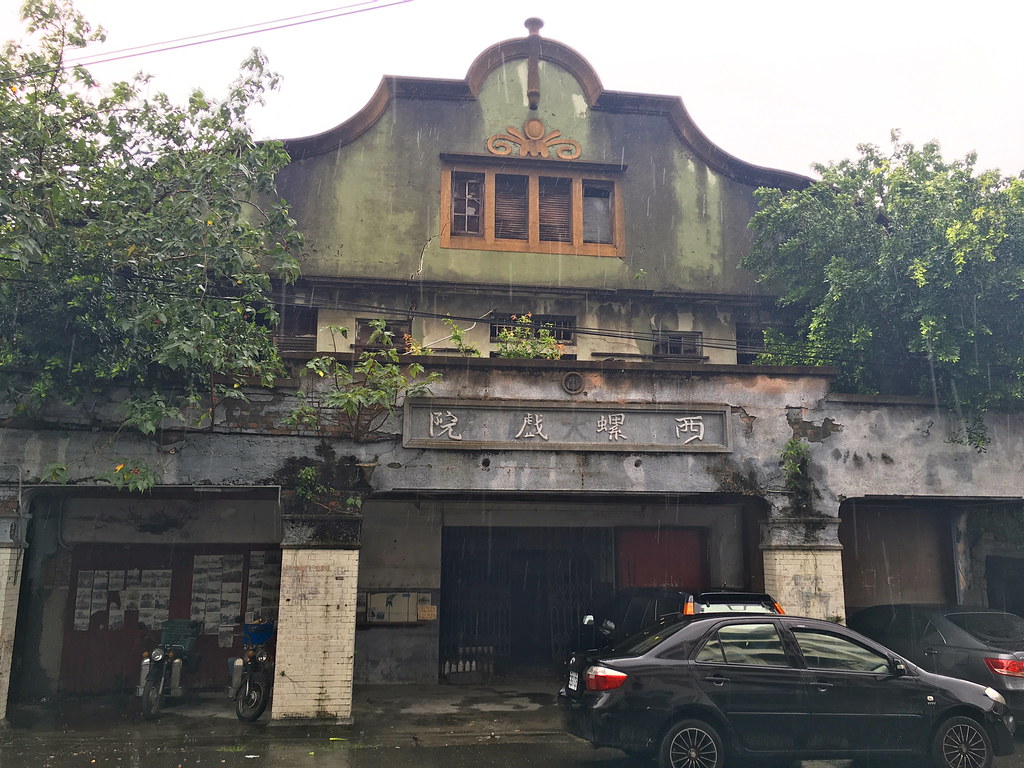
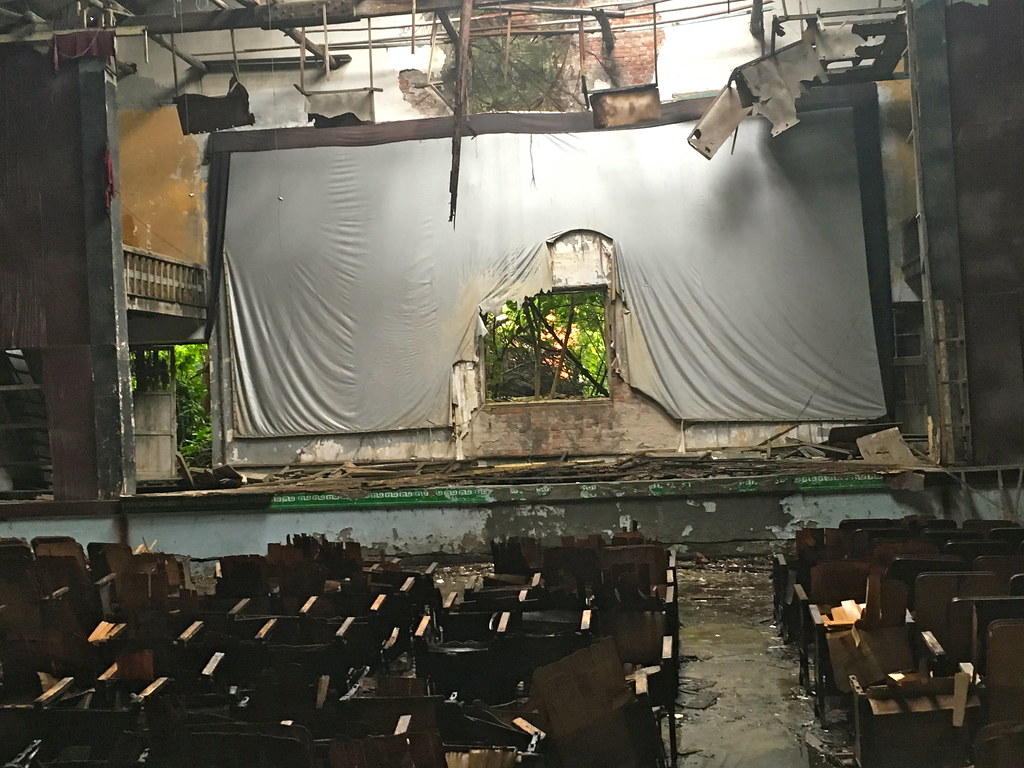
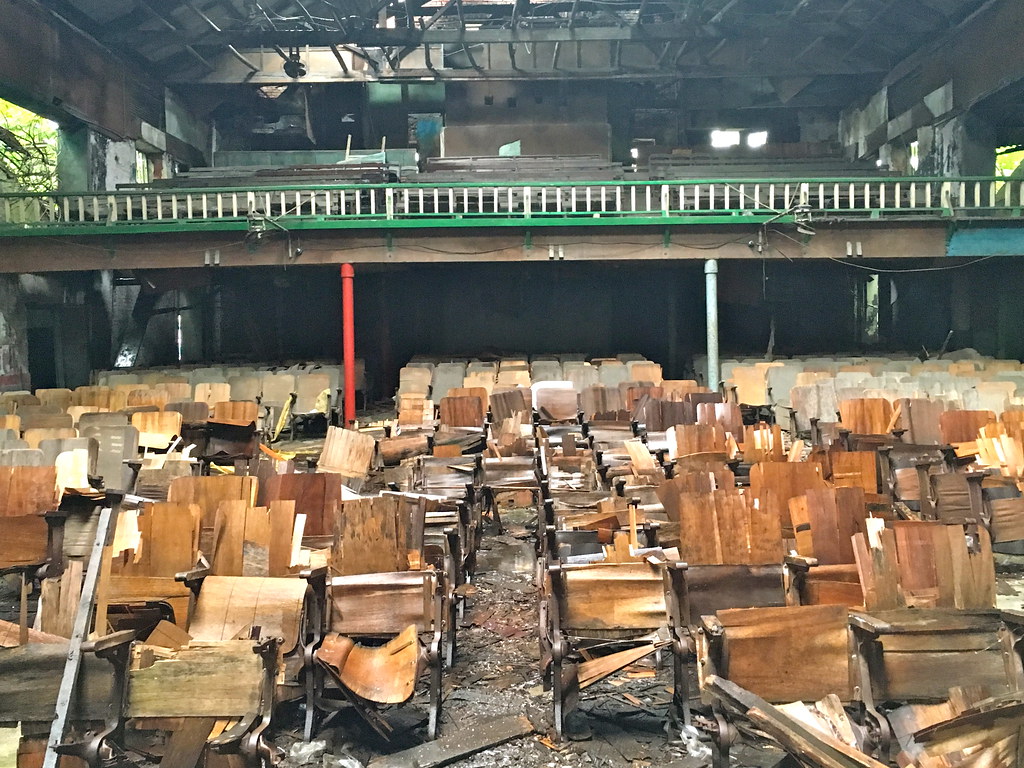
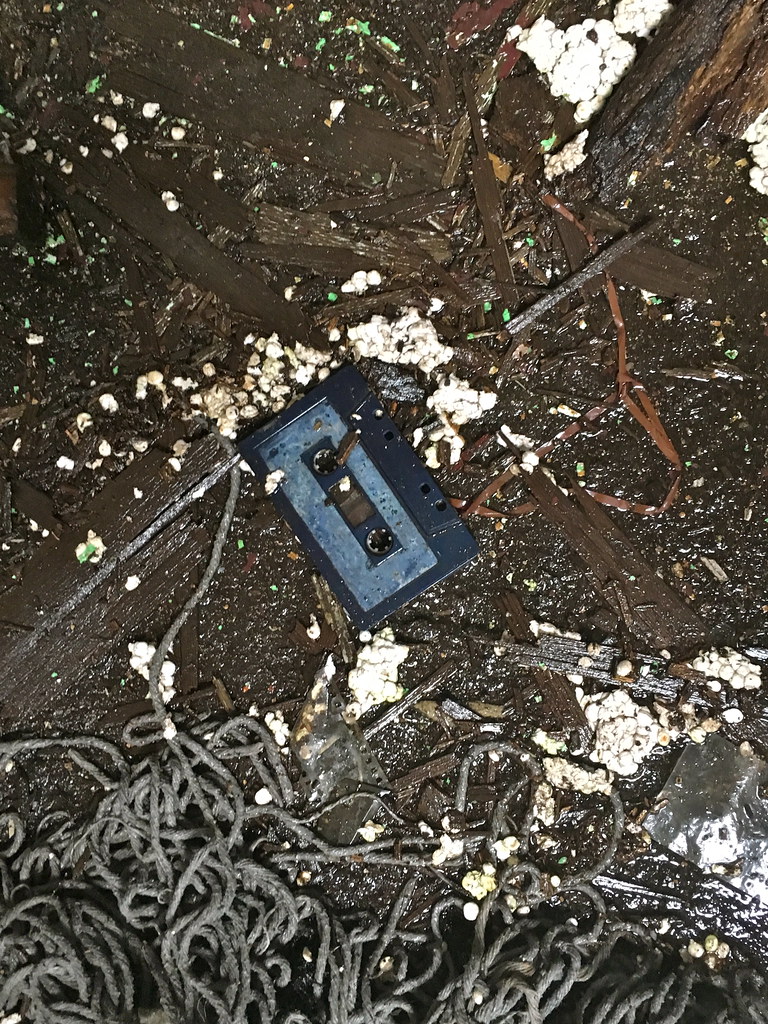
Nearby is a nondescript little temple, worth mentioning only because on that day, someone had paid for a puppet show to be played to the gods. A few local obasans also watched, and we stayed for awhile too. But not knowing the story, a few minutes was enough (I can sit through entire Taiwanese operas as long as I know the story).
There is also a bridge from Xiluo to Zhanghua county, but being generally unimpressed with bridges and that particular bridge being a few kilometers' walk, we skipped it. You probably can too.
It was late afternoon, then, when we headed back to the bus station and hopped a bus to the county seat at Douliu.
Douliu, being a bigger town generally, has, well, more. The traffic circle in front of the train station has quite literally the ugliest "public art" I've ever seen - so ugly I actually liked it, like it was so horrid that it circled back around to being amazing. Taiping Road branches off of this circle, but we wanted to drop off our bags.
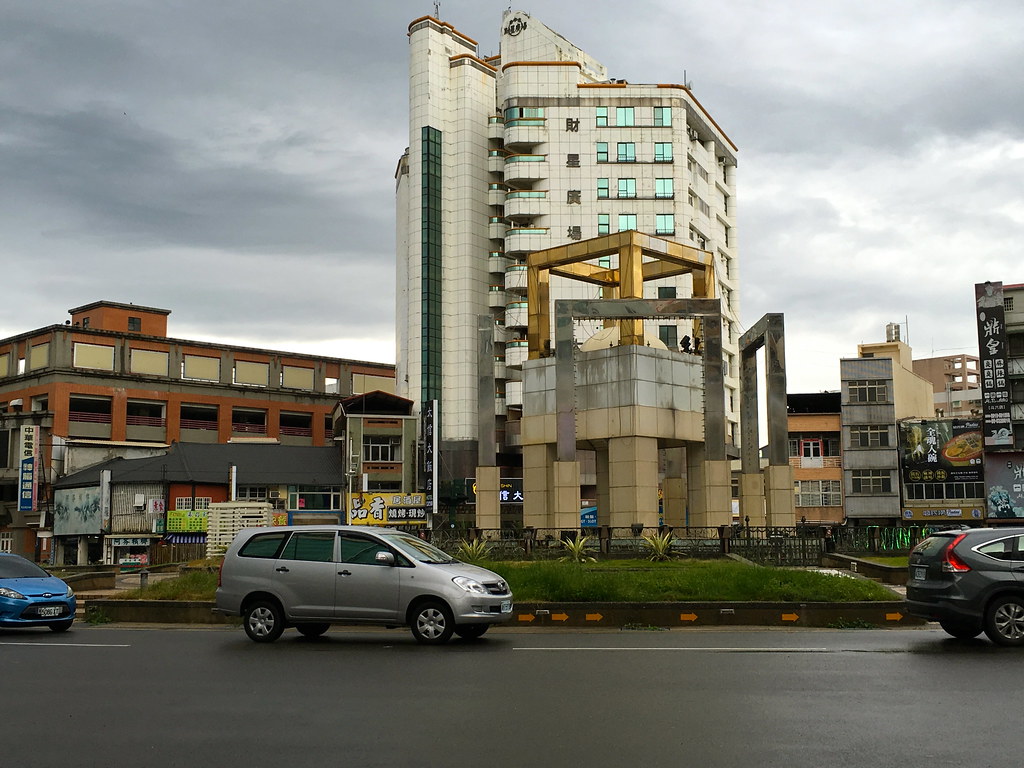 |
| We both paused at the traffic circle in Douliu to really digest how ugly that thing is. It is quite possibly the ugliest piece of public architecture/"art" I have ever seen. Wow. So ugly. |
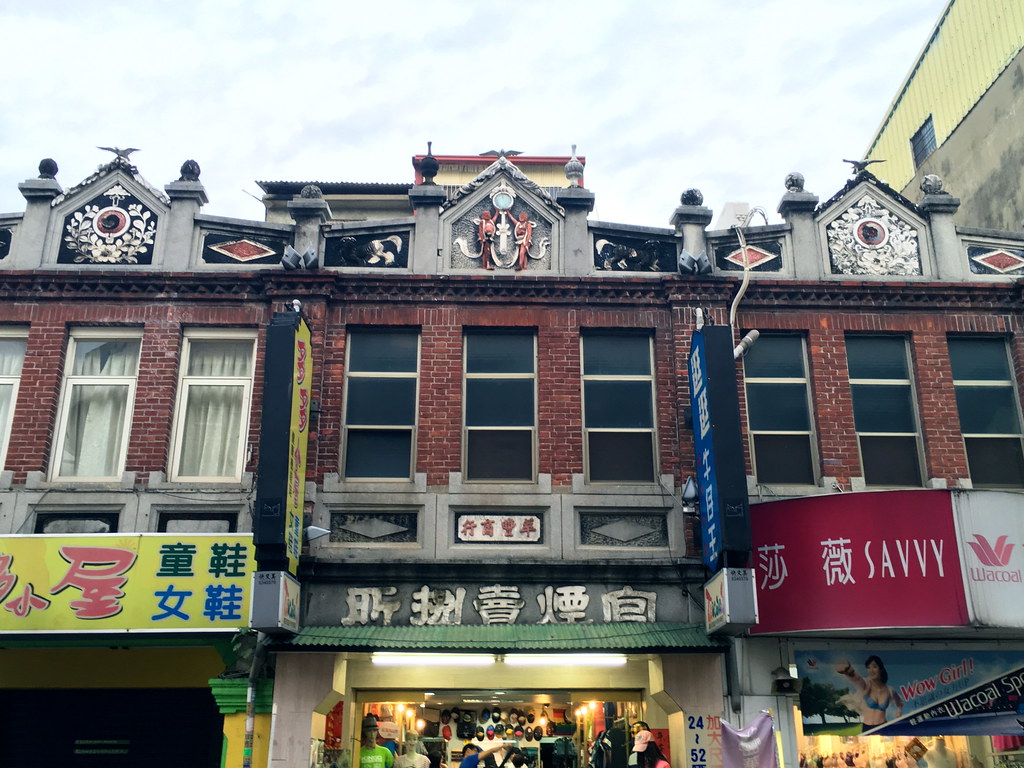
We walked to the airbnb this time (but when we returned to catch the shuttle to the HSR, we got a ride). Down Guangfu Road, past a nice little coffeeshop and a school, in a small residential area behind a Quanlian (全聯) supermarket. Quite walkable, in fact, though it would be annoying in the rain. For once, the skies were kind.
It was already getting dark, but there was just about enough light left to eat some squid soup and then head down Taiping Street. The soup was delicious, and can be found at 阿國獅魷魚羹 at the corner of Datong and Zhongzheng Roads (大同中正路口).
Then we managed to catch a taxi by the train station out to the night market, which was on the edge of town - held only on Saturdays because Douliu only has so many people.
It was clearly quite a good night market on clear nights - a huge empty field revealed how large it would normally have been. It had rained so much the weekend we were there that only a small portion of it - perhaps one-fifth - was open. It didn't cater to Western tastes - don't think you're going to the rural equivalent of Tonghua or Shilin here - but there was good food to be had and vendors to look at. We even managed to catch a taxi back - something we were worried about in sleepy little Douliu, so much so that we got our original taxi driver's phone number - passing a few high-end restaurants (some looking nicer than they really needed to in Douliu) and the fanciest Donutes I've ever seen. For those of you unfamiliar with Donutes (yes, that is how it's spelled), it's a mediocre cafe chain that can be found in most cities in Taiwan except Taipei. There is even one in Donggang). This Donutes looked like a blinged-out nightclub, and I wasn't sure what to make of that.
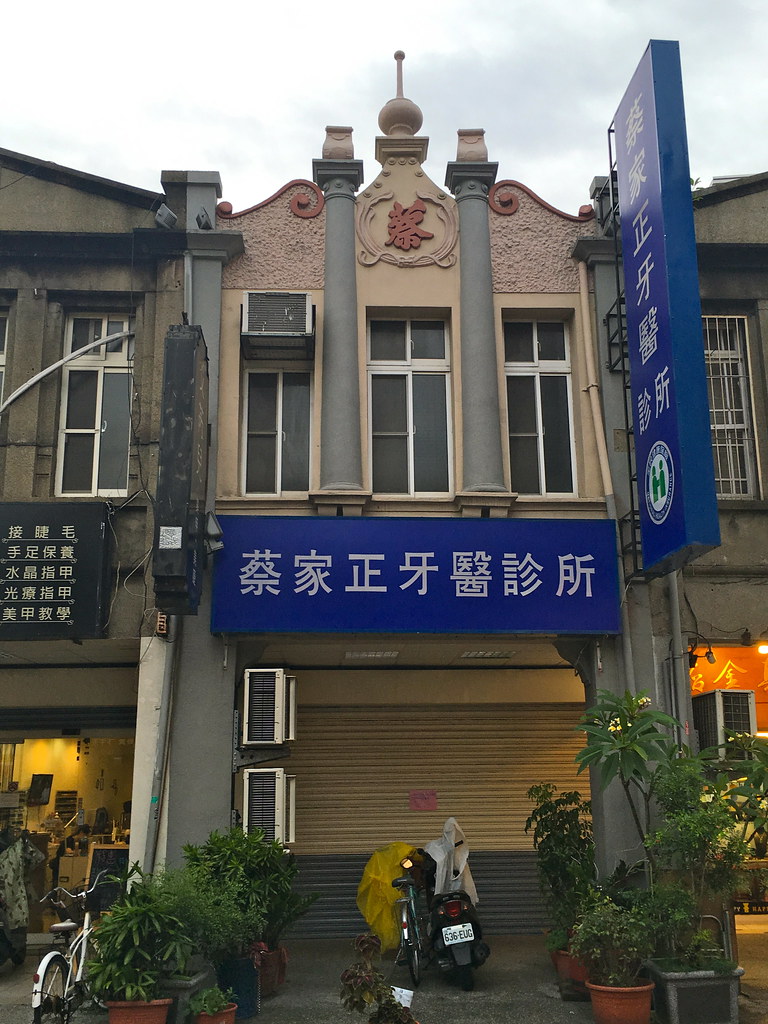
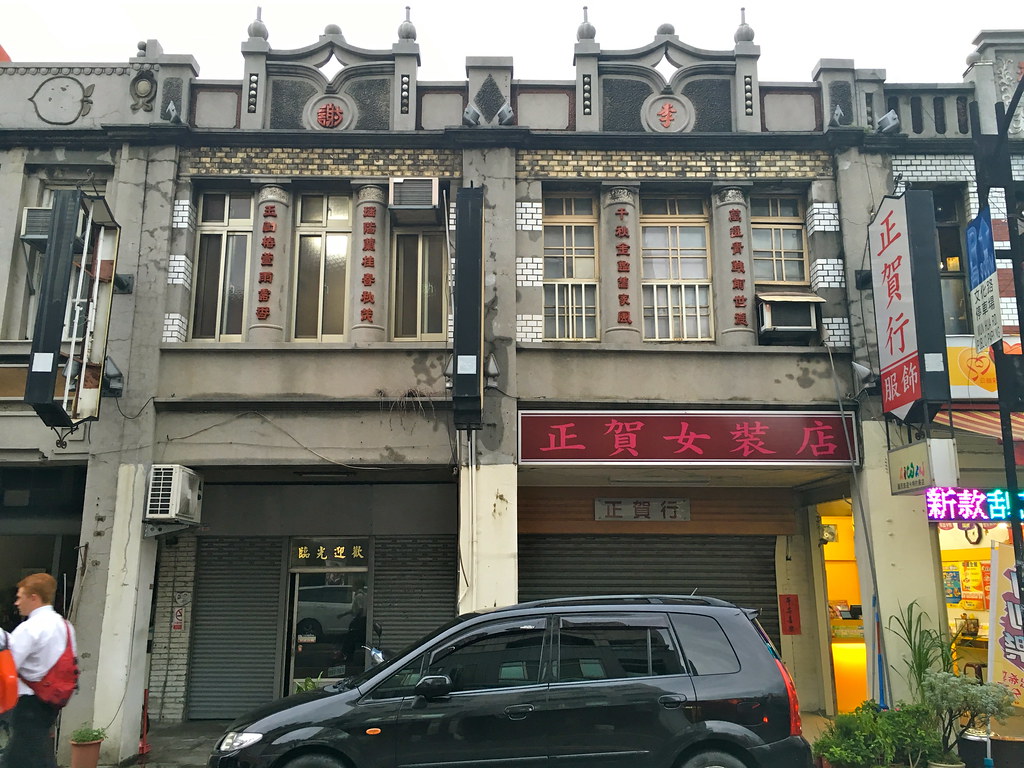
Anyway, don't go to Donutes. In Douliu, you actually have options! In addition to Ou Tu Cafe in a Japanese-era wooden house mentioned below, I can't remember when we went but So Coffee (騷咖啡) cafe near our homestay is also quite nice - huge smoothies, good coffee, food and a little boutique area selling handmade leather goods. And, they are centrally located and open reasonably late for a town like Douliu.
So Coffee (騷咖啡)
#15 Wenhua Road, Douliu
斗六市文化路15號
We headed back to our homestay and the hosts offered us tea - we watched TV, chatted and drank tea until about 11pm! Their living room was very traditionally decorated, so it was quite lovely in fact.
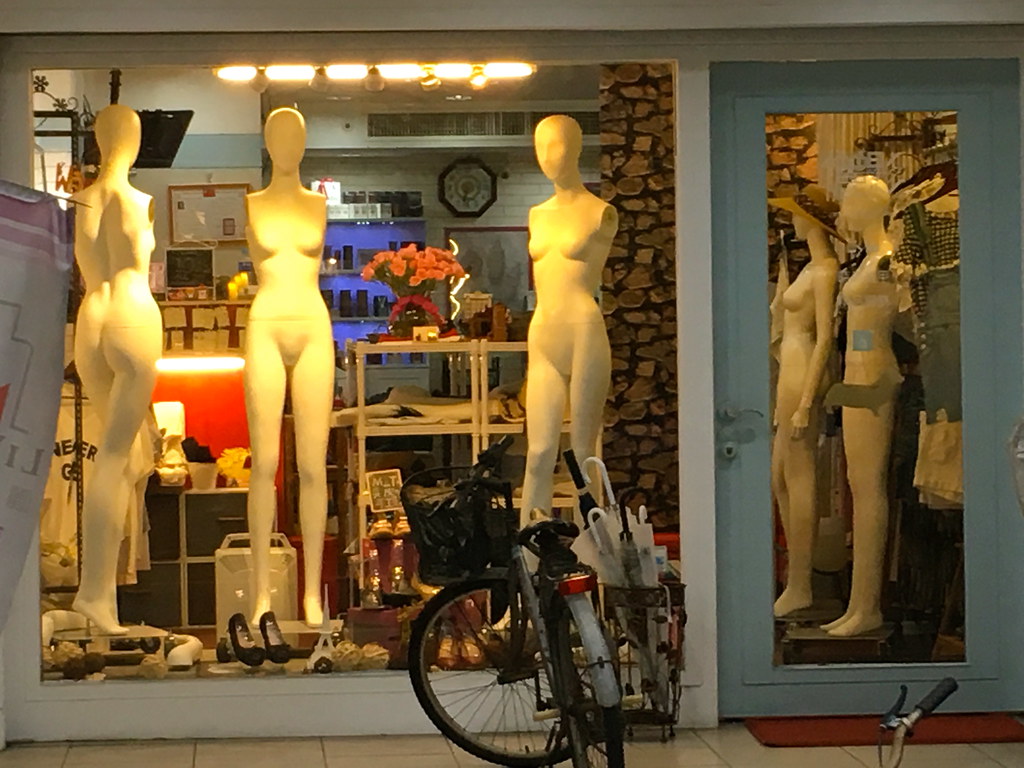 |
| CREEPY |
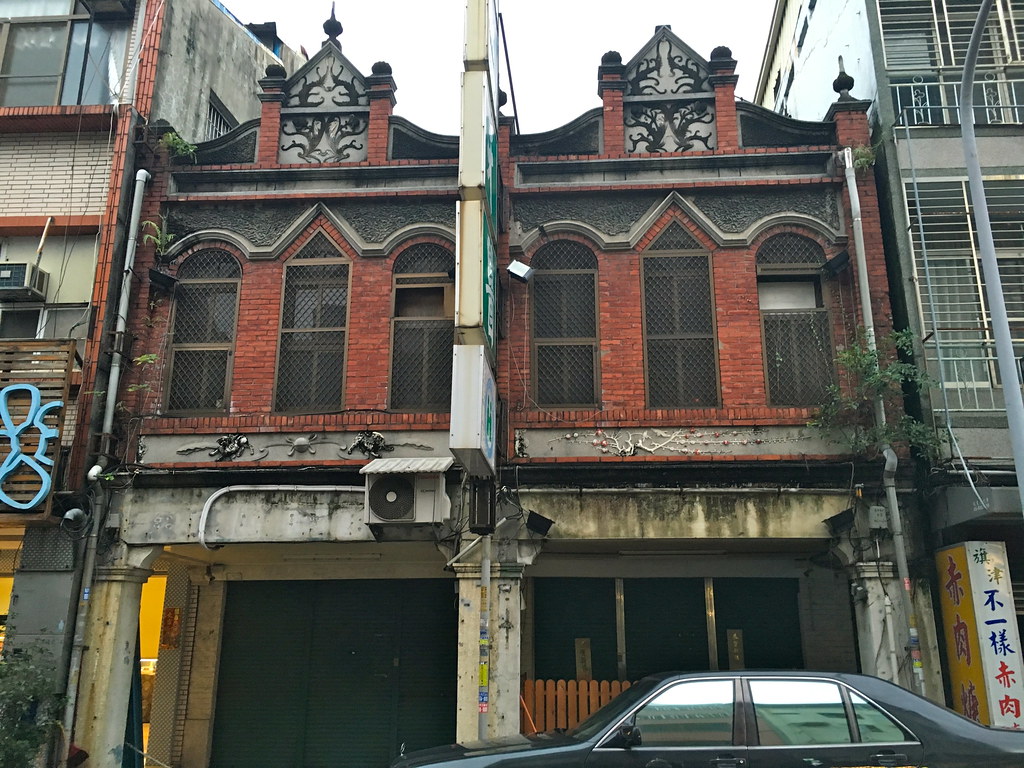
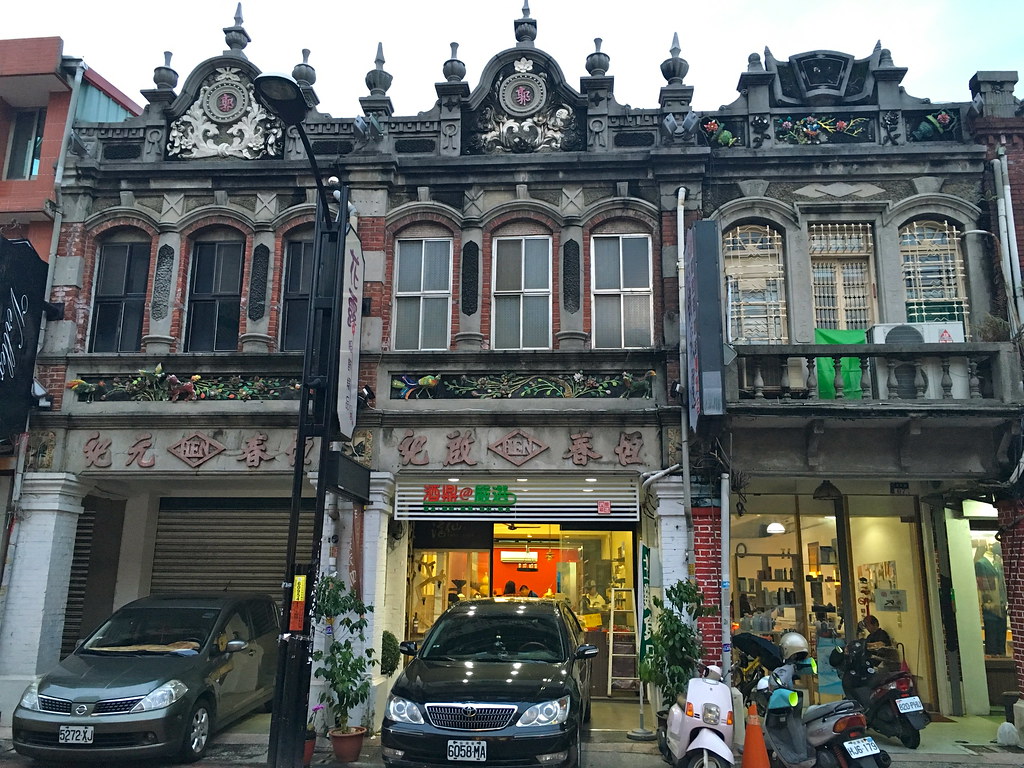 |
| Taiping Street |
The next day rain struck again. We started out going to the Dao/Confucius temple up the road from our airbnb, called 善修宮(Shan-Xiu Gong) off of Yongfu Street. The front is a typical Daoist temple, nothing you haven't seen before. It is dedicated to Guandi, and is fairly new. Then you can go to the back hall, which is a new-ish Confucian temple. The interesting thing about this place is not how it looks - it's pretty typical. It's that, while Buddhist and Daoist temples often intermingle in a syncretic display of gods and traditions, Confucian-Dao temple mashups are rare. Rare enough that I do not know of another one existing.
Behind it, where Wenbin Road meets Neihuan Road, there appears to be another cafe called Lao Wu (老誤咖啡) which seems to have a garden - but we didn't go.
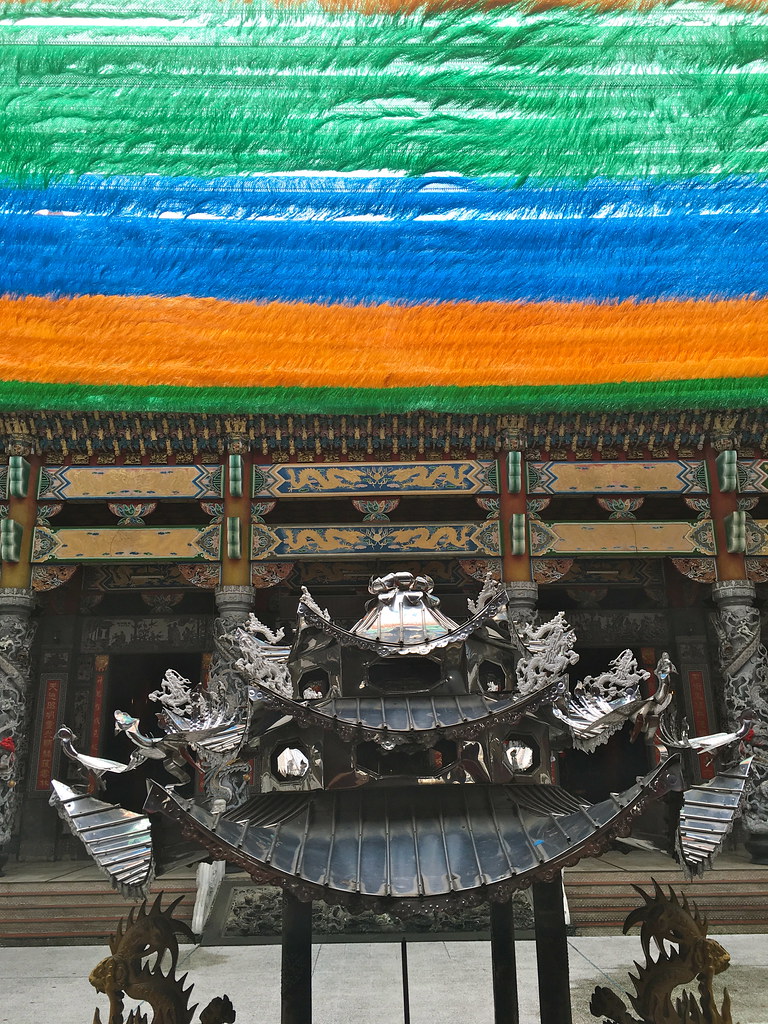 |
| The Dao-Confucian Temple |
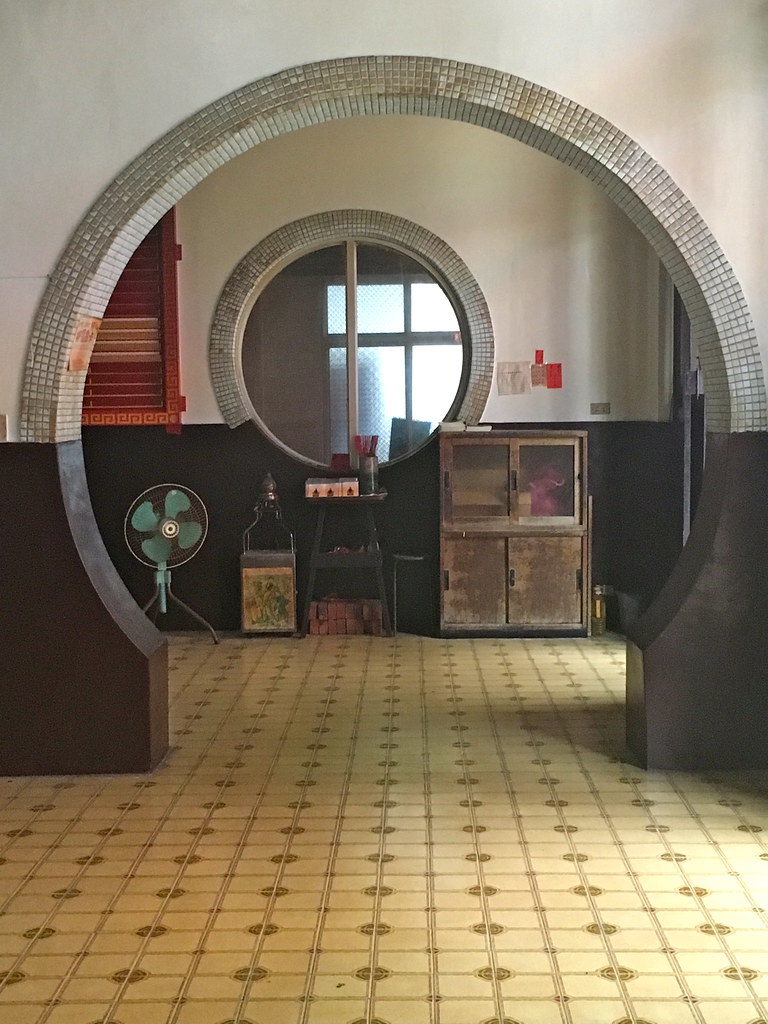 |
| The Dao-Confucian temple was not that aesthetically different, it was just unique to see the two temple styles appended to each other |
We then wandered down Taiping Street again, turning this time at the end toward a group of Japanese wooden houses I'd seen on Google Maps. We found them, and one of them had been turned into a cafe so hip that it could hold its own in Taipei or Tainan. I can't find much about them - you can walk around the area but not enter any of the buildings other than the cafe.
You'll know it because it's the picture that headed up this post - I liked this place so much I gave it the top spot.
凹凸咖啡館 (Oh-Two Cafe)
Yunzhong Street Lane 9 #12 (near the intersection of Yunlin and Yunzhong)
斗六市雲中街9巷12號(雲林雲中路口)
We entered intending to stay for awhile before heading out and walking around town some more, only to be hit with the worst thunderstorm yet - a true rumbler, black skies and all. We stayed put for far longer than we ordinarily would have and ended up changing seats several times (there is actually a time limit to how long you can stay but they weren't busy so they didn't kick us out). It rained for so hard and so long that we must have stayed for hours.
As the storm screamed in, I sat from my comfortable perch in a sheltered cafe looking out over a small field, where a woman in a traditional hat was working in a garden at the far end. She worked almost right through the rain, only giving up when the lightning started to get frightfully close.
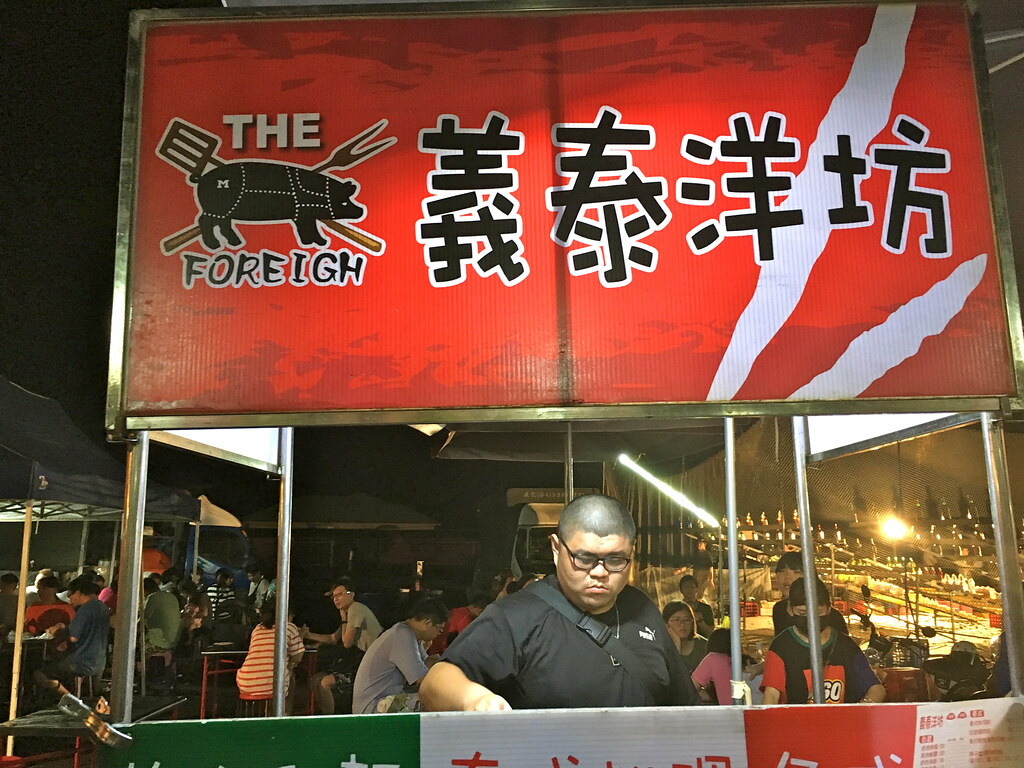 |
| We didn't eat here but we should have |
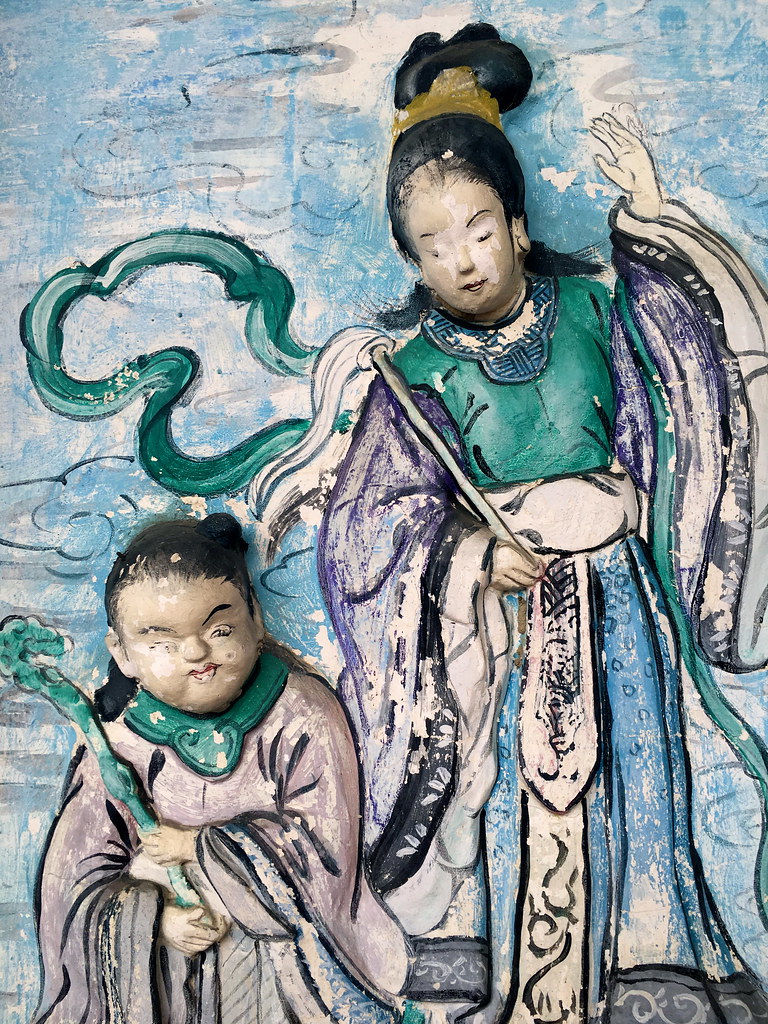 |
| In the Dao-Confucian temple |
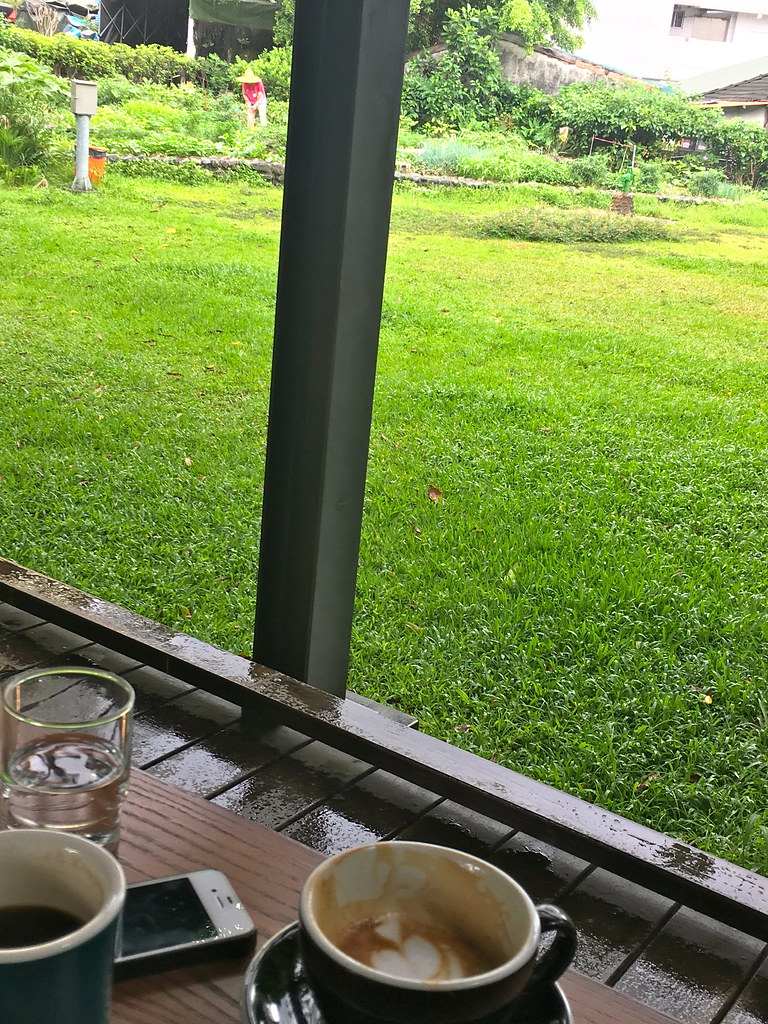 |
| Enjoying our coffee while Auntie is straight savage in the garden in the pouring rain |
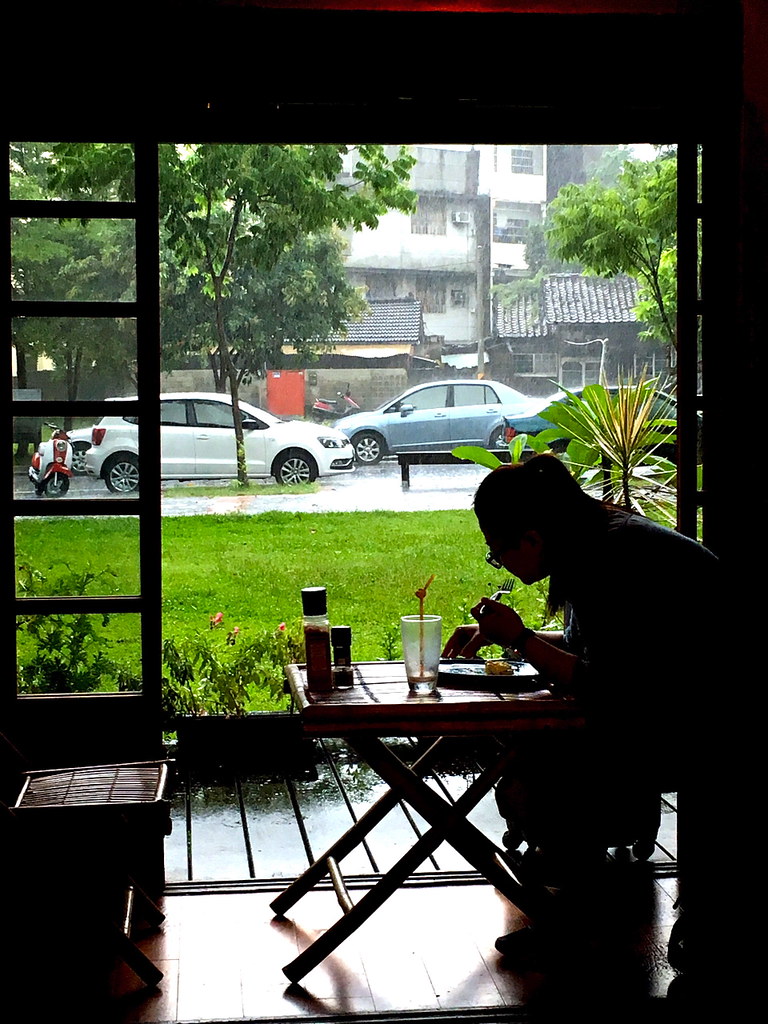 |
| Basically a perfect place to spend a rainy afternoon |
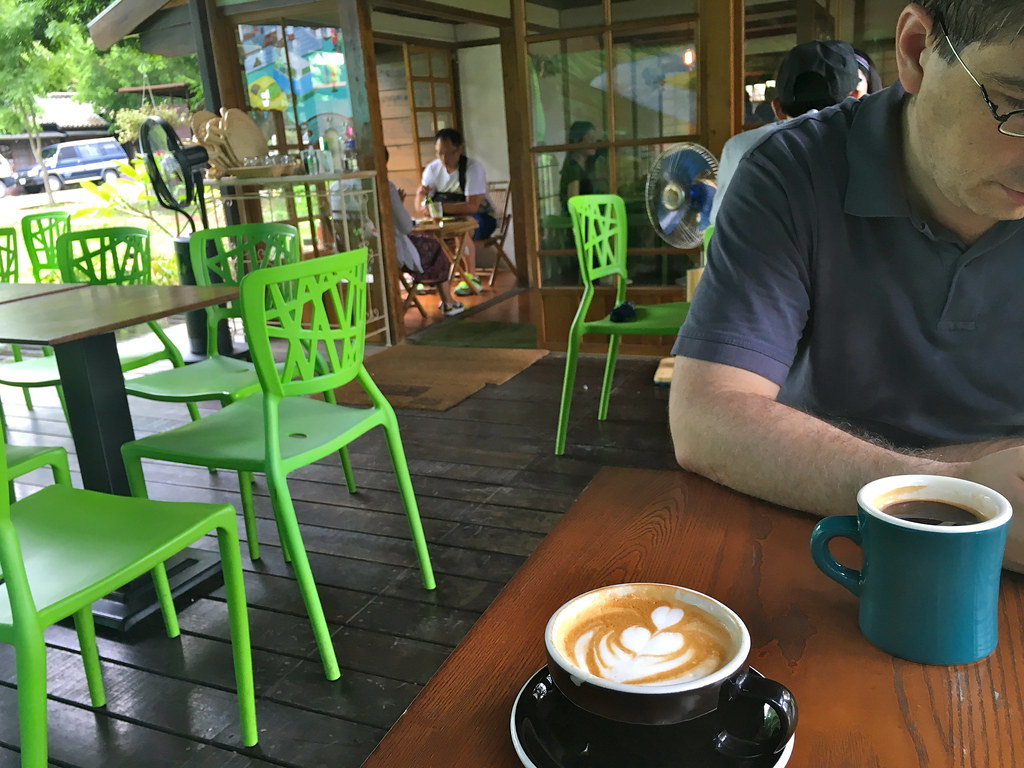 |
| Hanging out on the porch in the rain at Oh-Two Cafe |
The next day, we caught a ride back to the bus station and took the shuttle to the HSR without incident - and this, my friends, is what it means to have sensible public transit.
Thoughts
All in all, I'm not sure any one town in Yunlin can hold your attention for more than a day. I would have liked to do more in each, but the inclement weather drove us indoors for much of it. I don't mind that though - it was meant to be a relaxing vacation and the chance to sit around and read as a storm passes by is fine by me. In any case you can't make plans in Taiwan based too much on the weather because if you do, you'll never go anywhere. I would have liked an extra few days to explore Gukeng, Xingang and Huwei, but at the same time I was satisfied. Yunlin won't blow your socks off - we're not talking preserved architecture on the scale of Kinmen, gorgeous Pacific Island vistas like the east coast and Green and Orchid islands or even loads of temples like Tainan or Lugang. But if you're an expat looking for something a little more local and unique, who doesn't want to just check off sights on a list but would rather hang out, walk around and absorb small town atmosphere in fairly pleasant if somewhat sleepy towns, Yunlin actually has a lot to offer. If anything, its status as a place nobody who isn't from there goes to means a lot of architectural gems that have been razed for new development in more hopping places have lasted in Yunlin.
This is especially true if you're interested in visiting some of the 'heartlands' of Taiwanese culture - if you live in Taiwan, pretty much every local person you know has an ancestor from Miaoli or Yunlin (if their 92-year-old Hakka grandmother isn't from Miaoli, their 95-year-old Hoklo grandmother is quite likely from Yunlin) or just want to see what these towns your friends return to on Chinese New Year are like. Or, if you want to know where all the young Taiwanese who are sick of shitty soul-sucking office jobs working for The Man are going to start their hometown cafes...it's places like Yunlin.
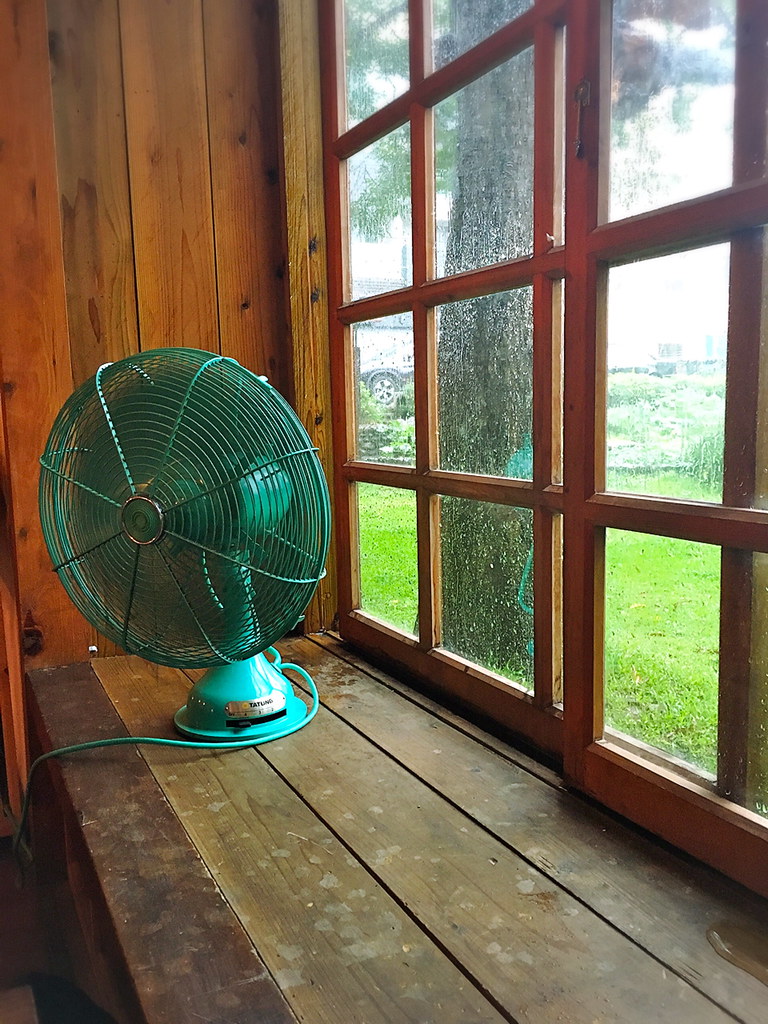 |
| Old Tatung fan at Ou Tu (凹凸) Cafe |
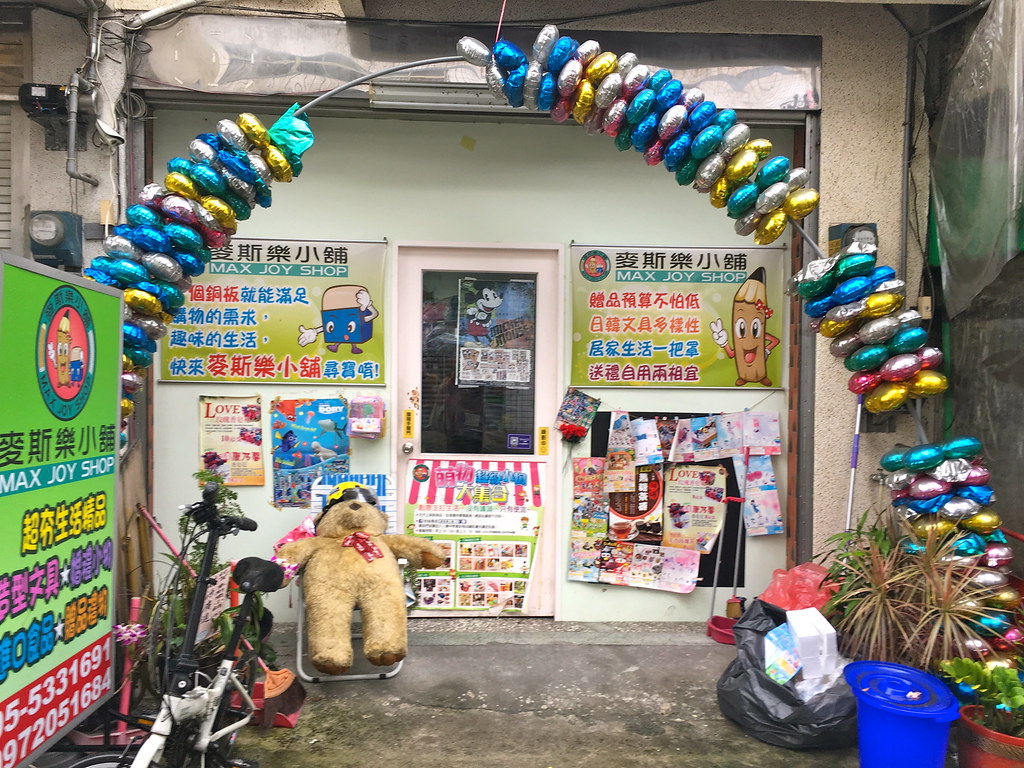 |
| I just thought this bear looked really sad and I wanted to share |

